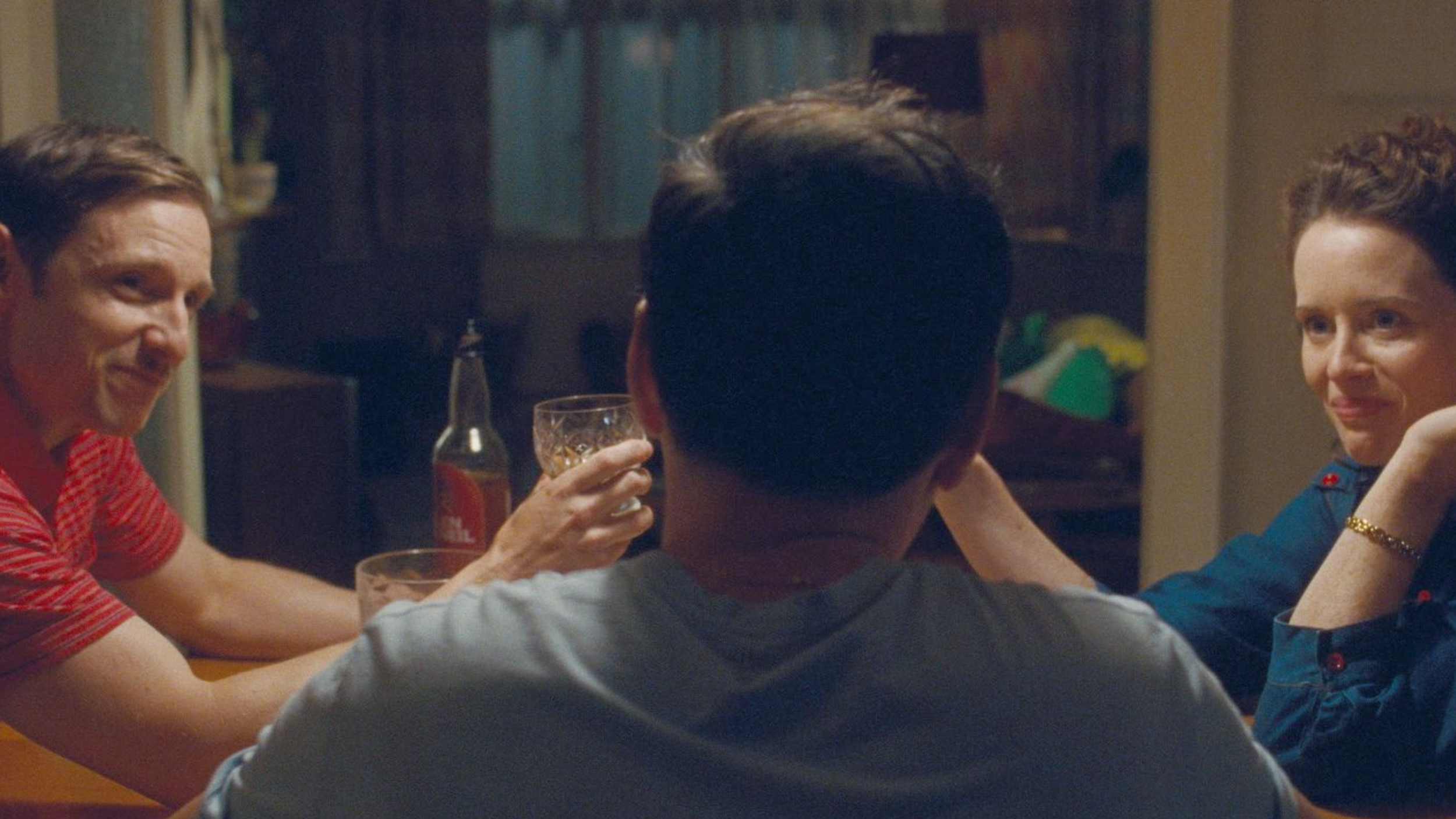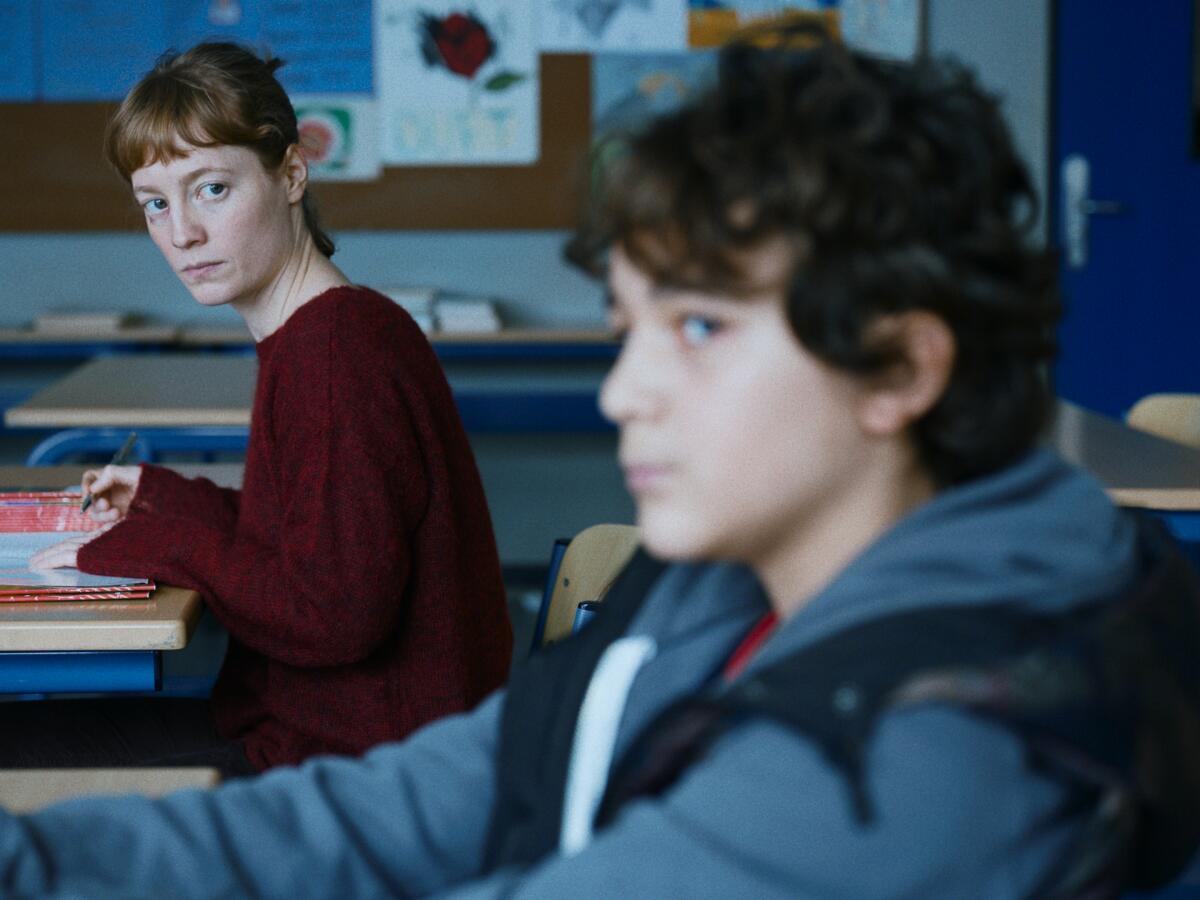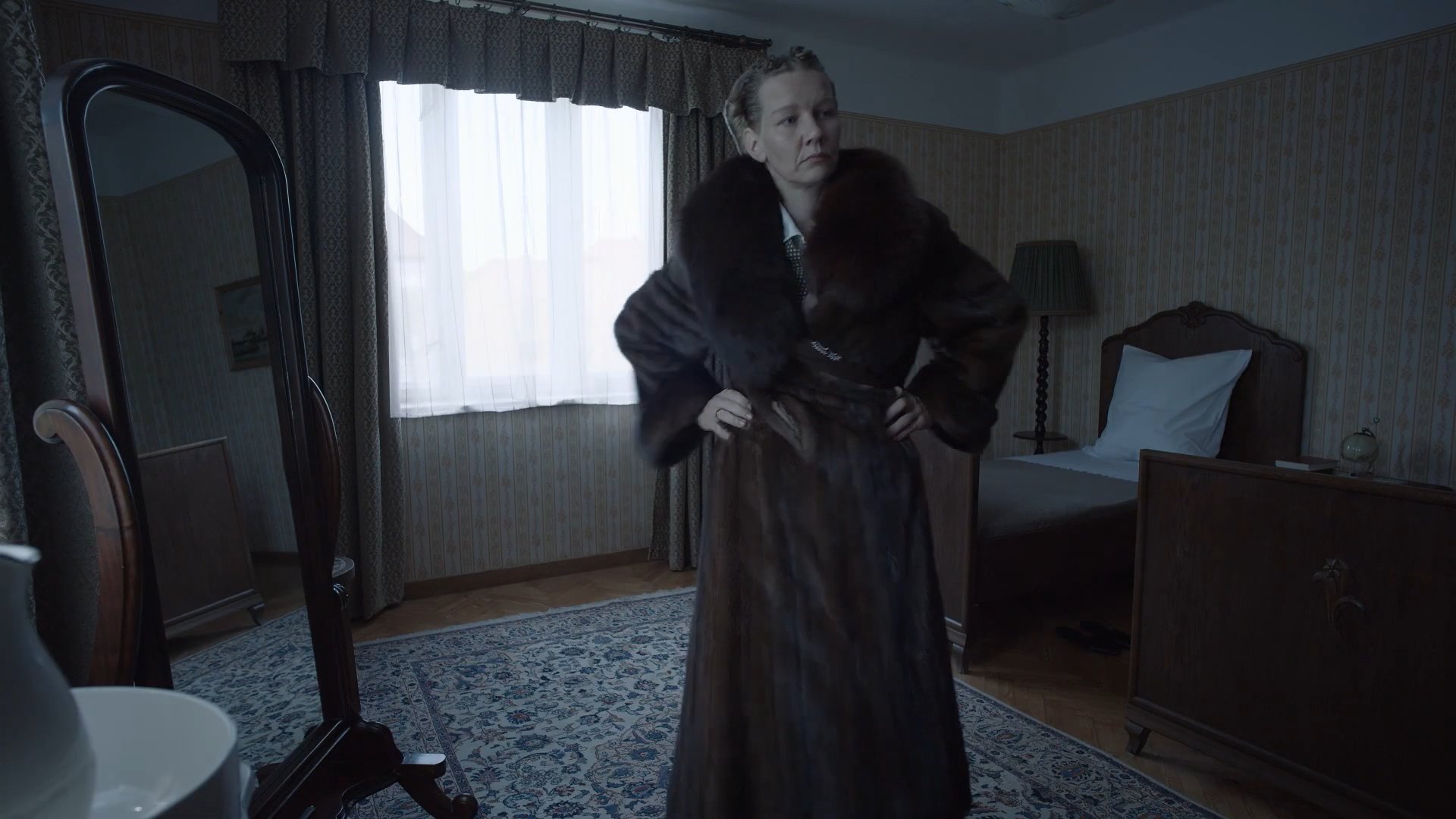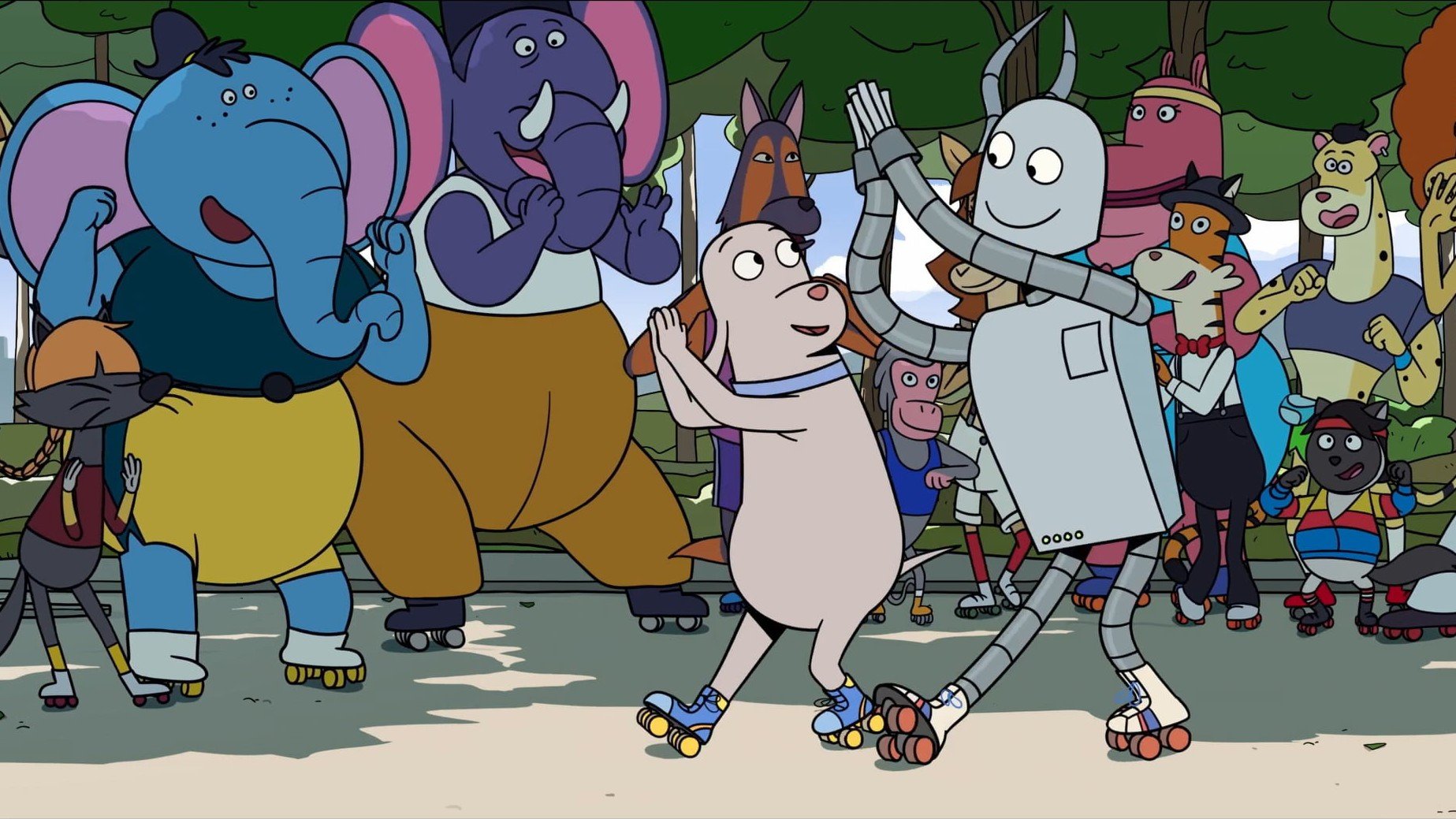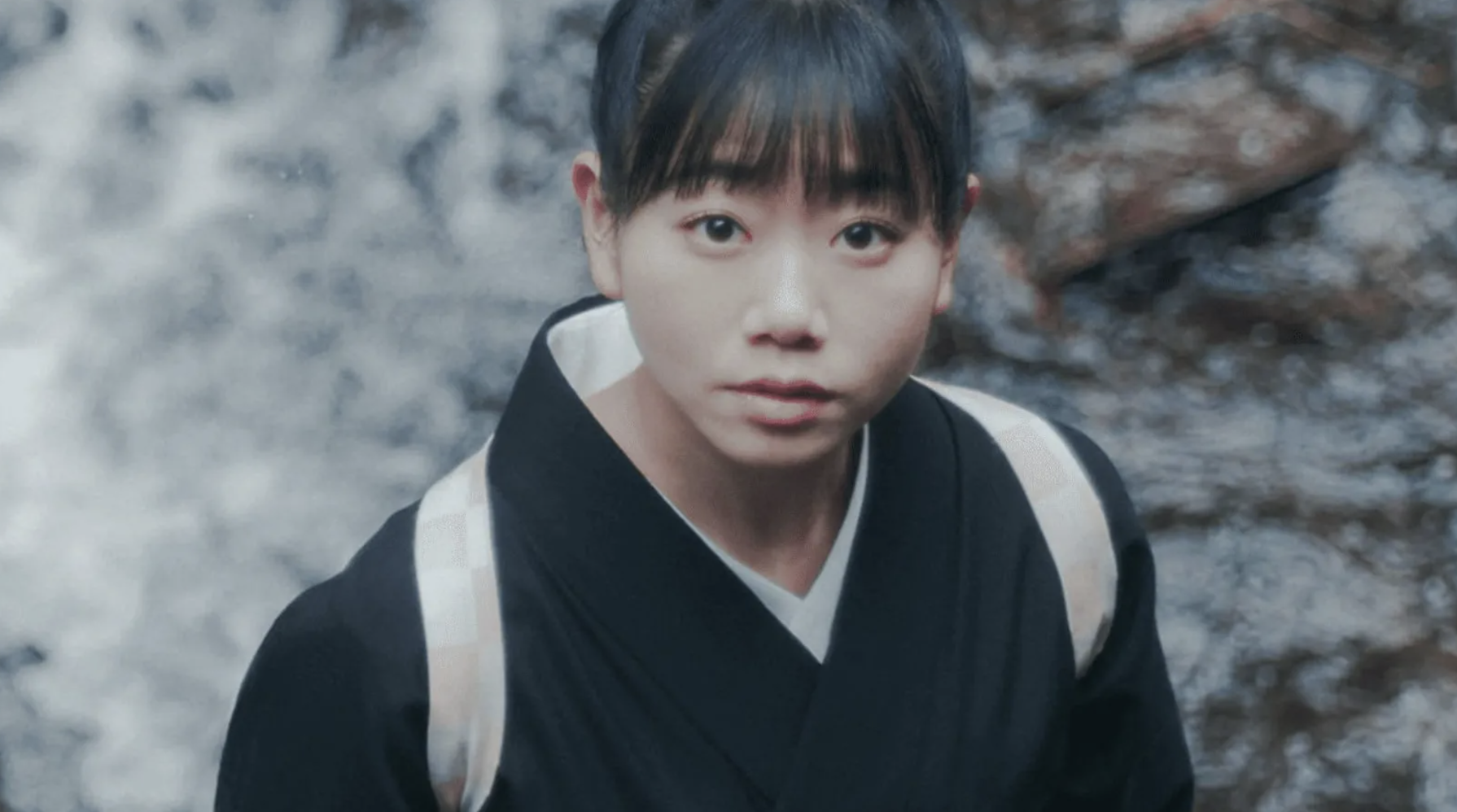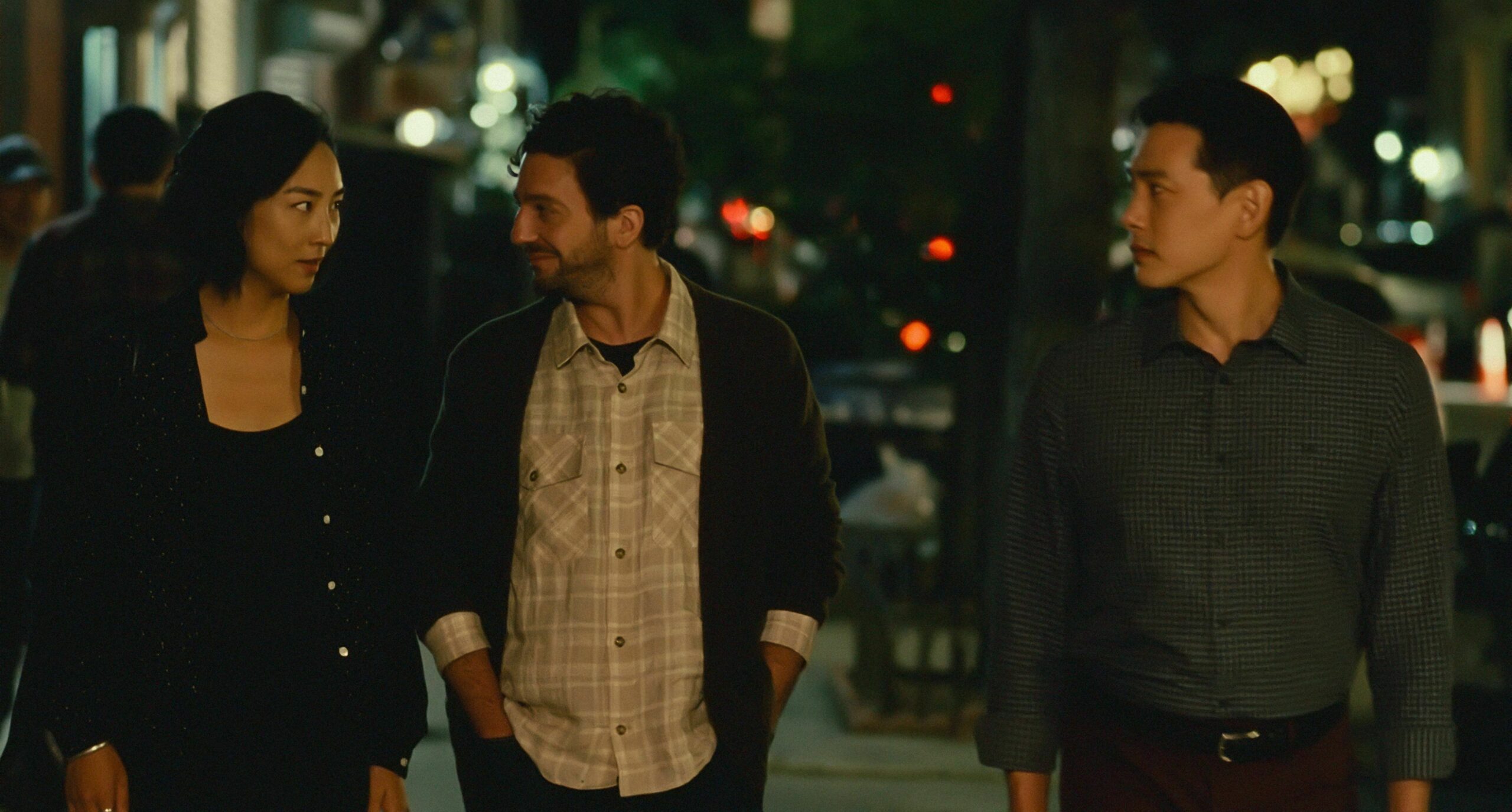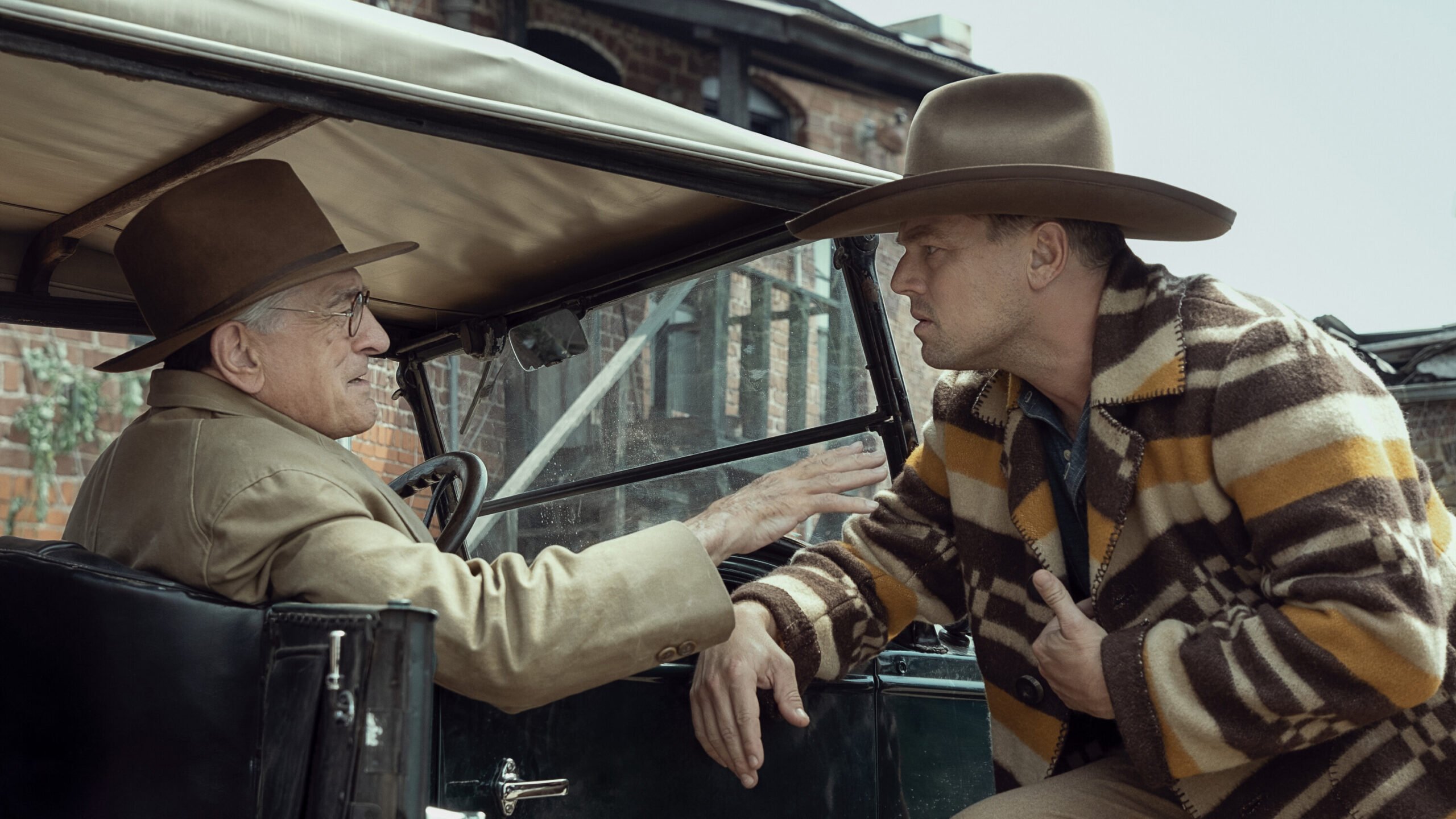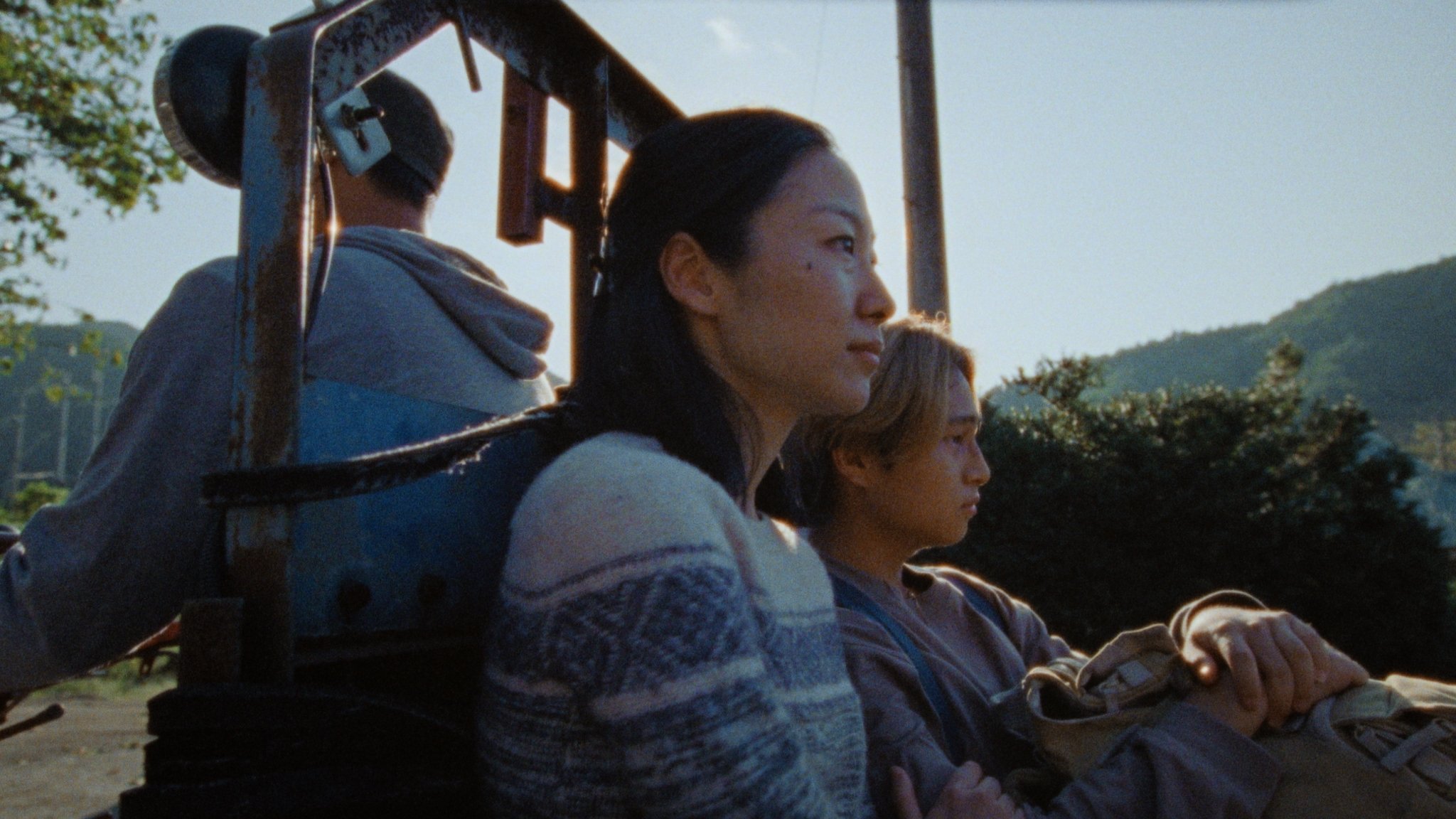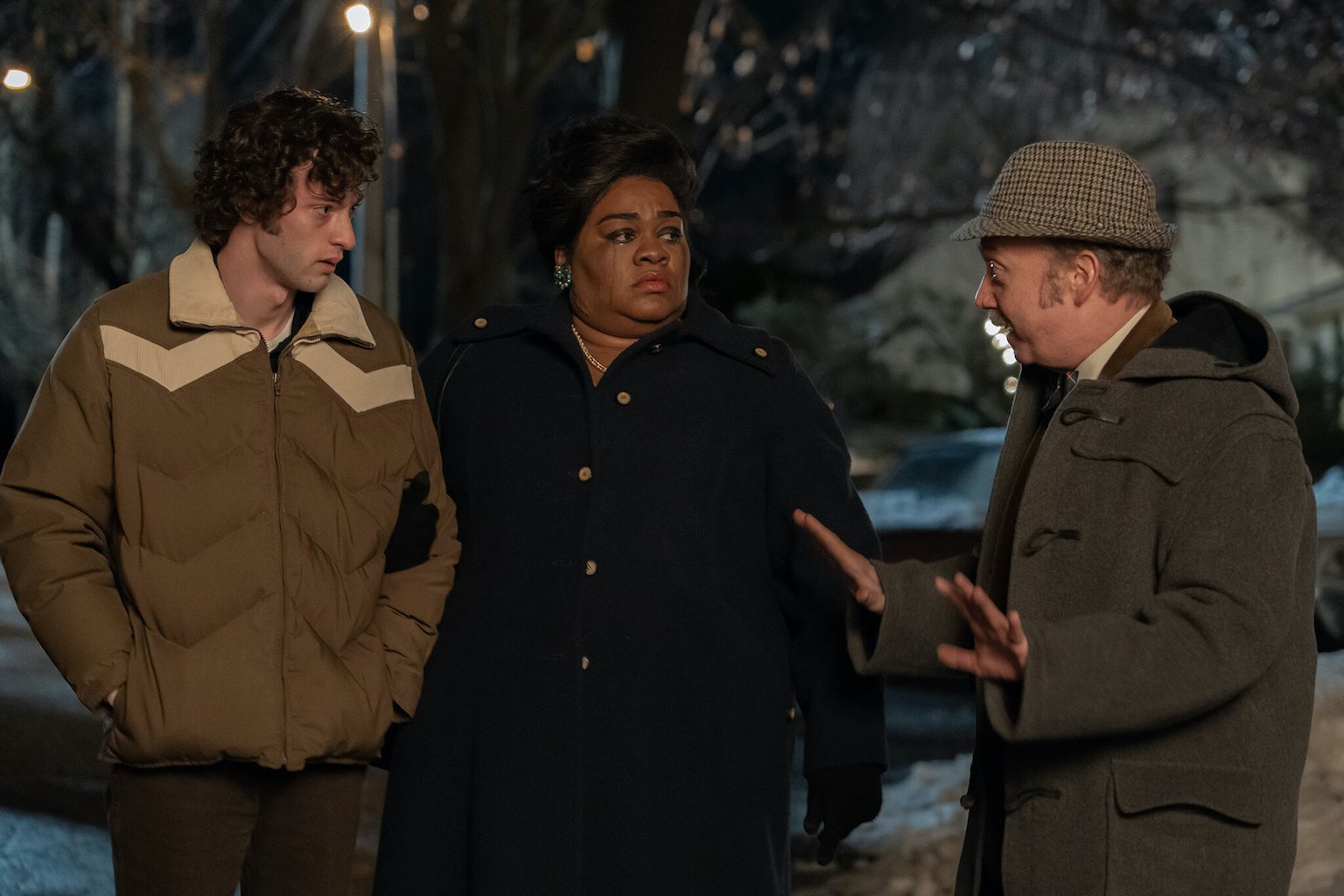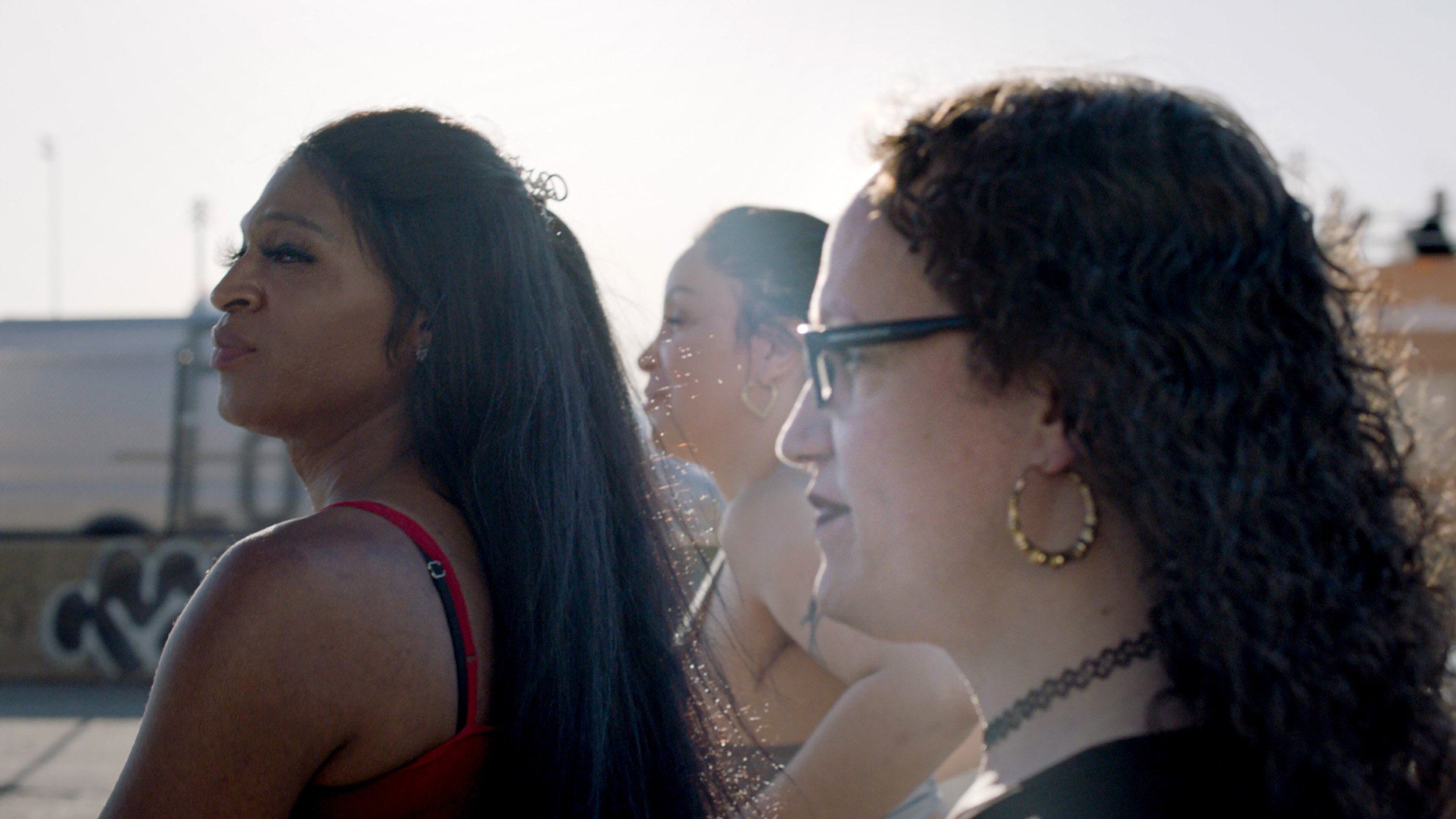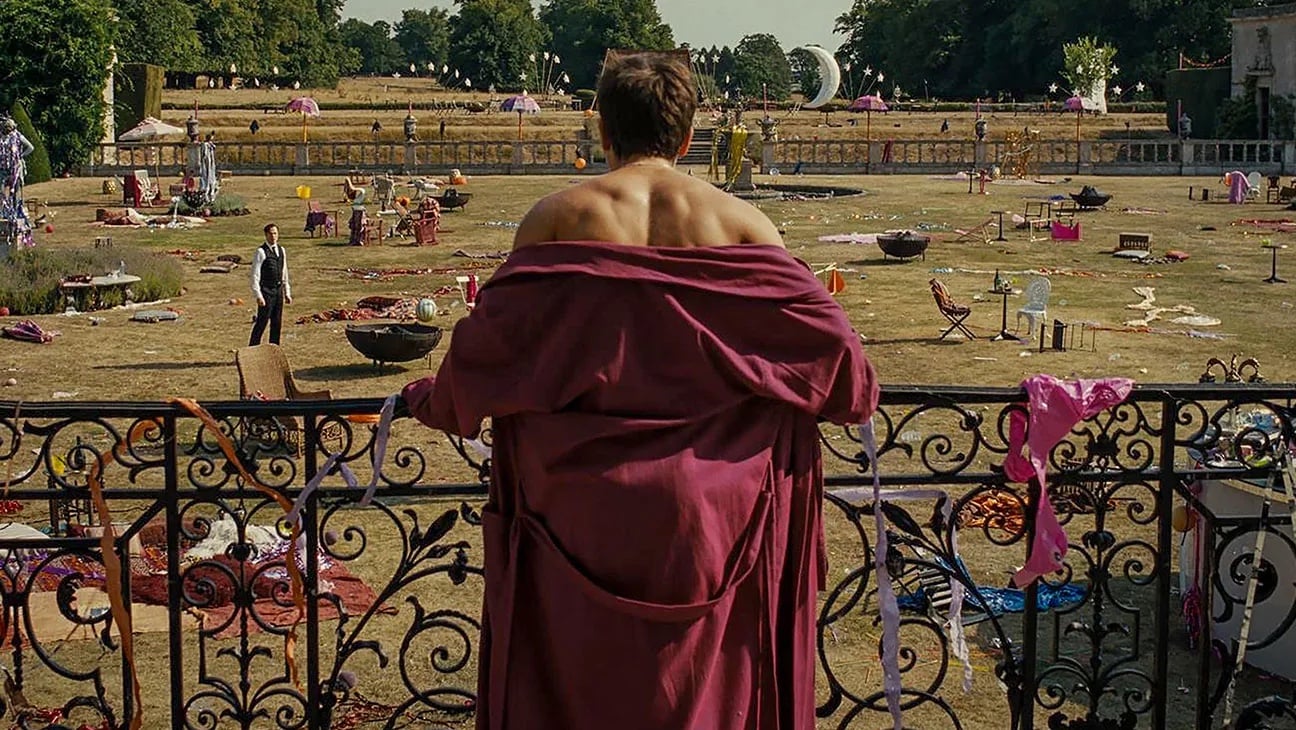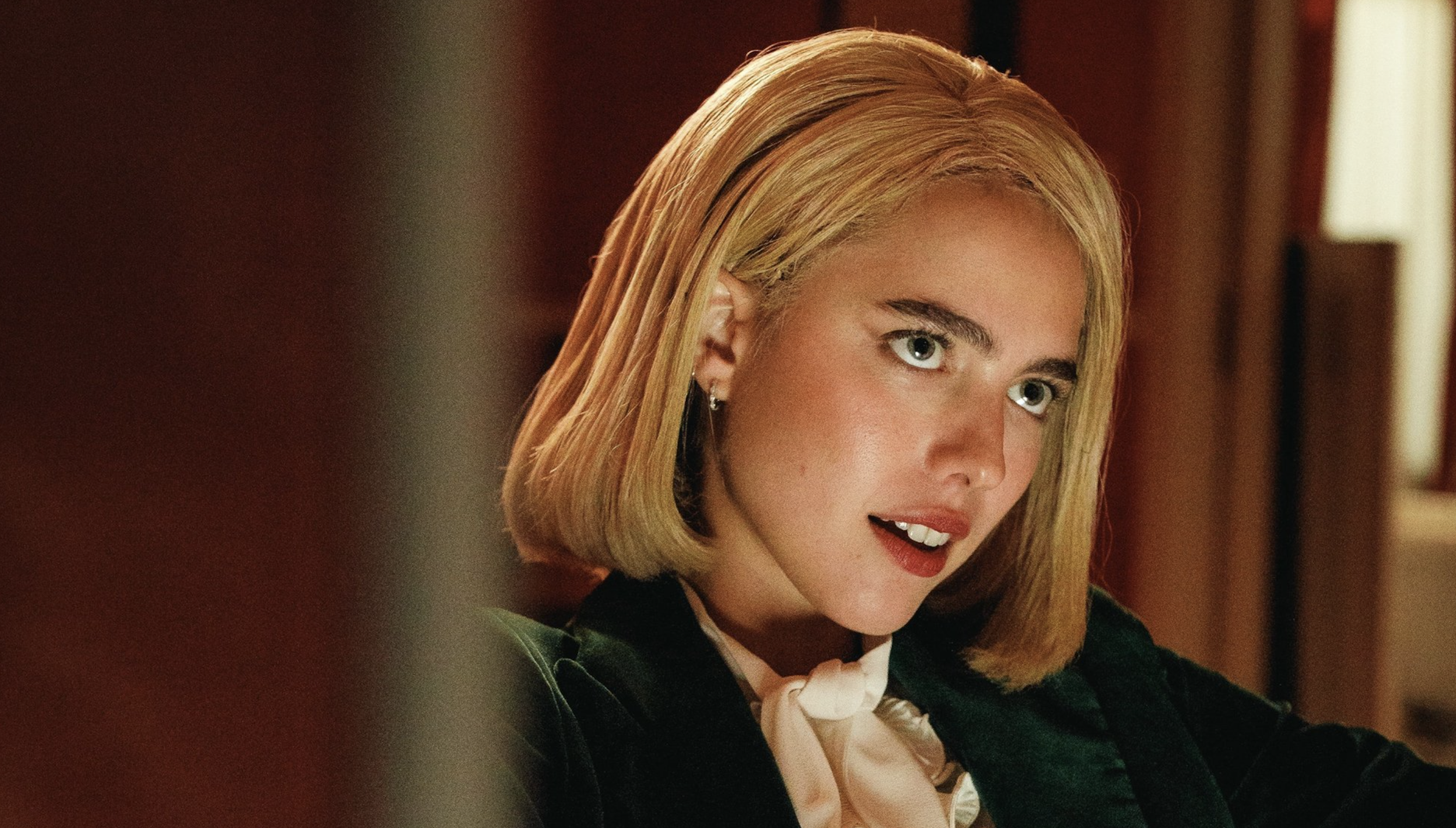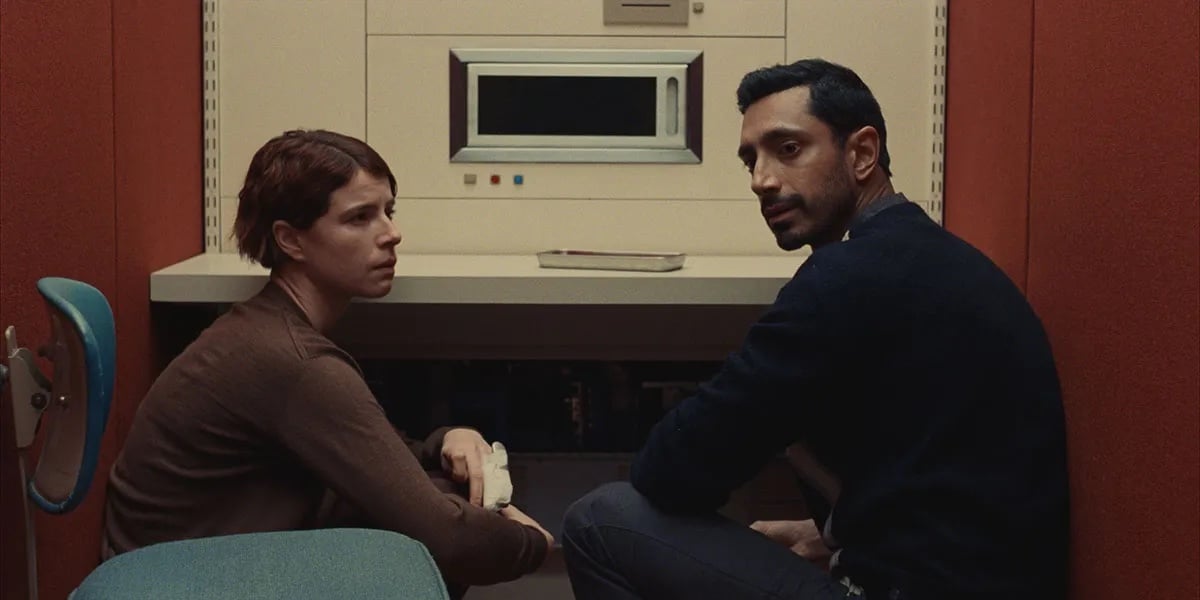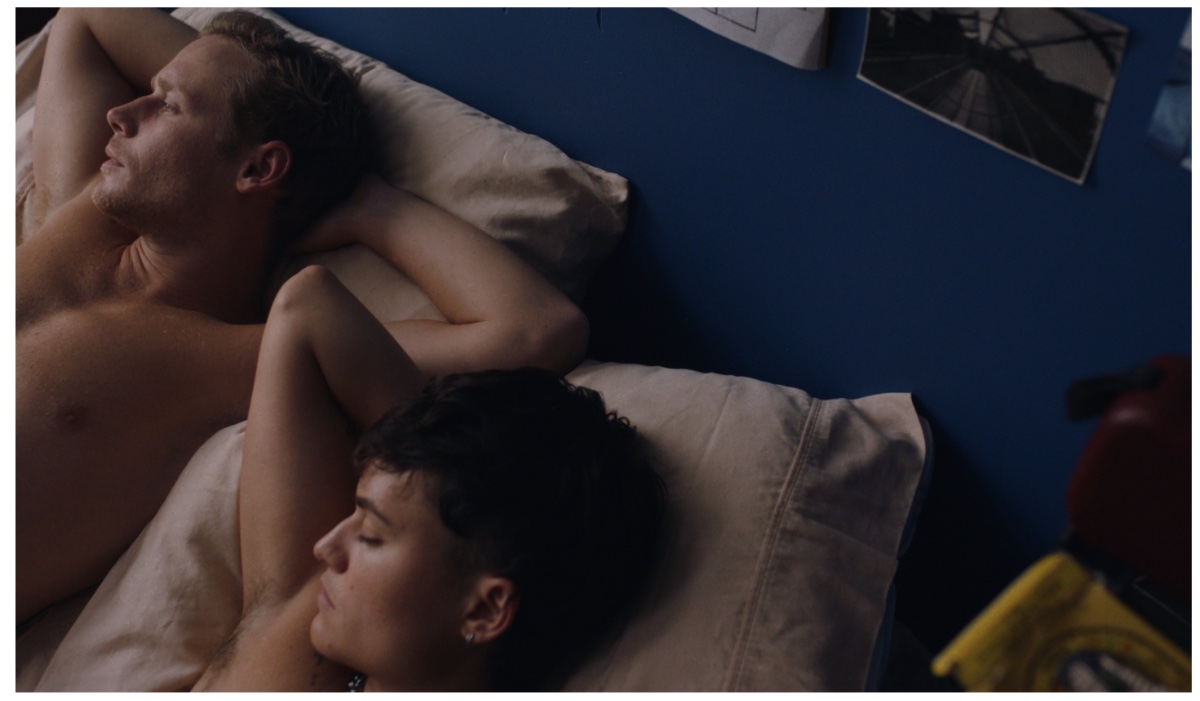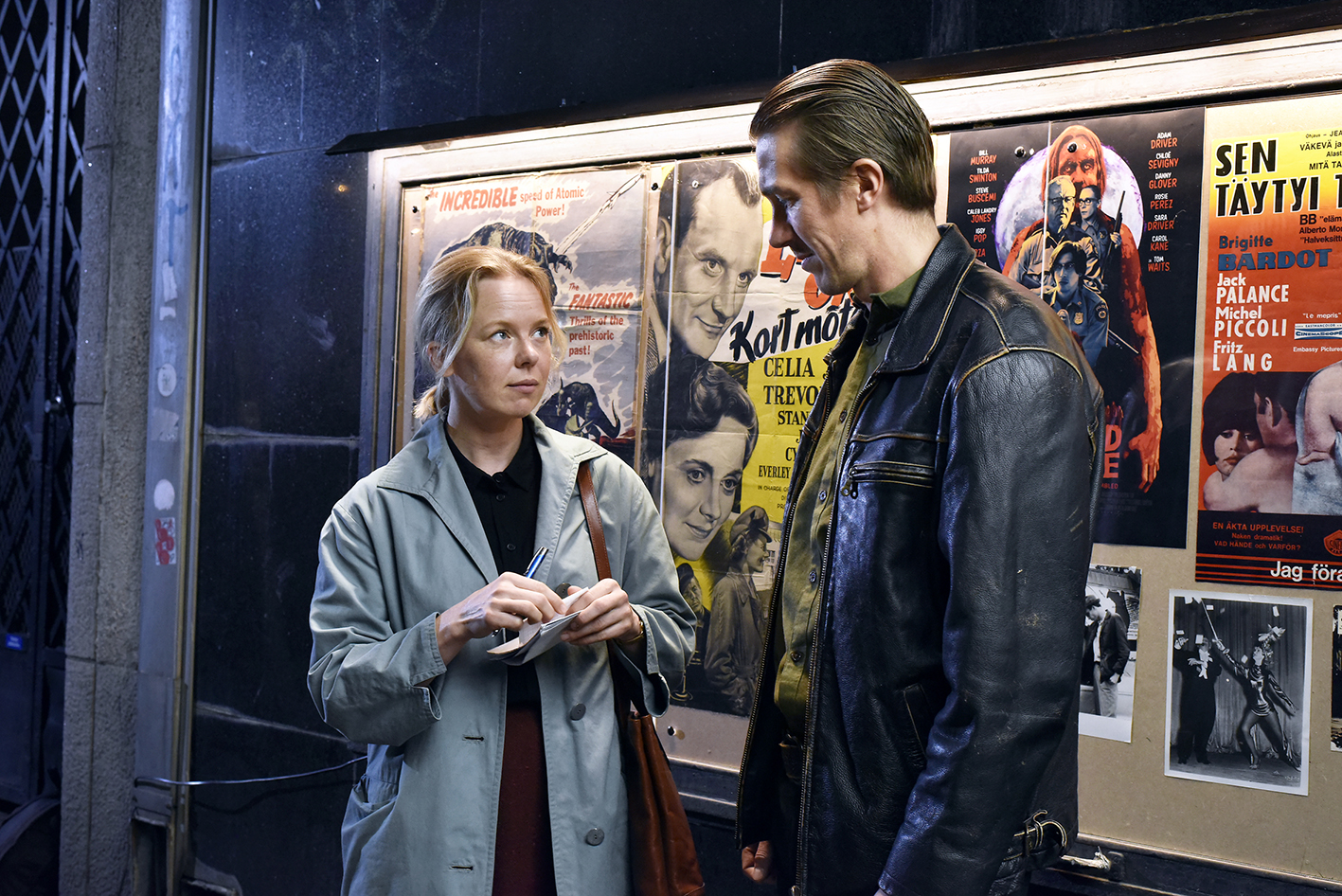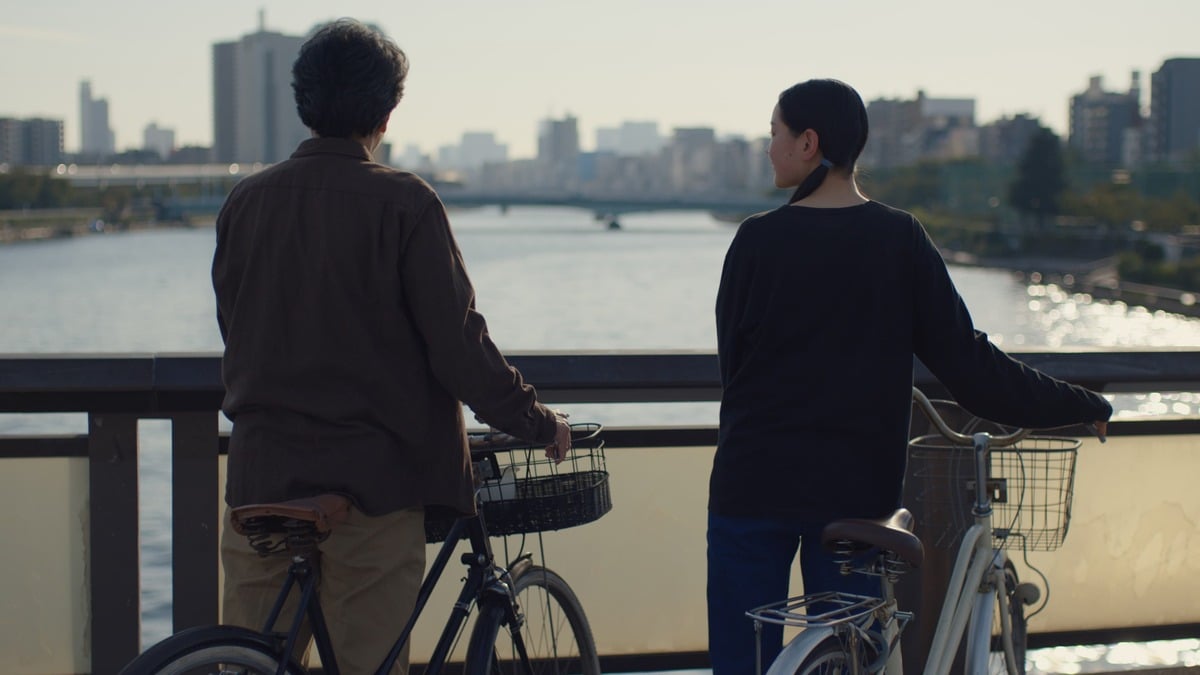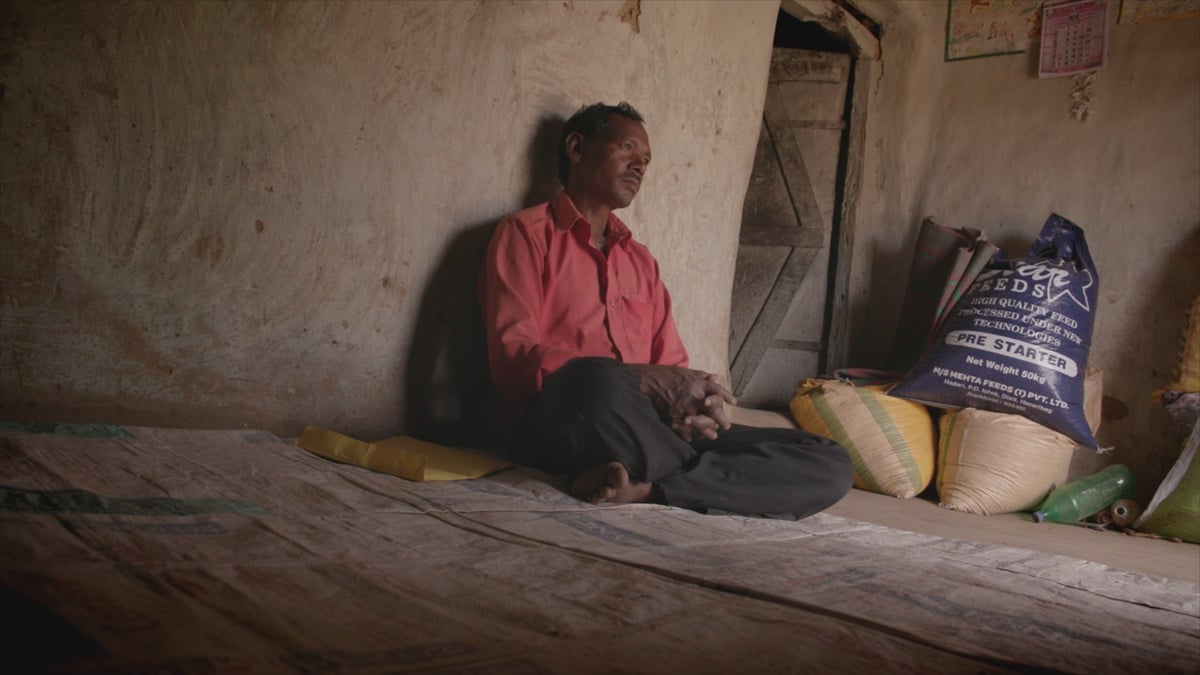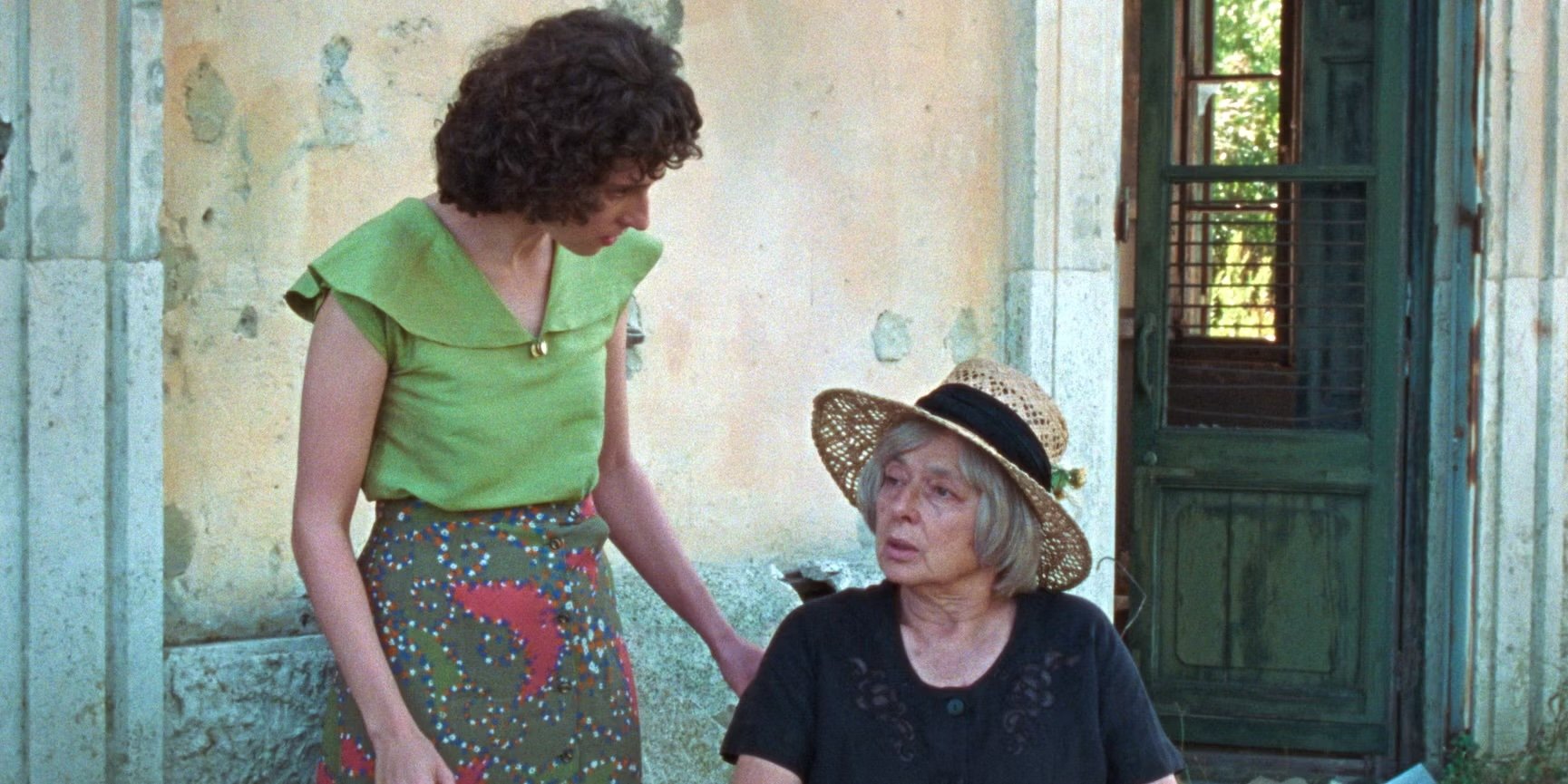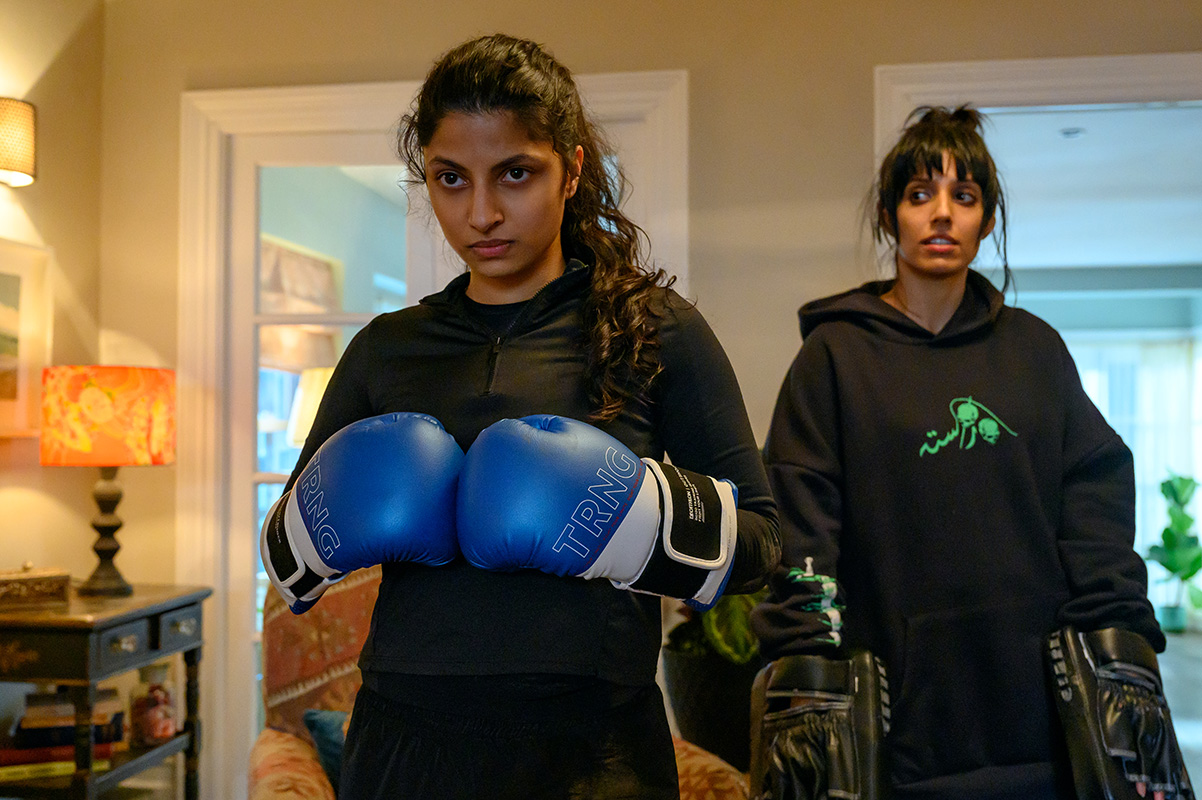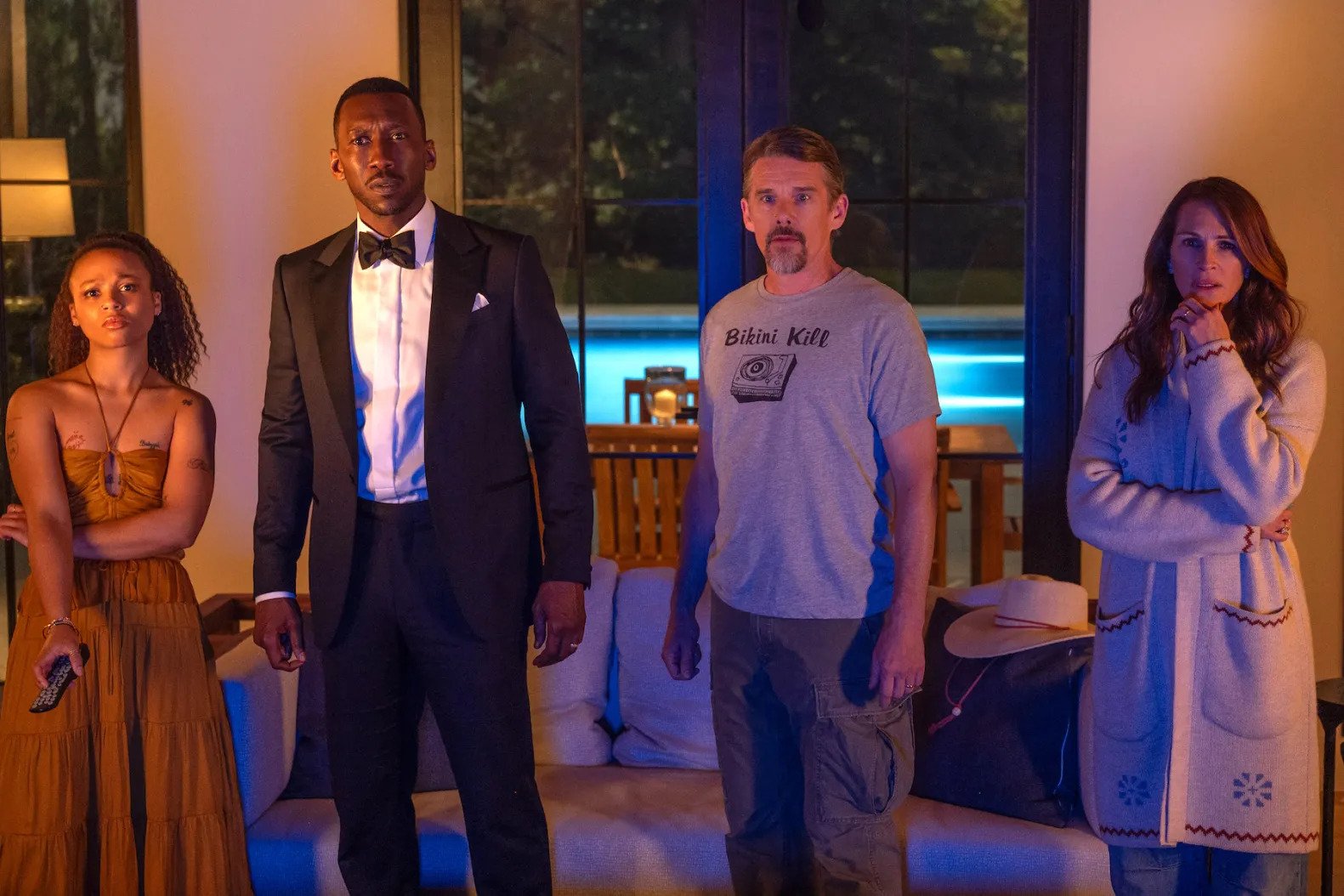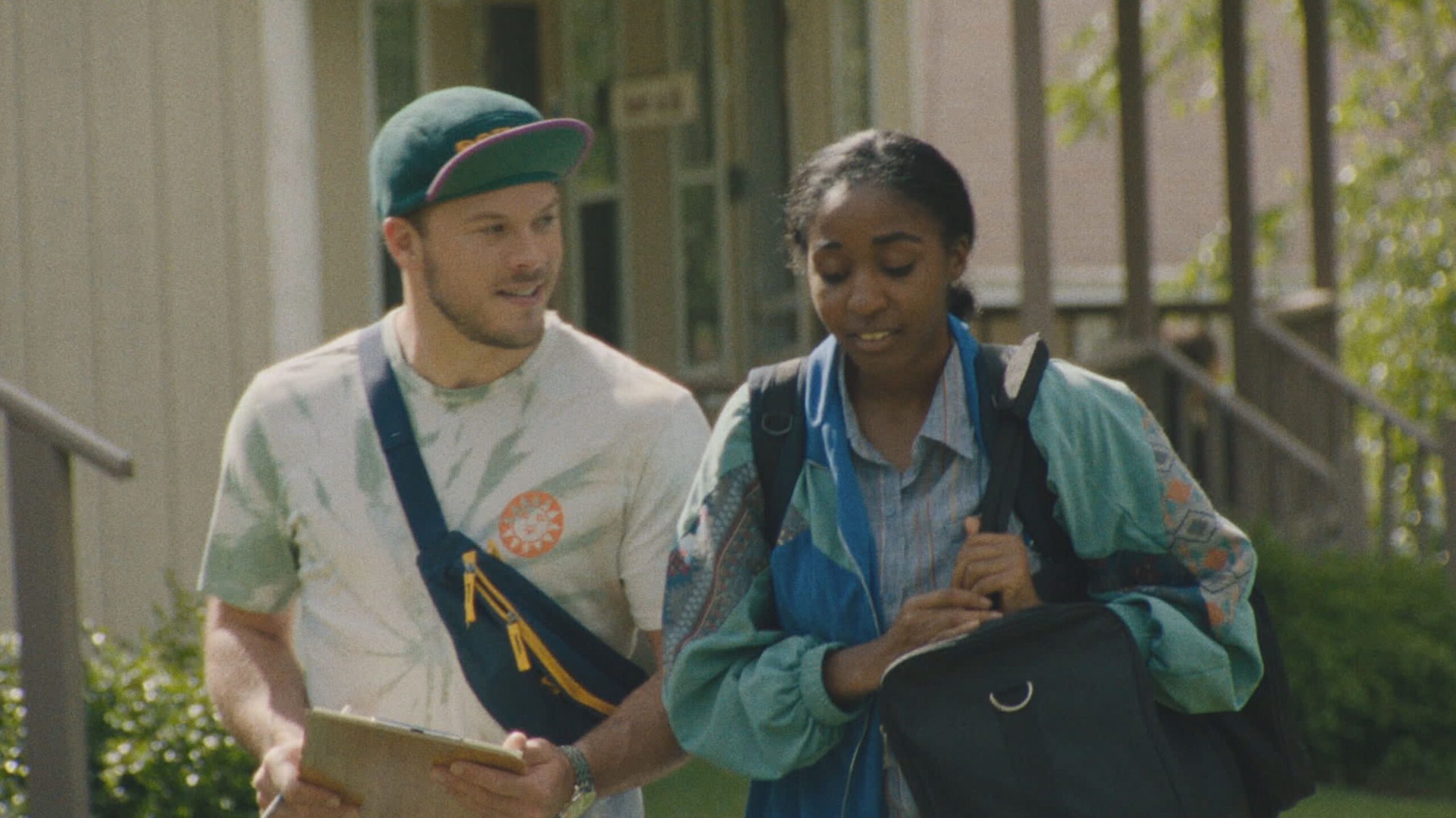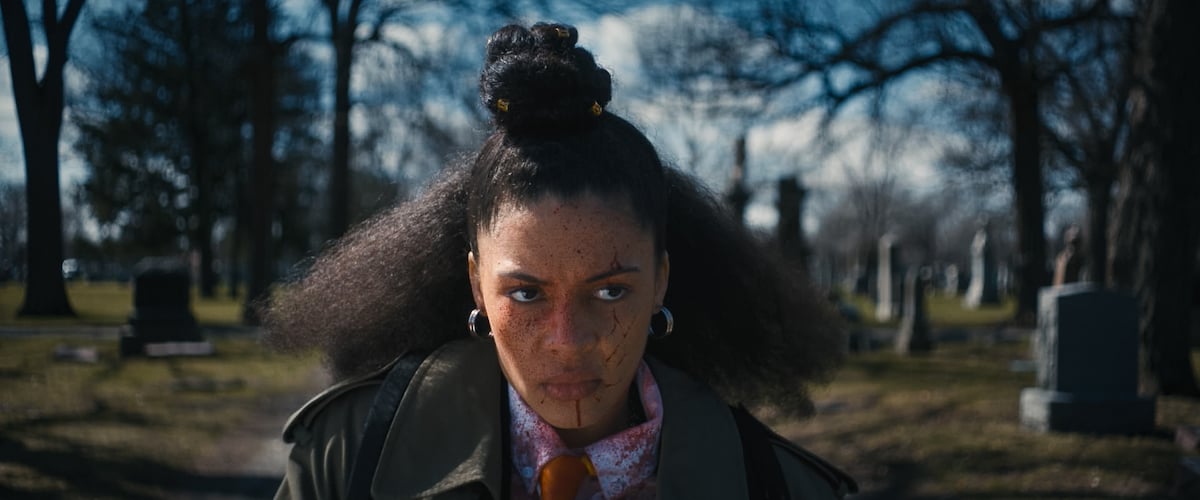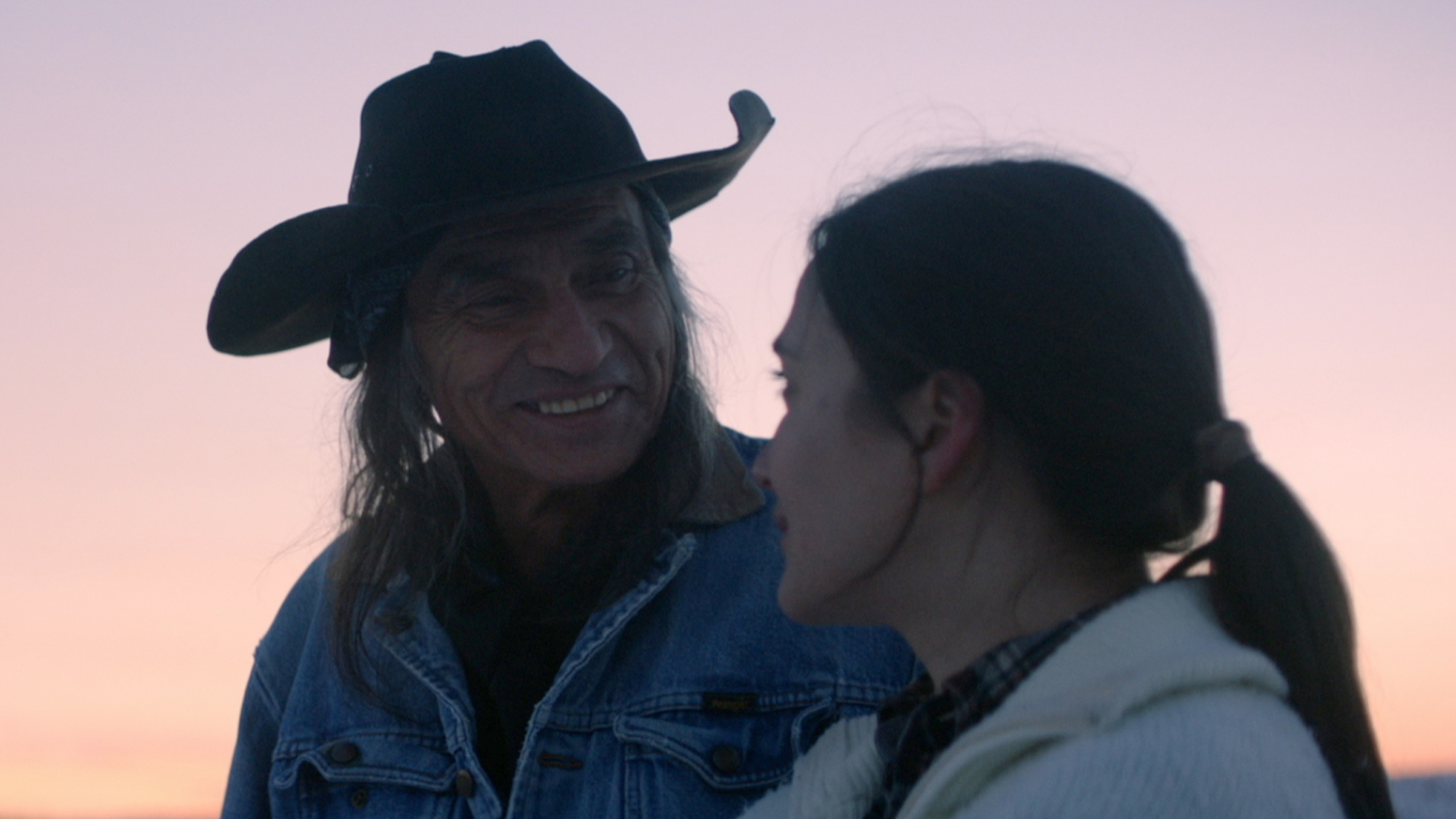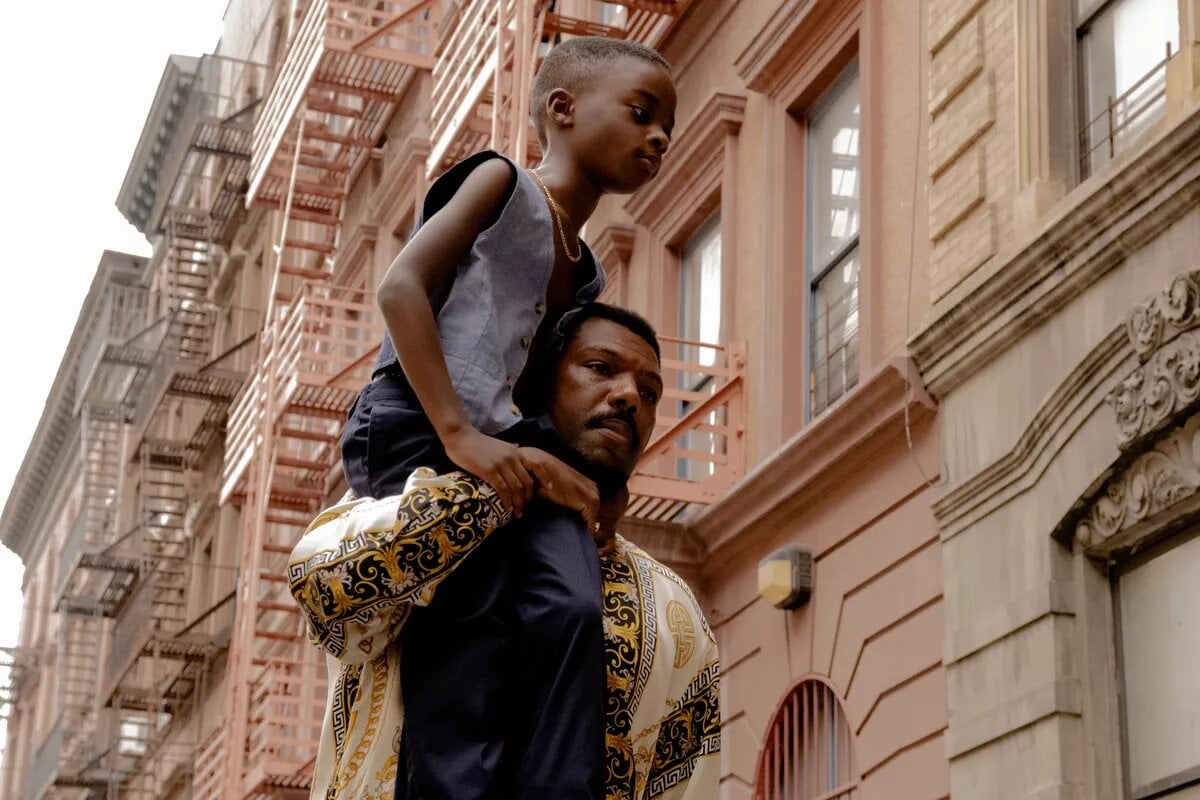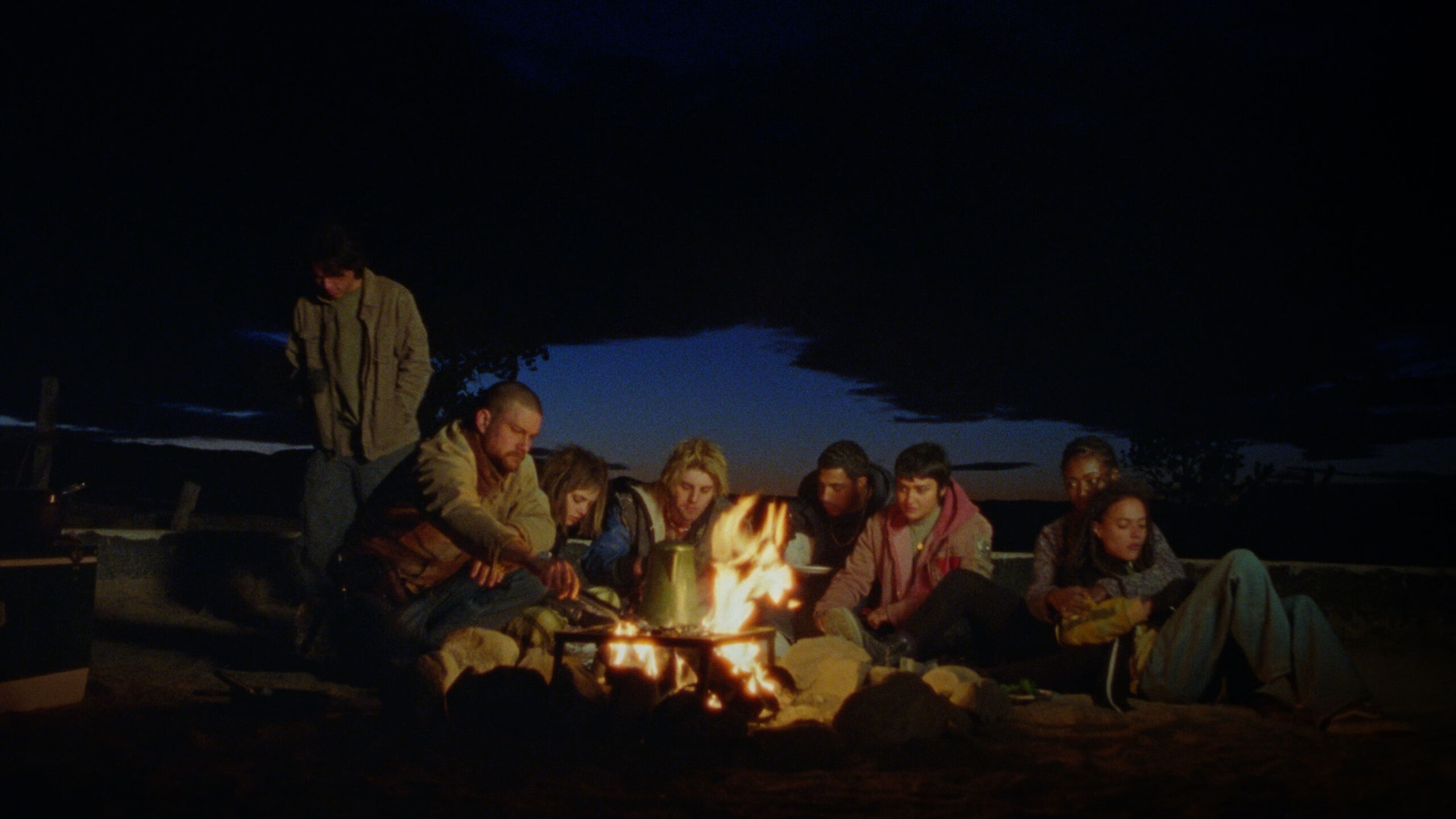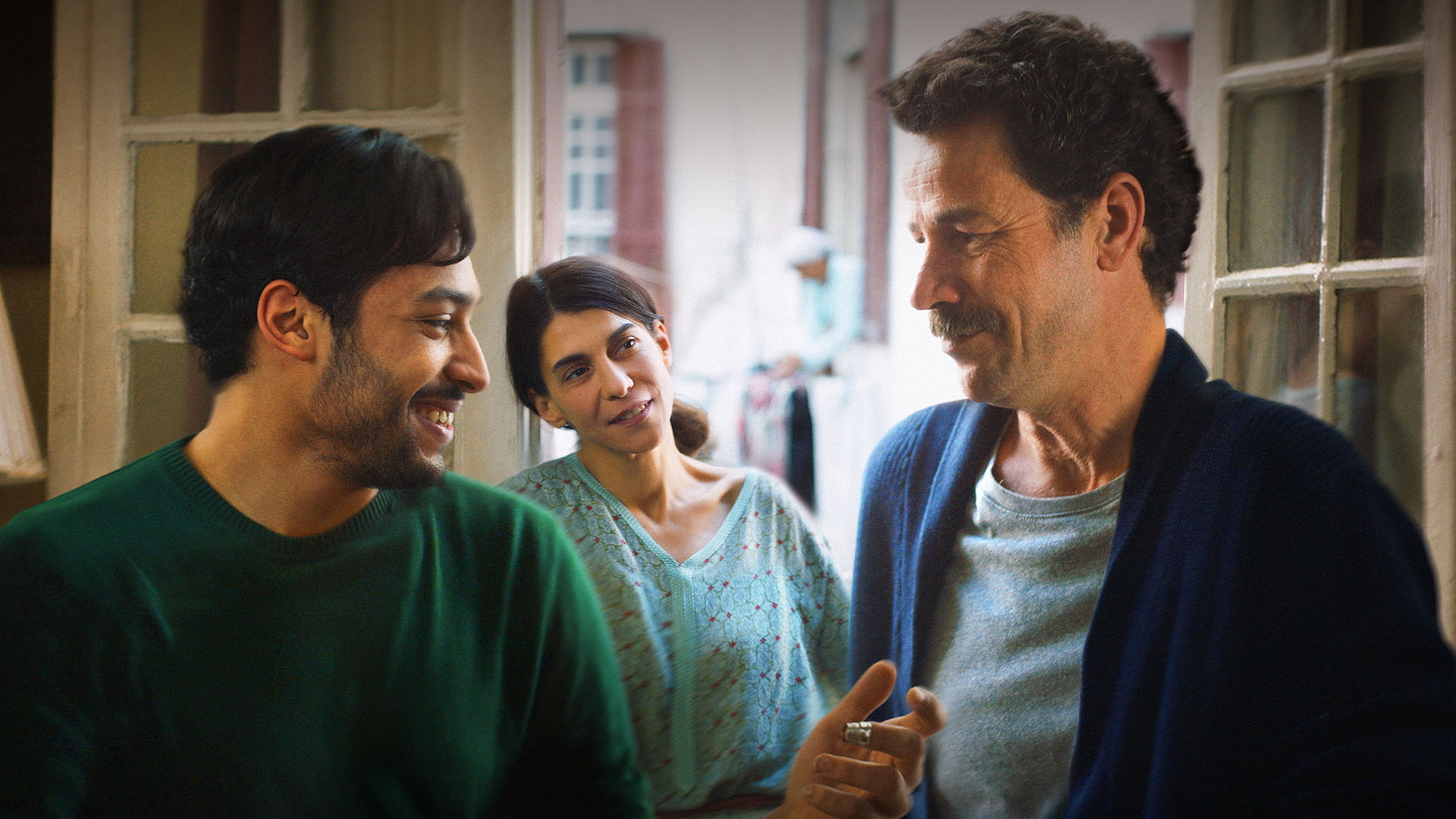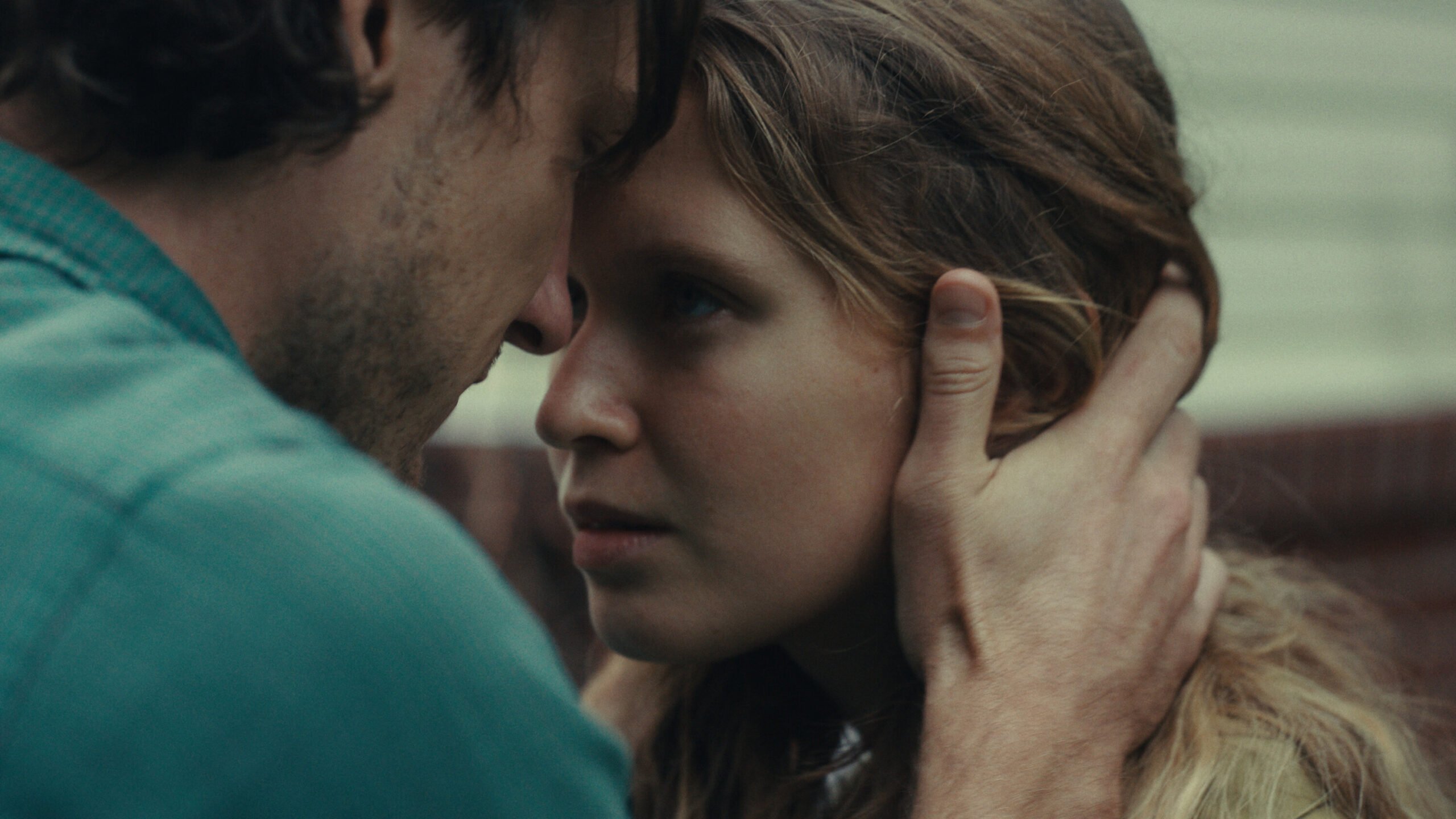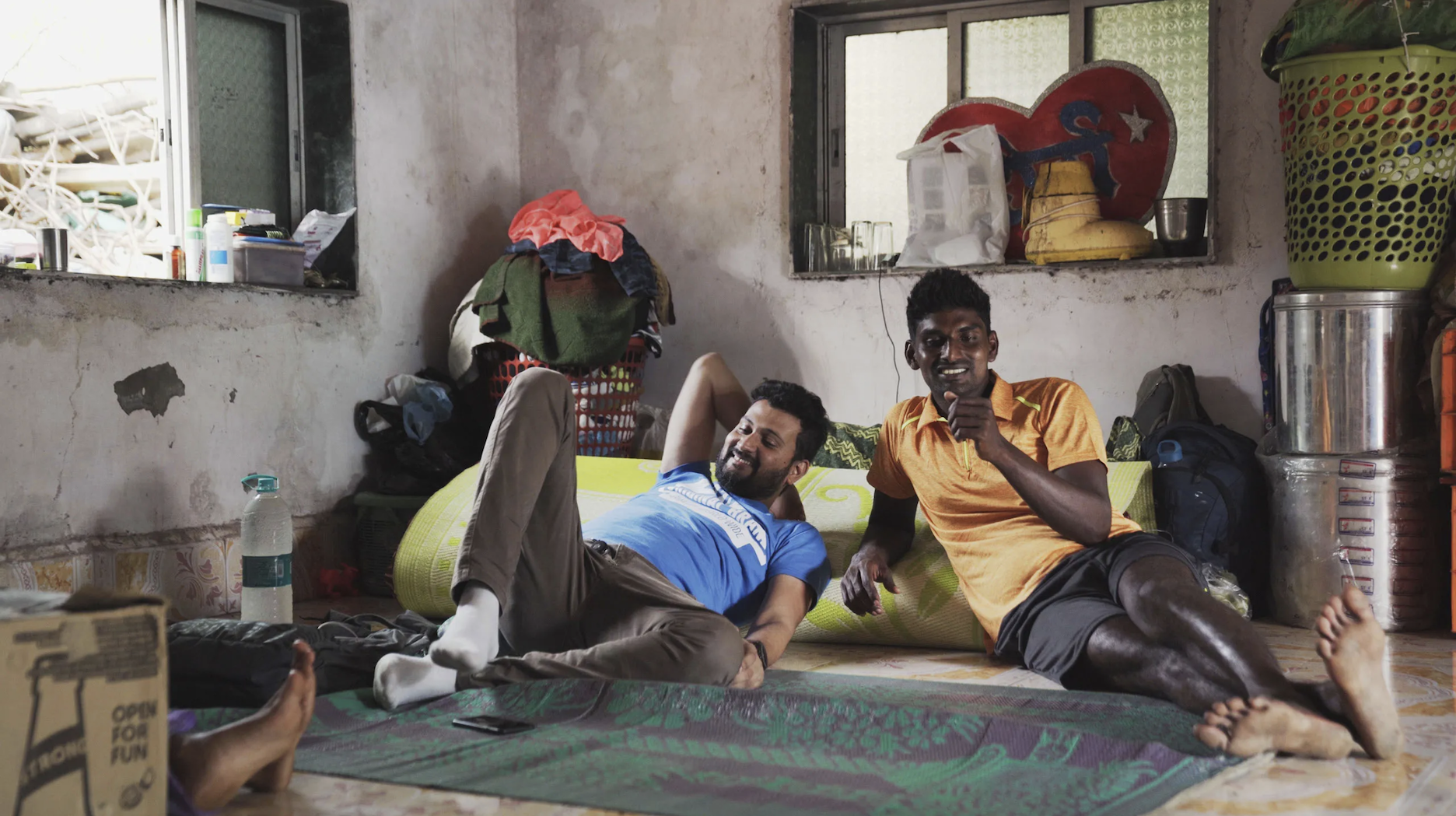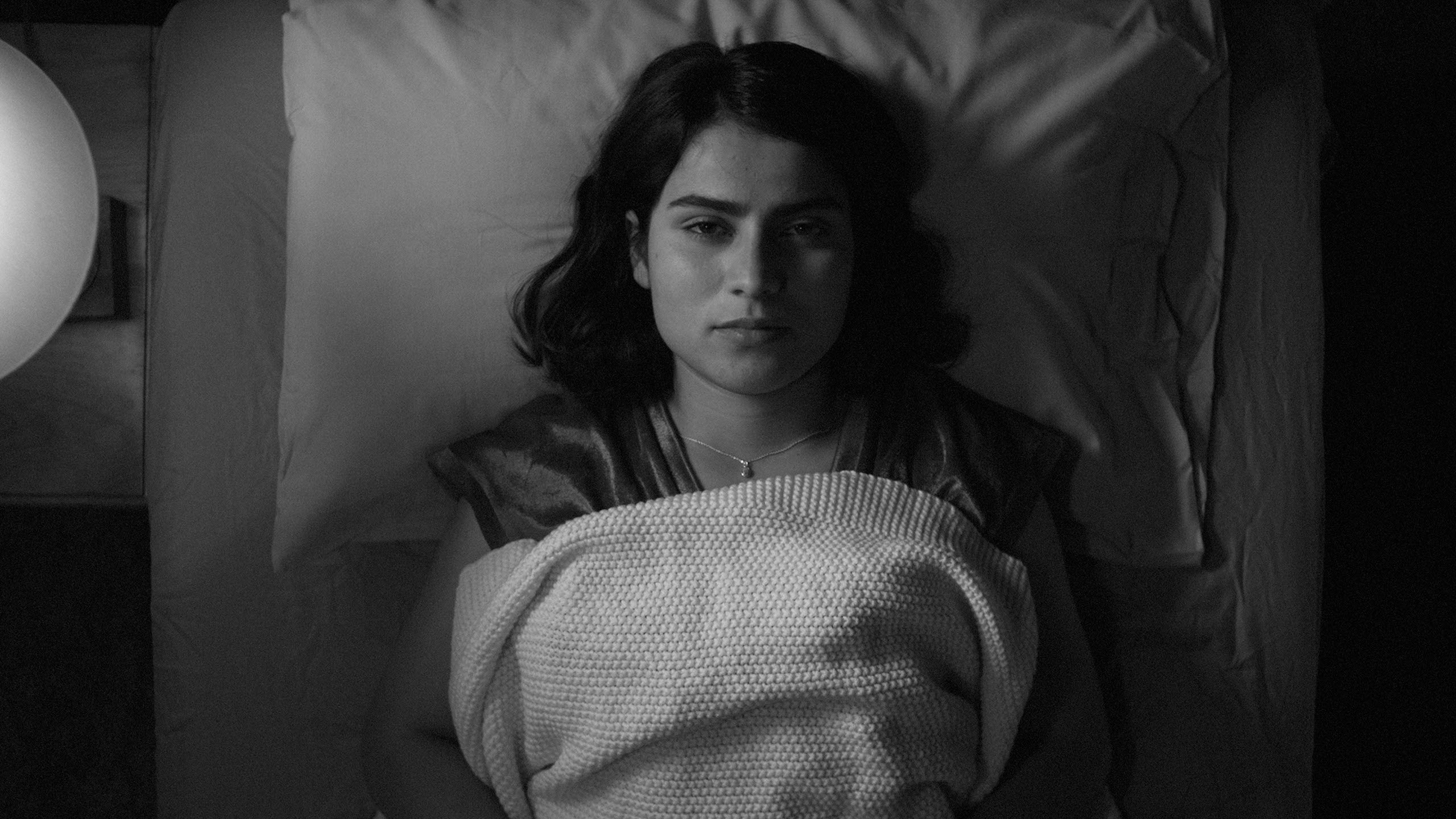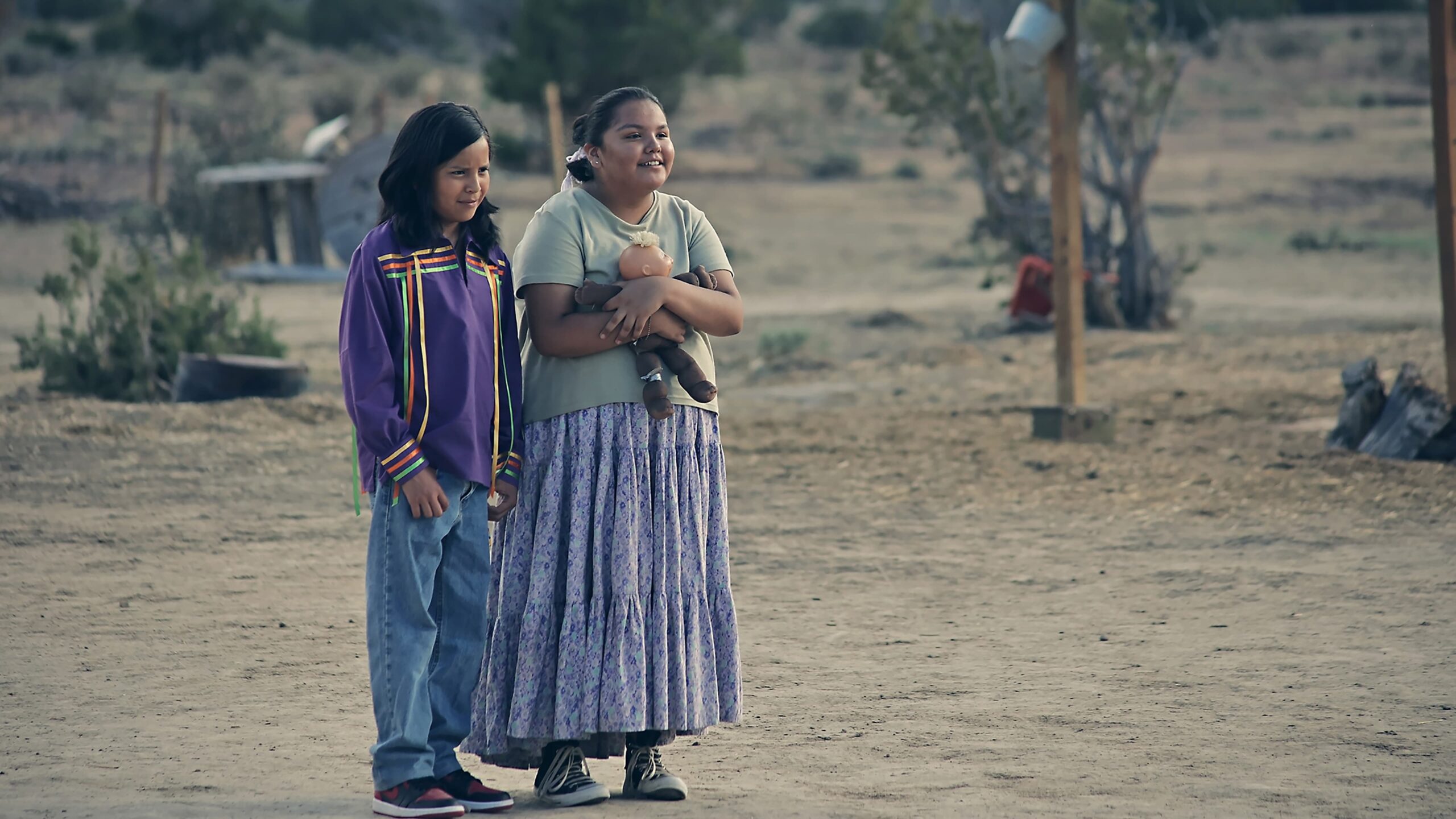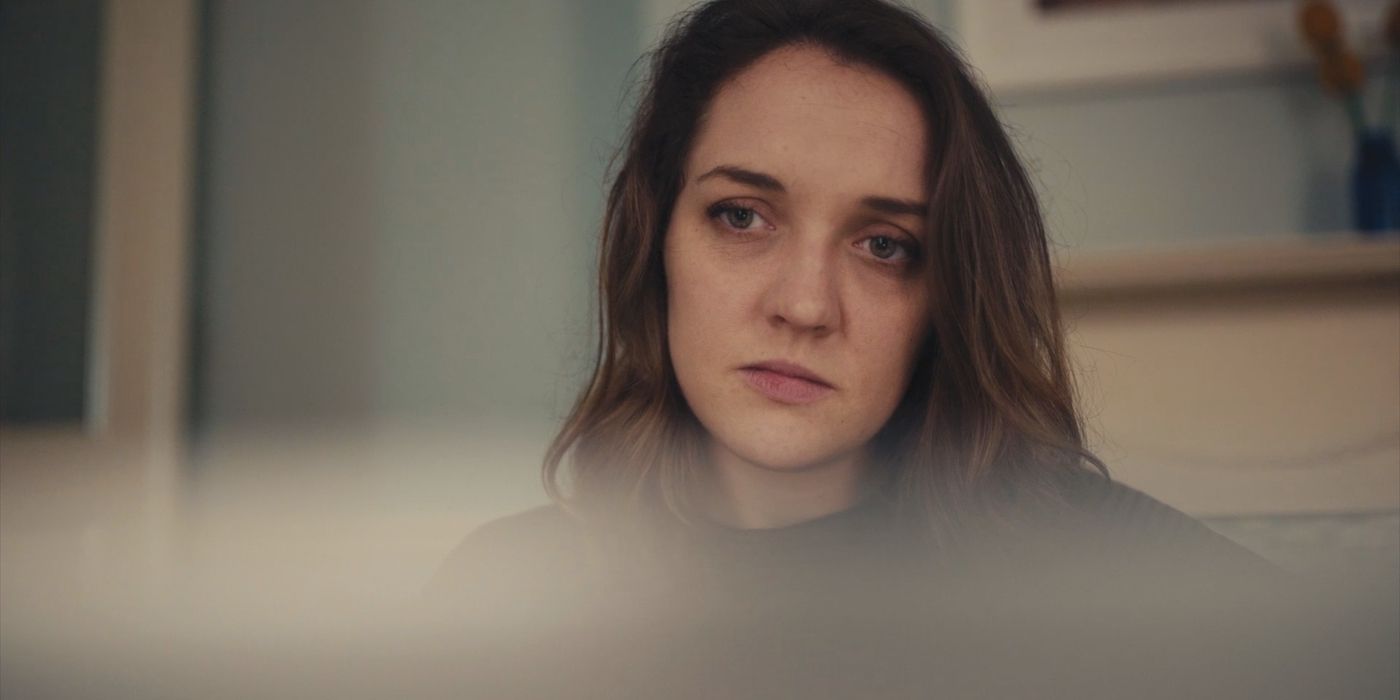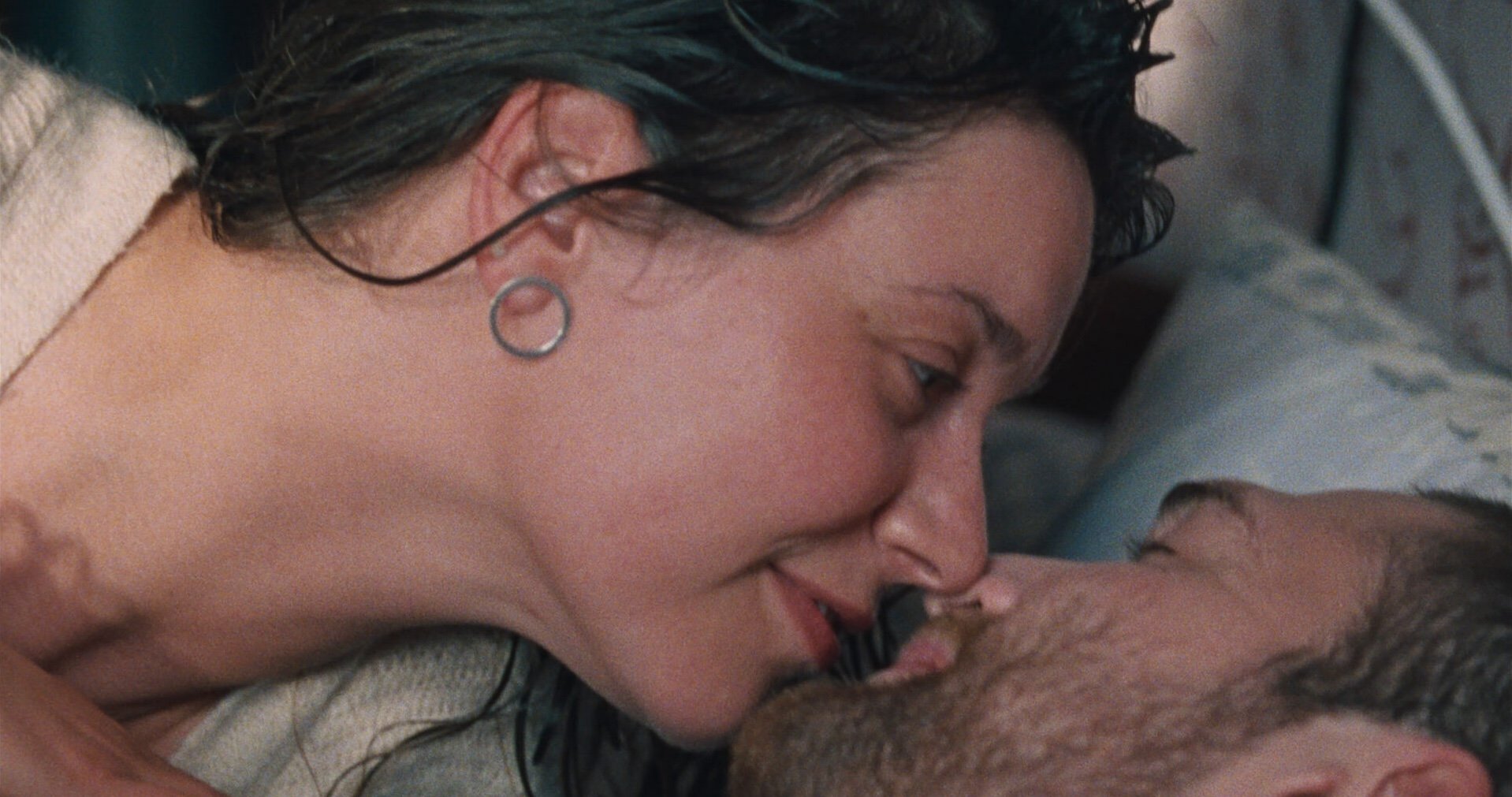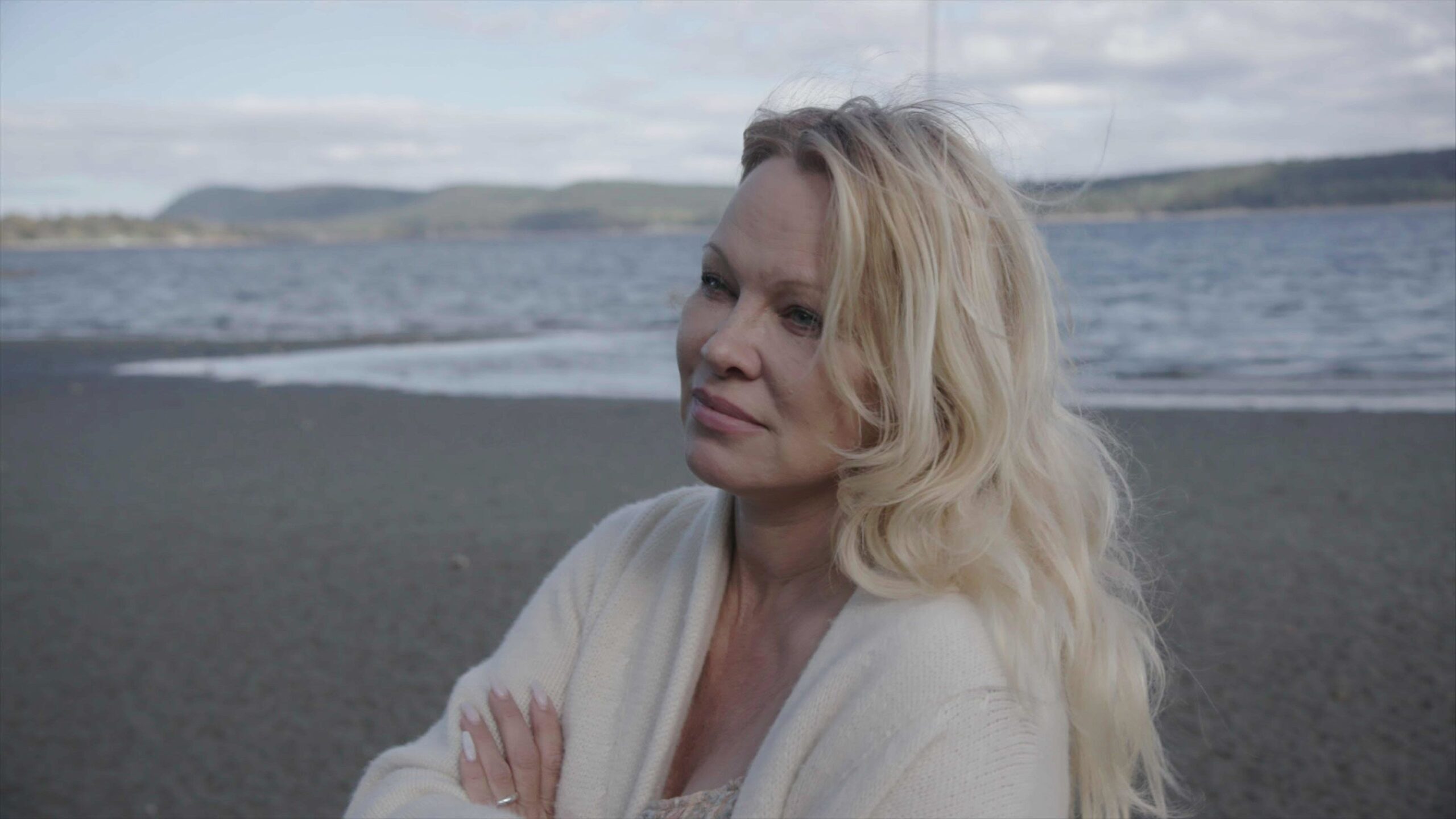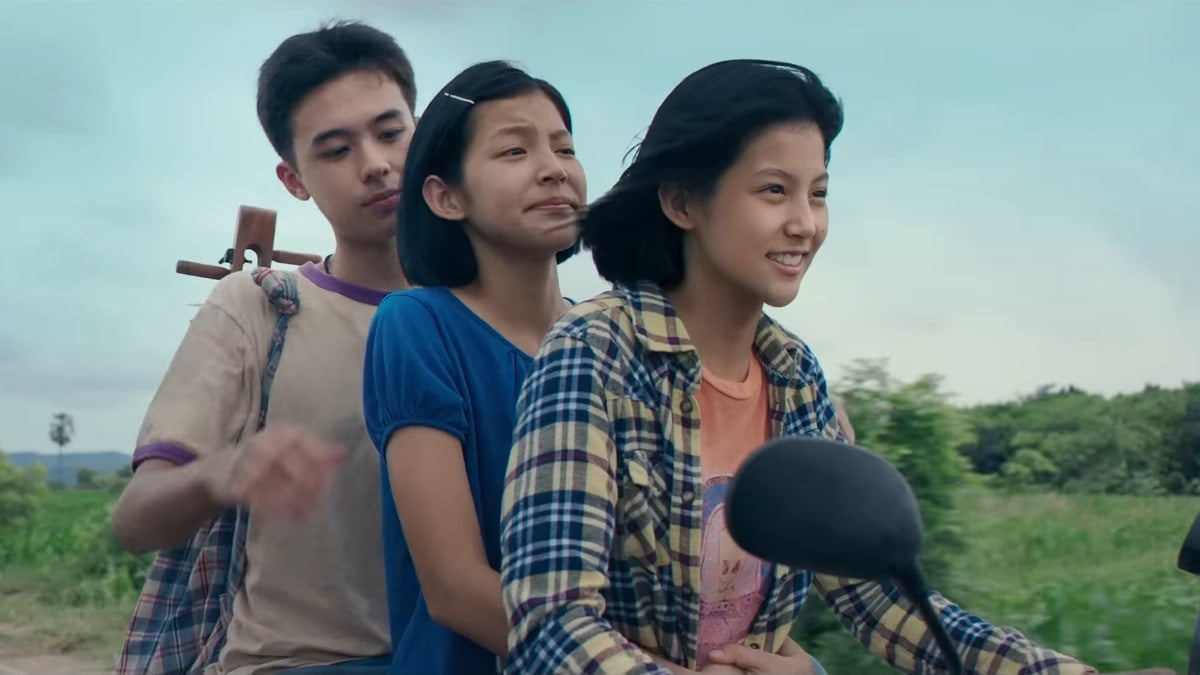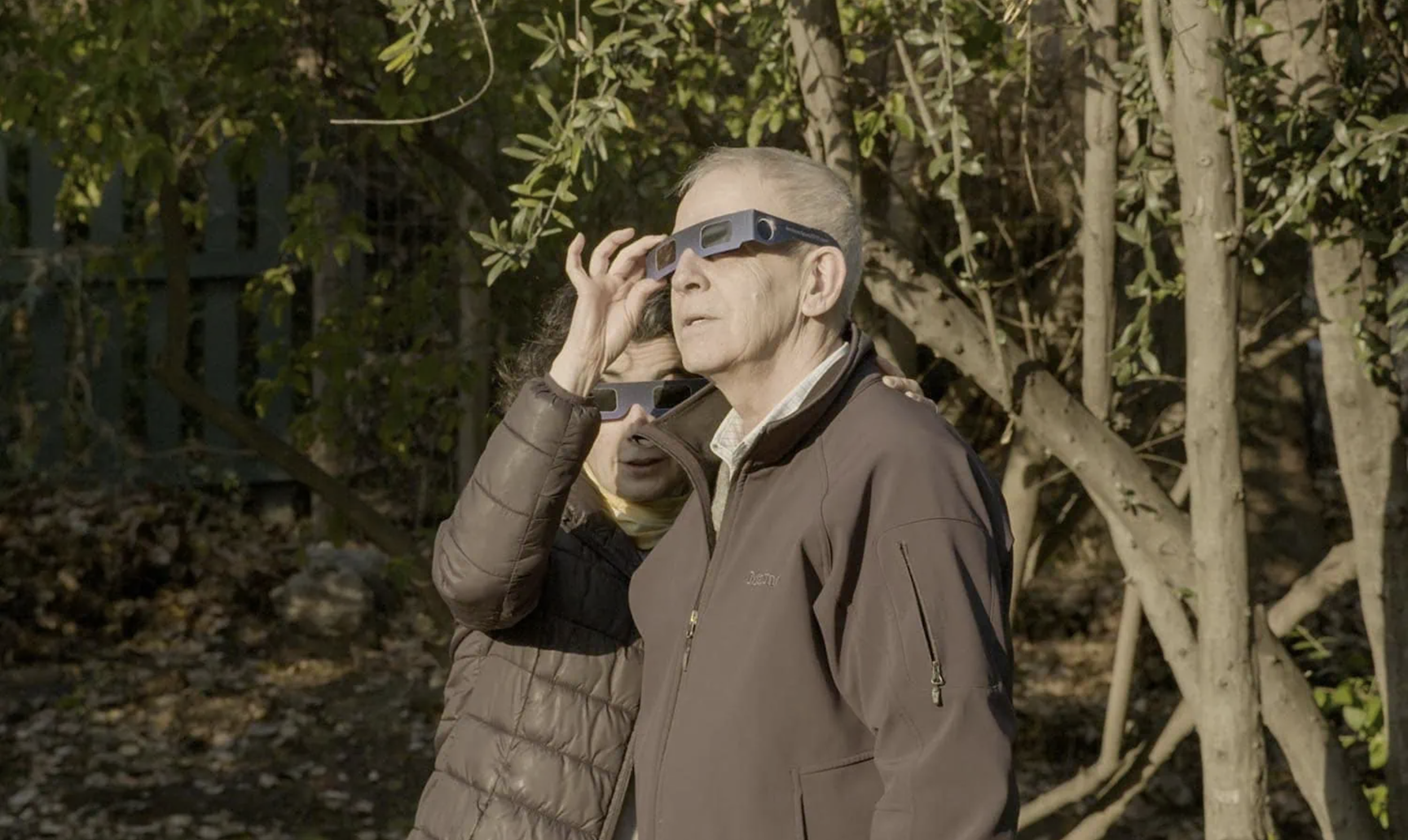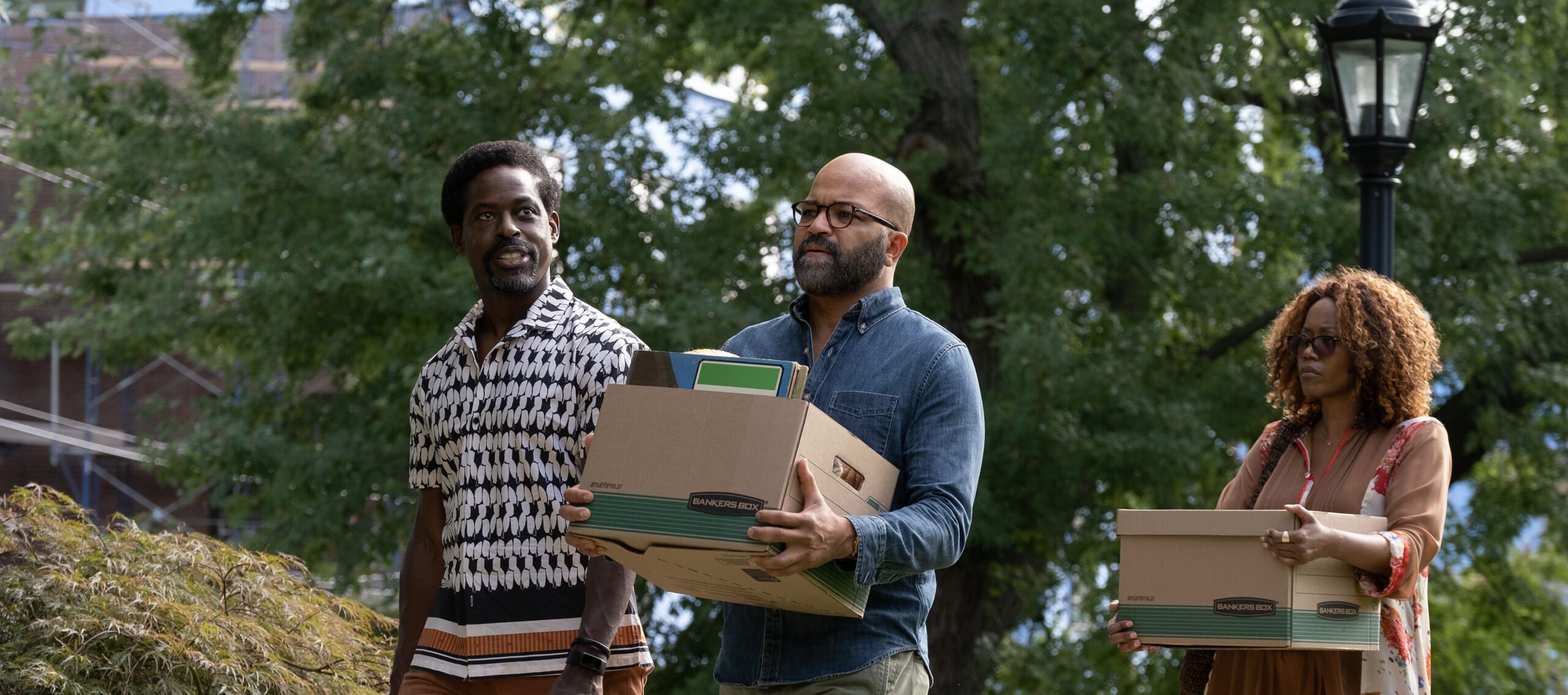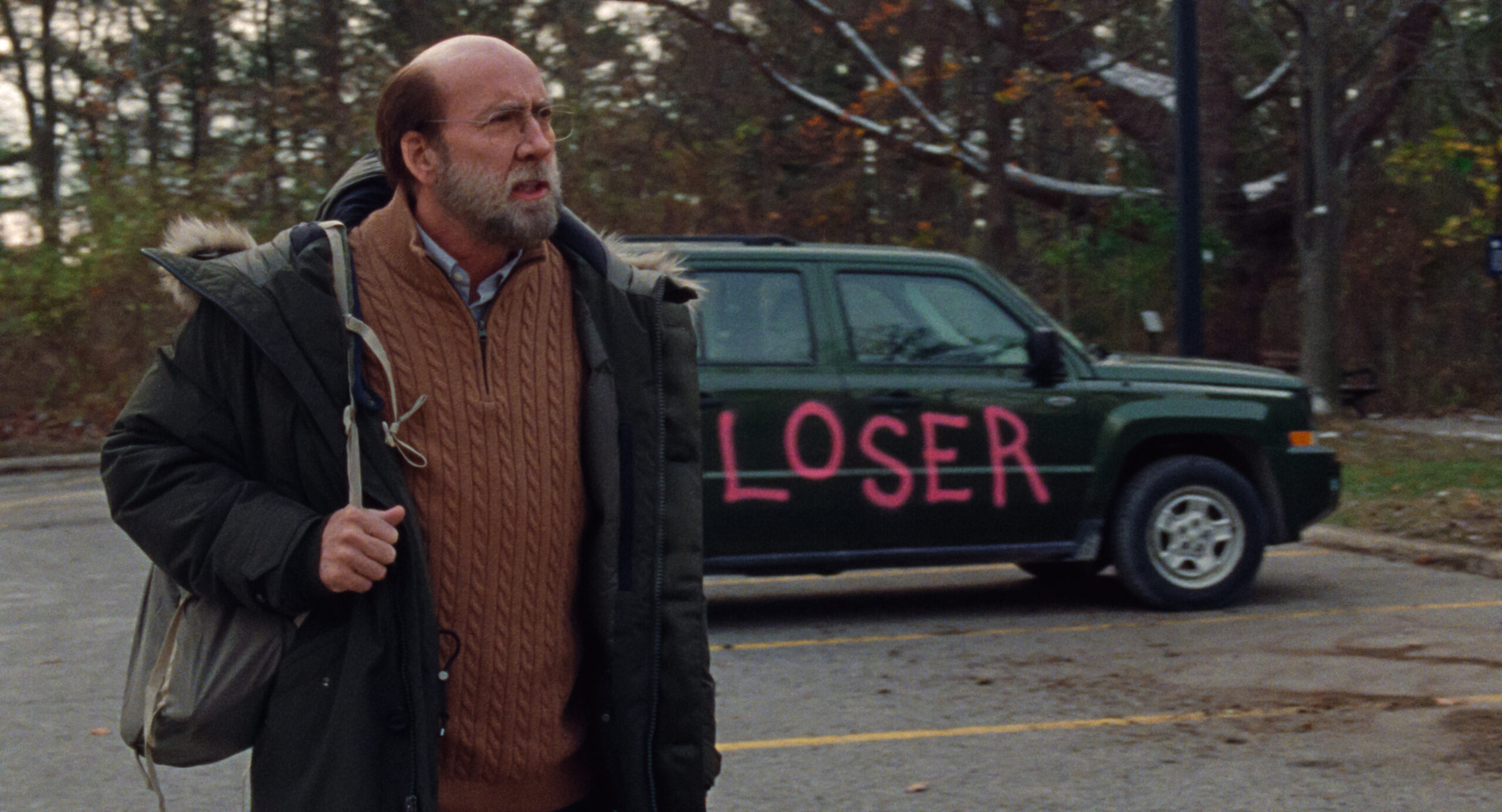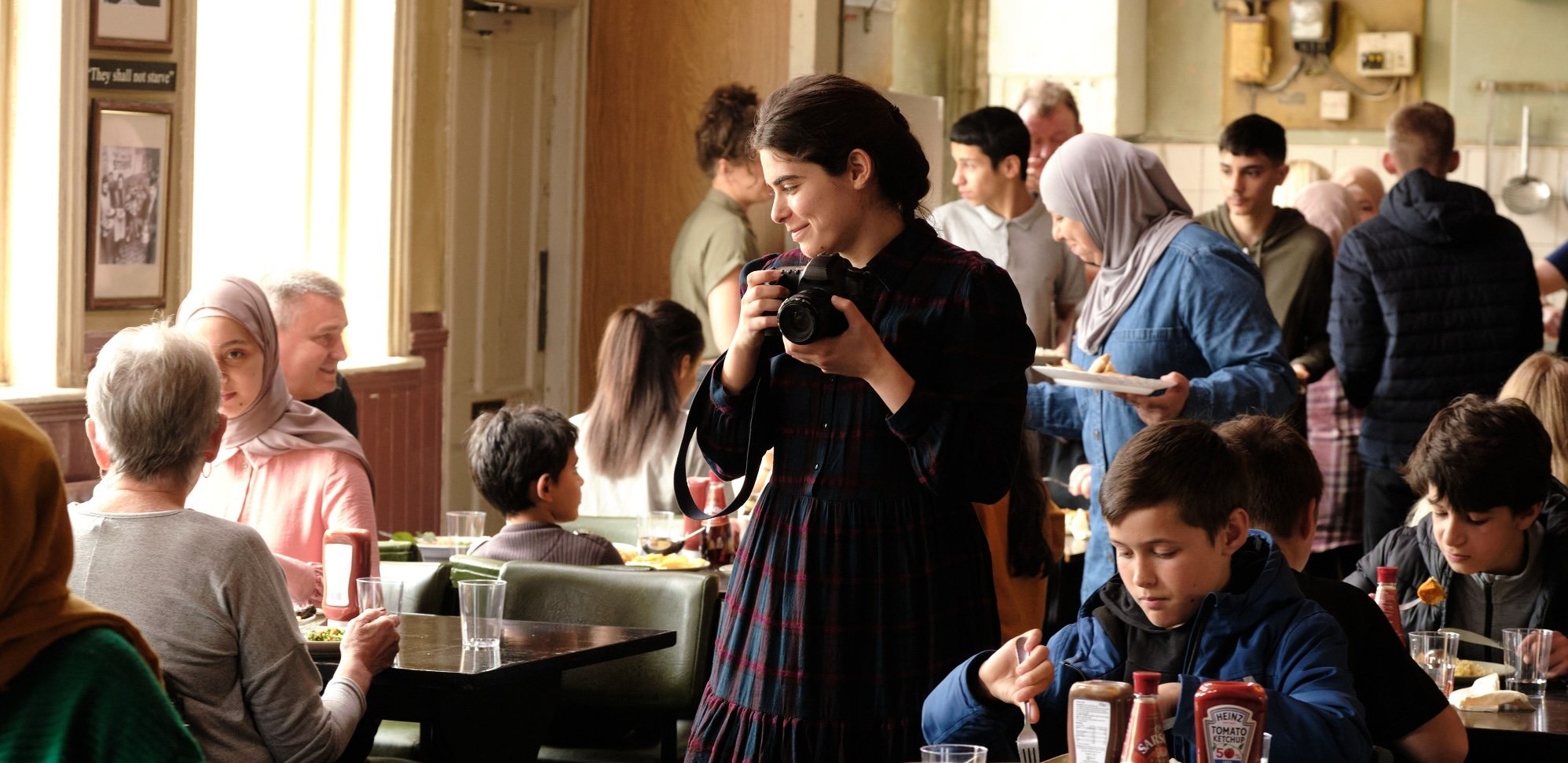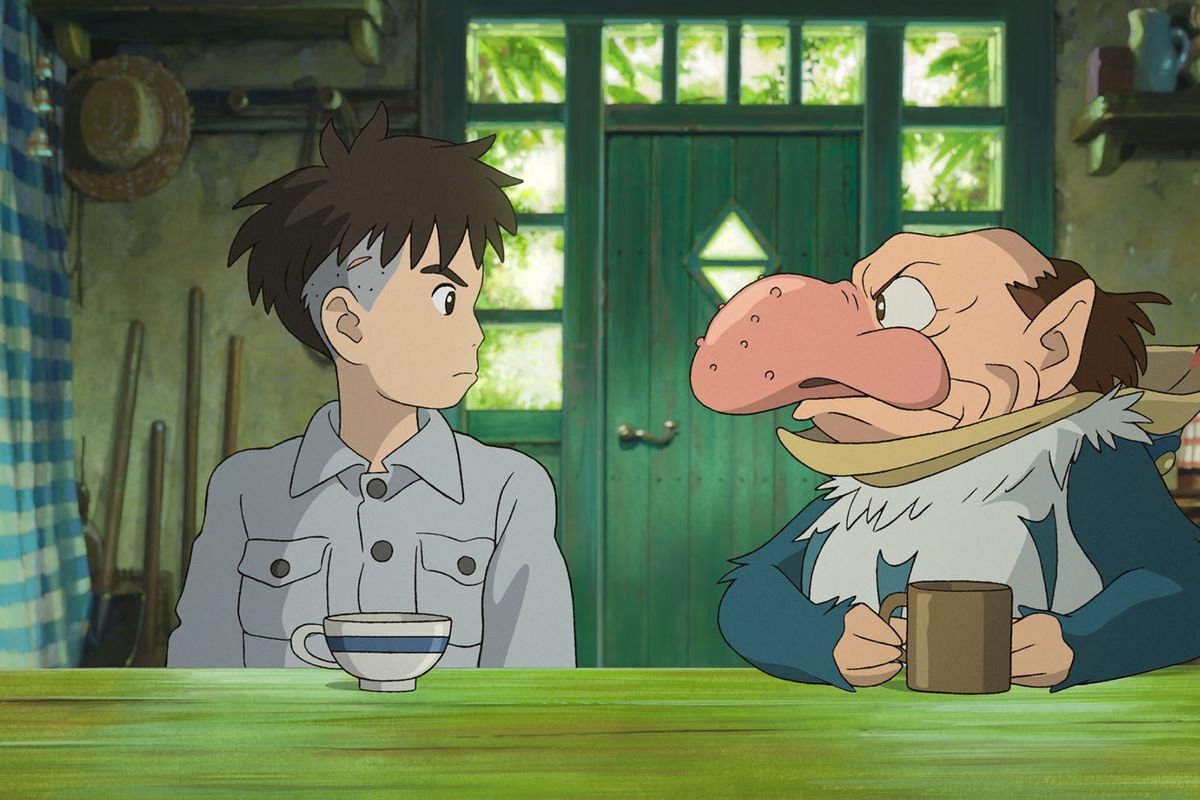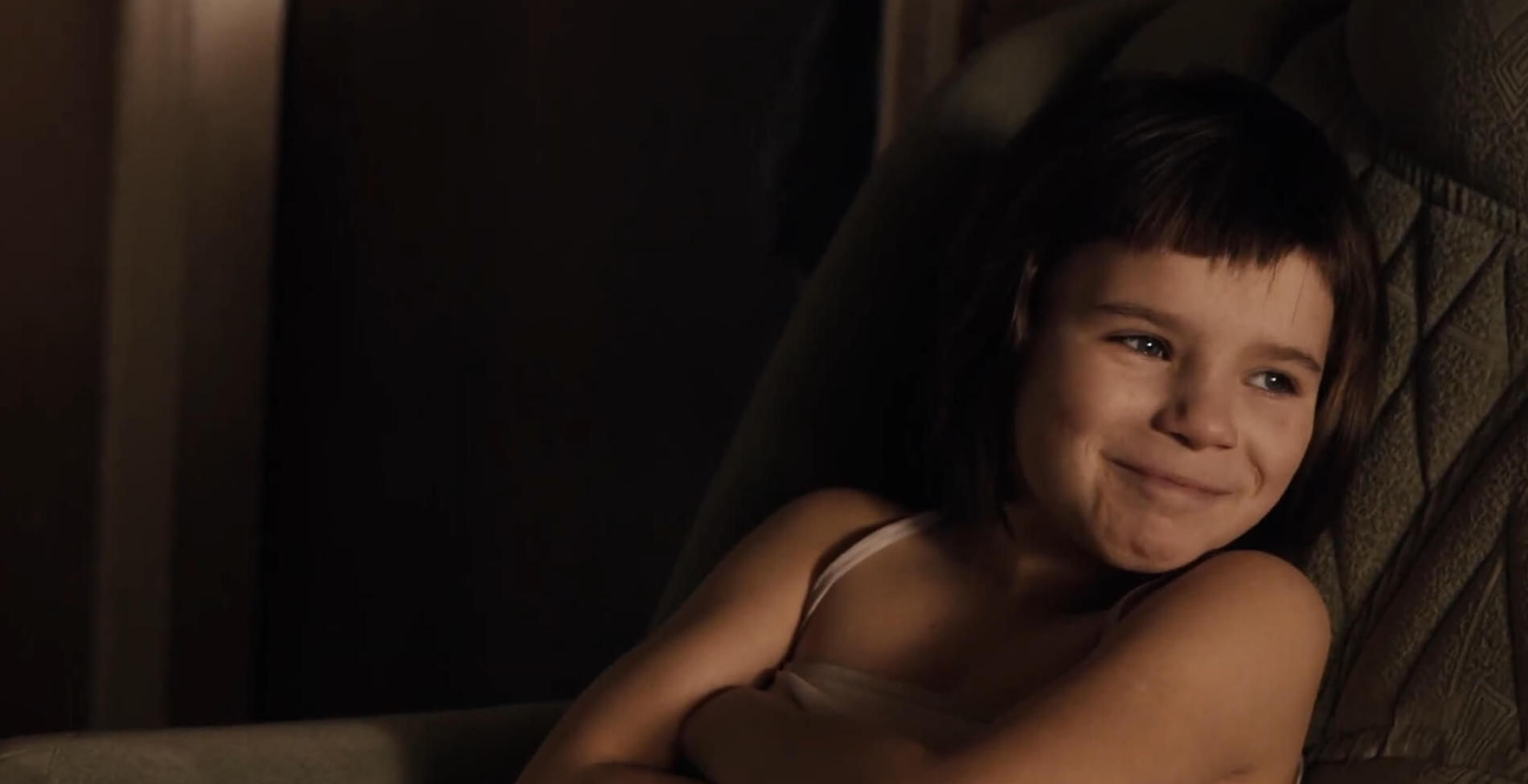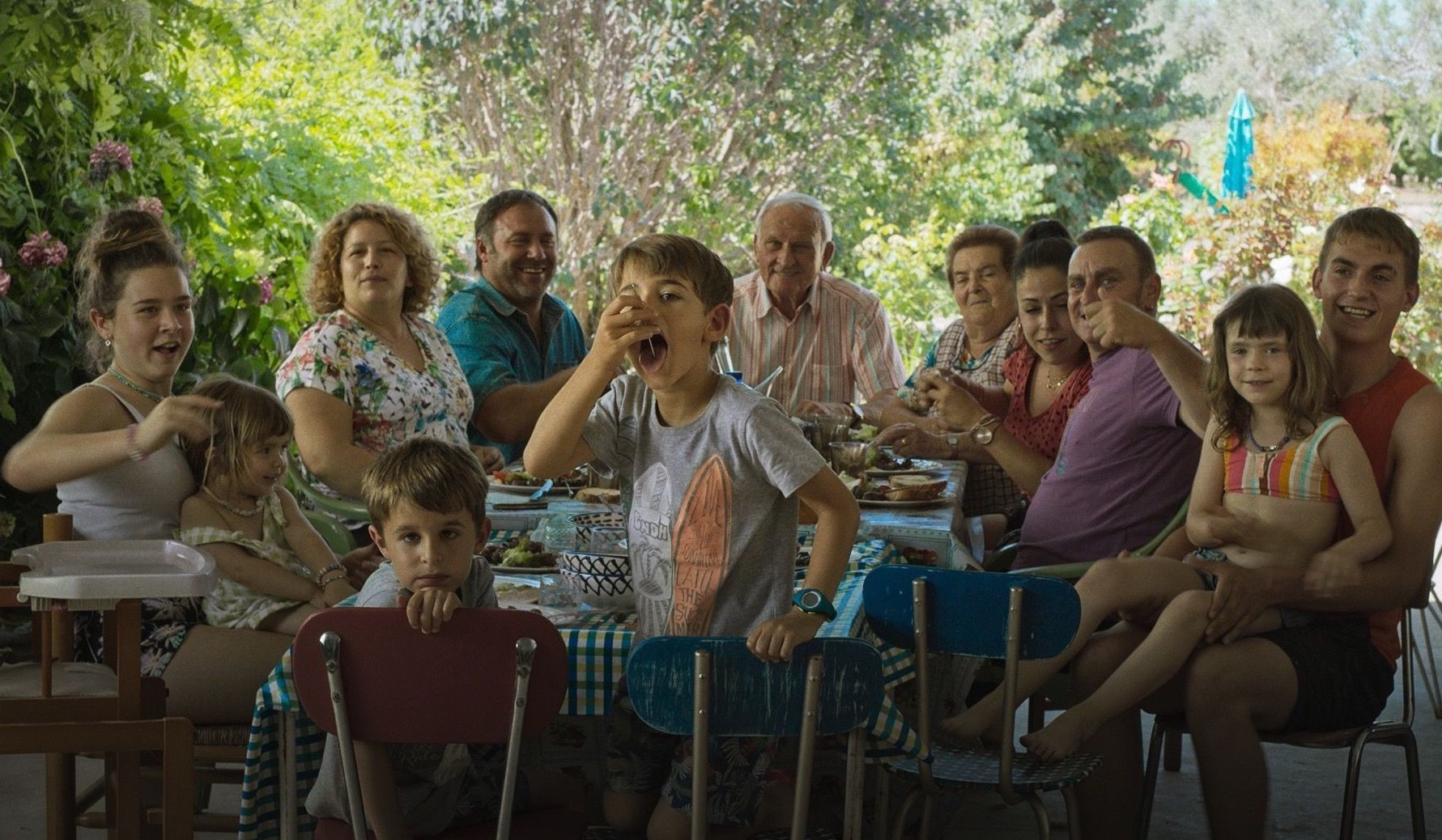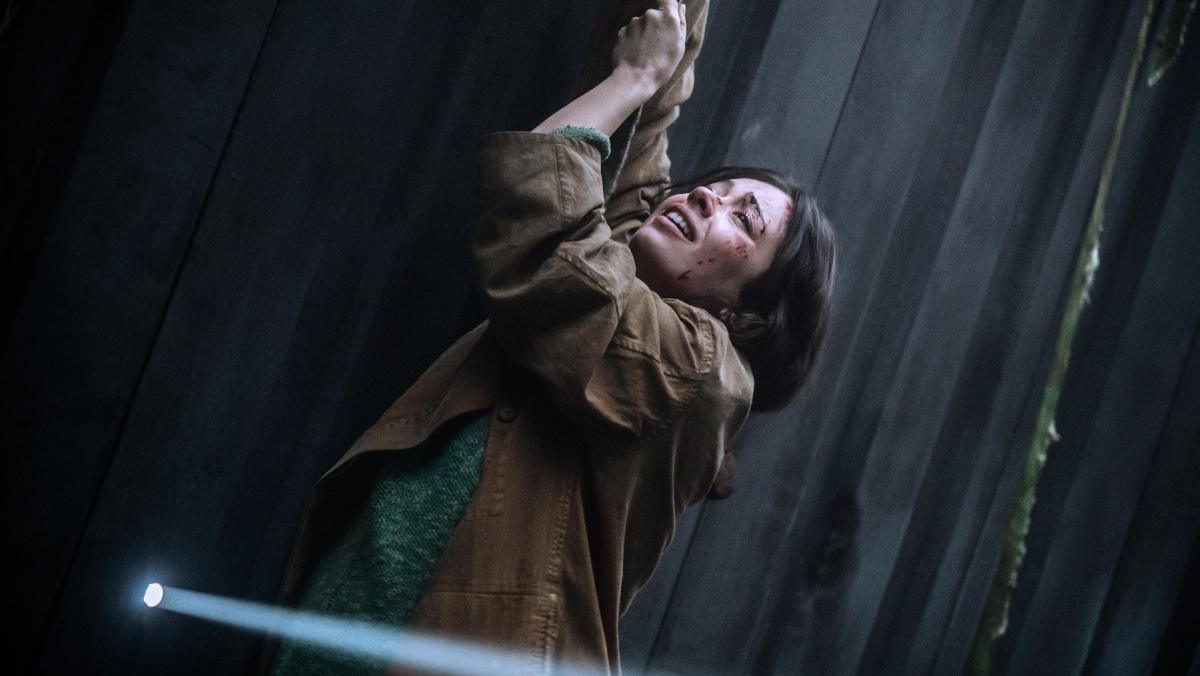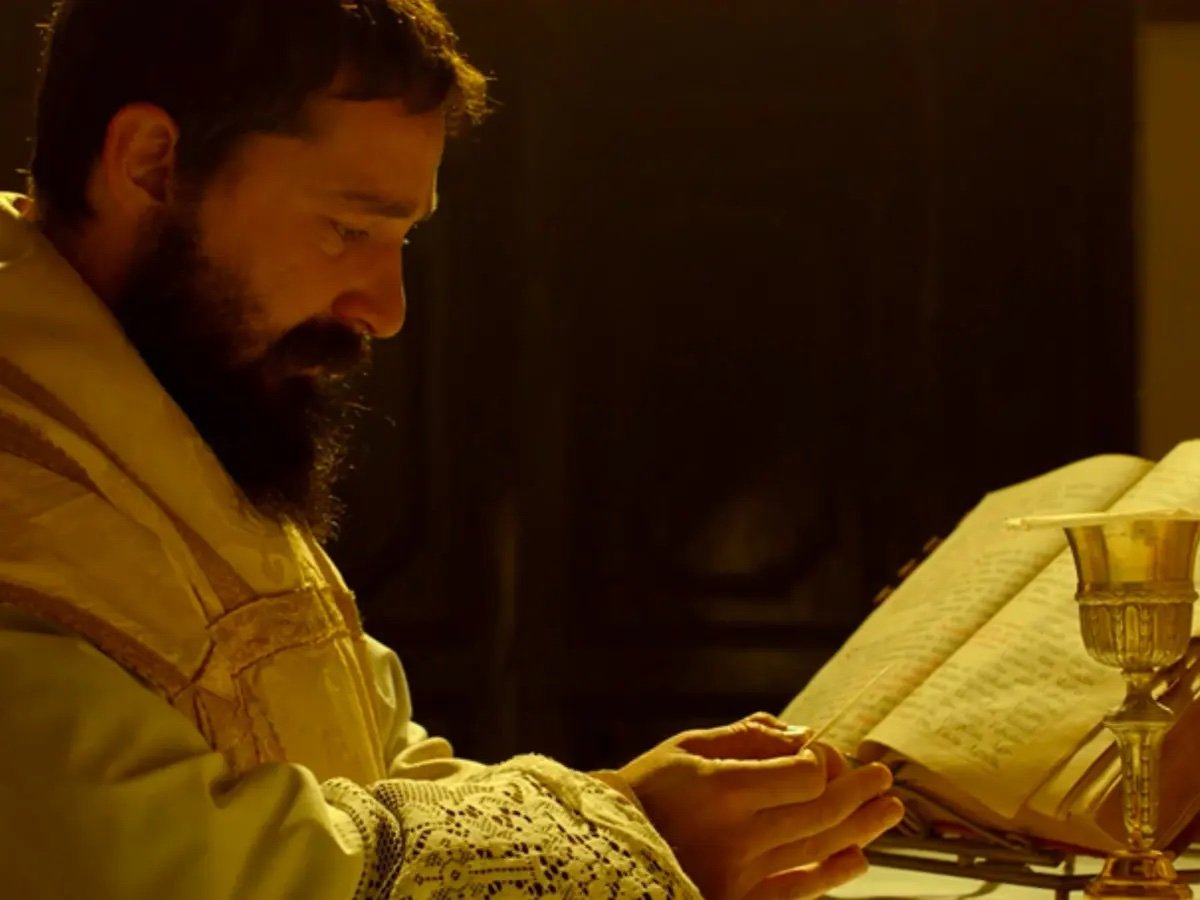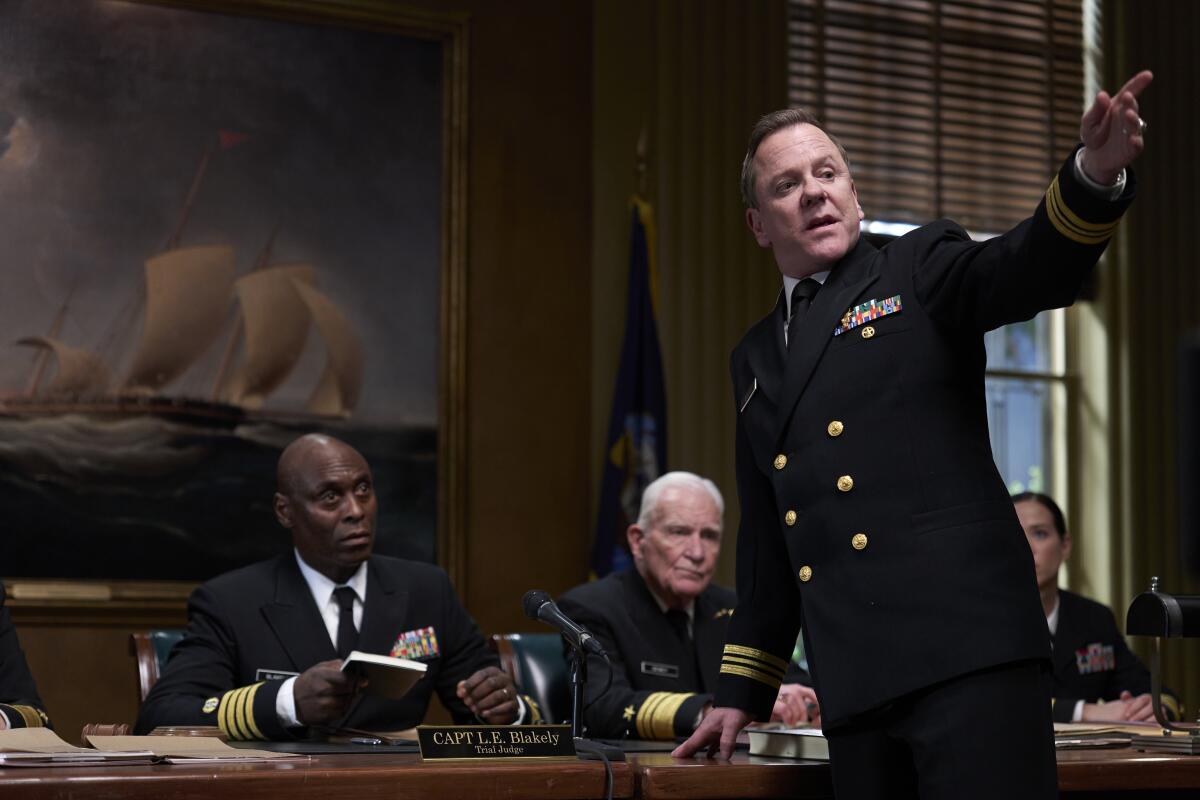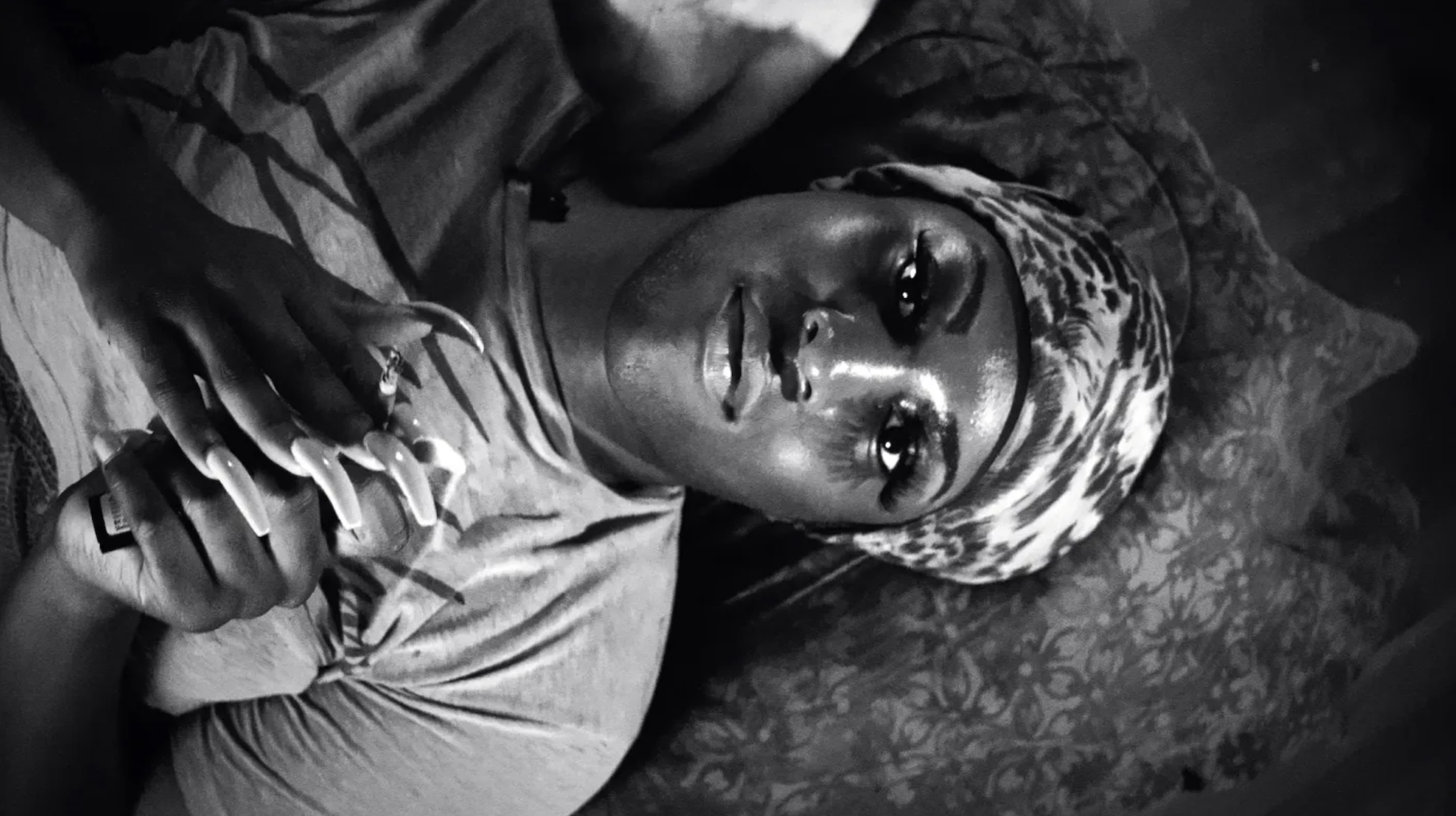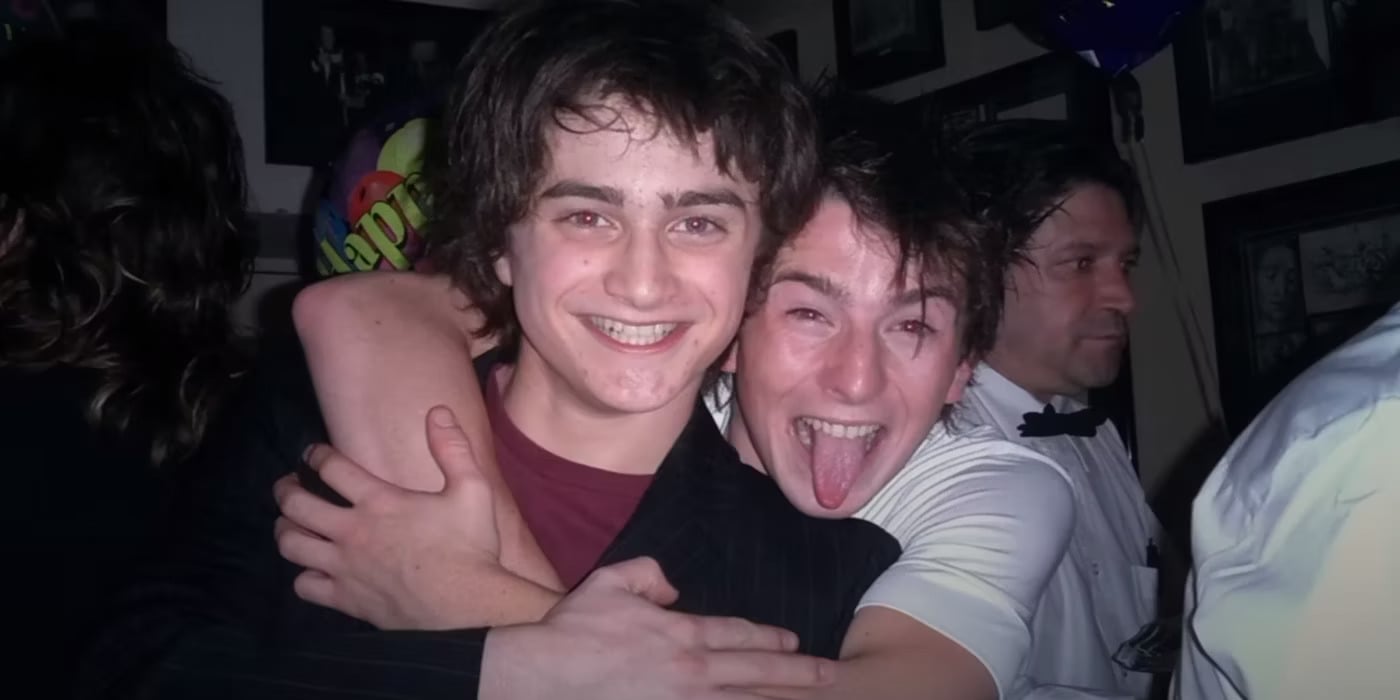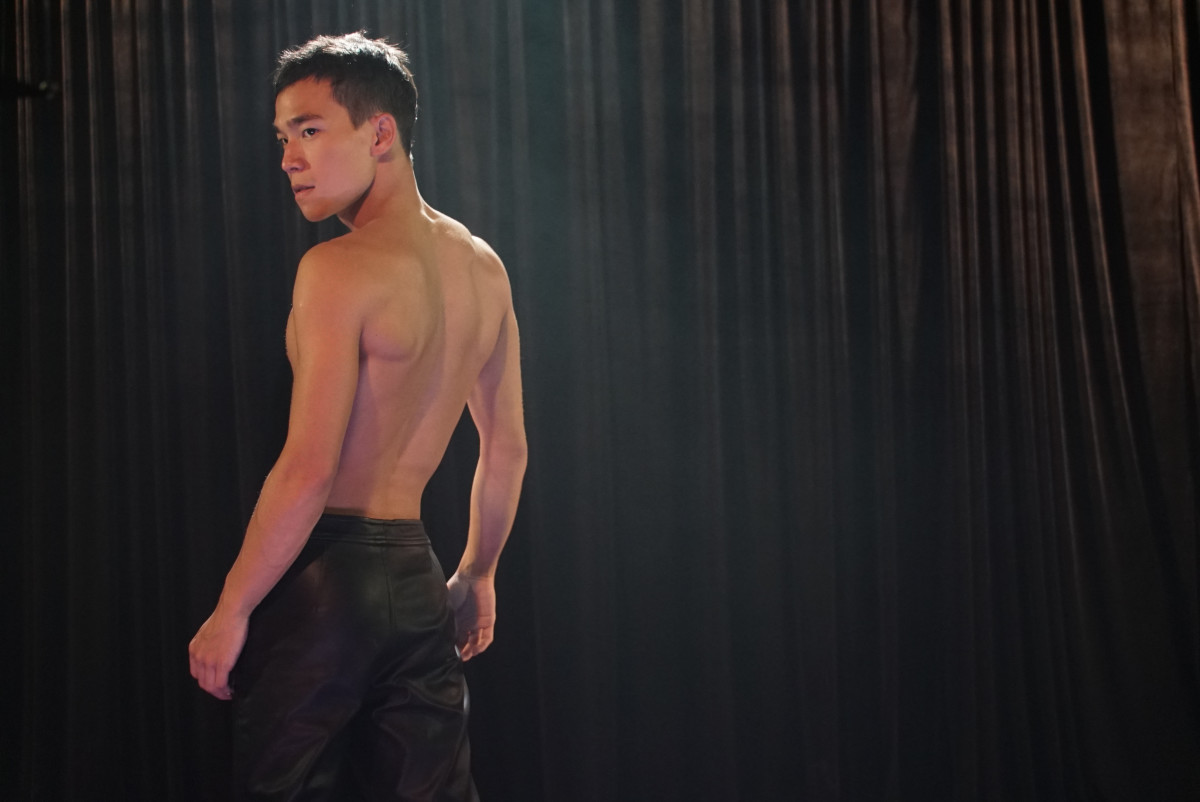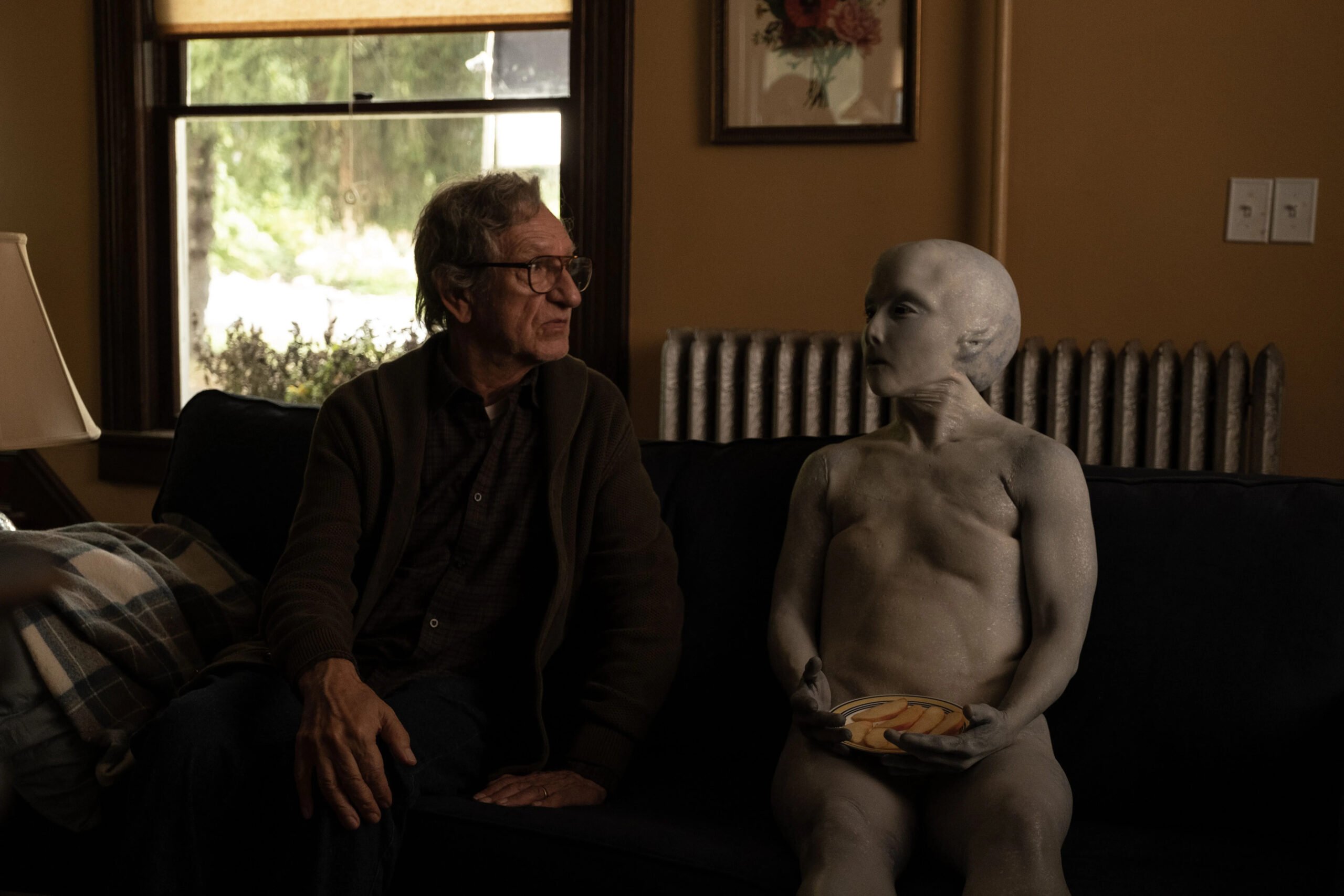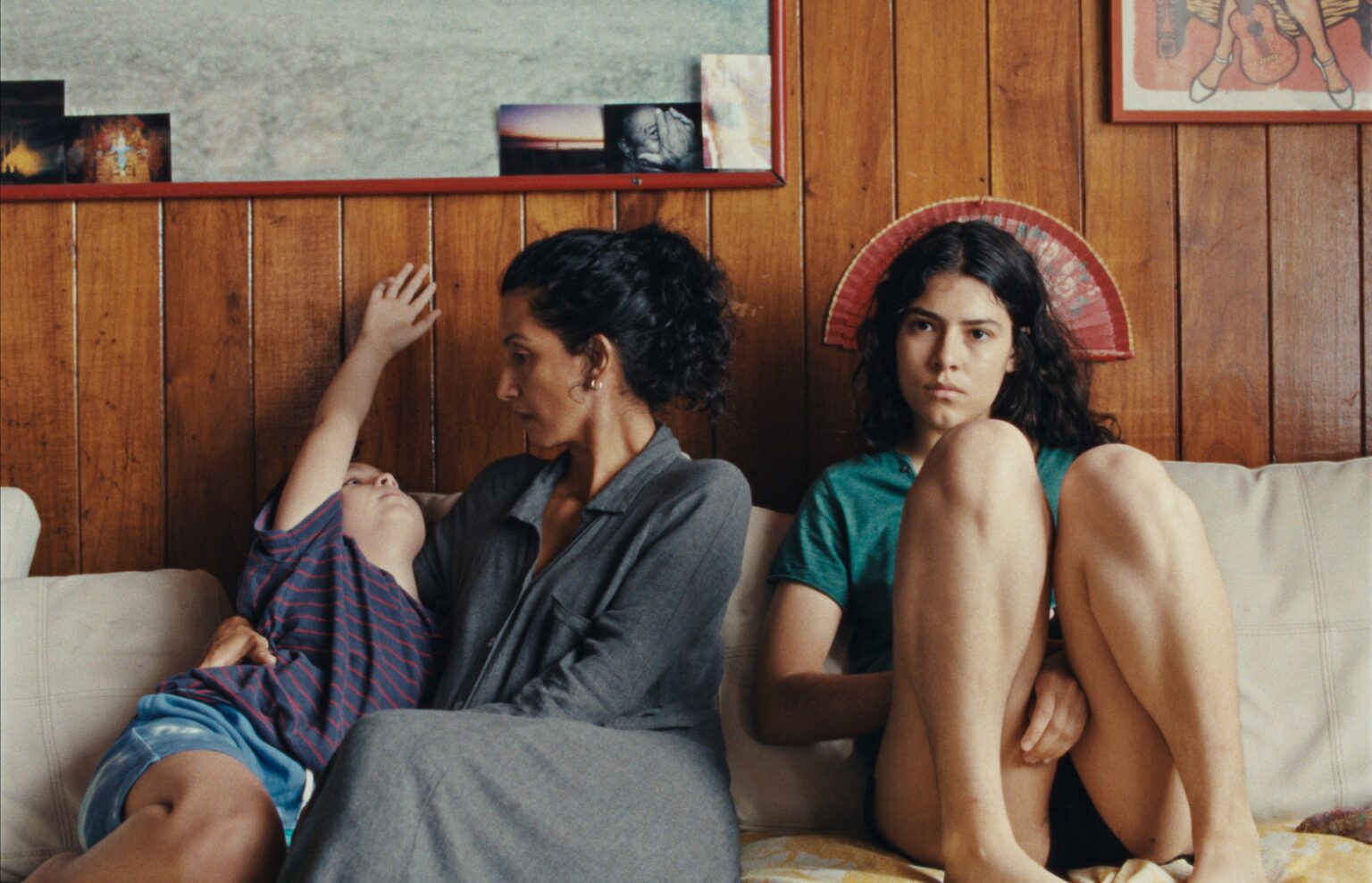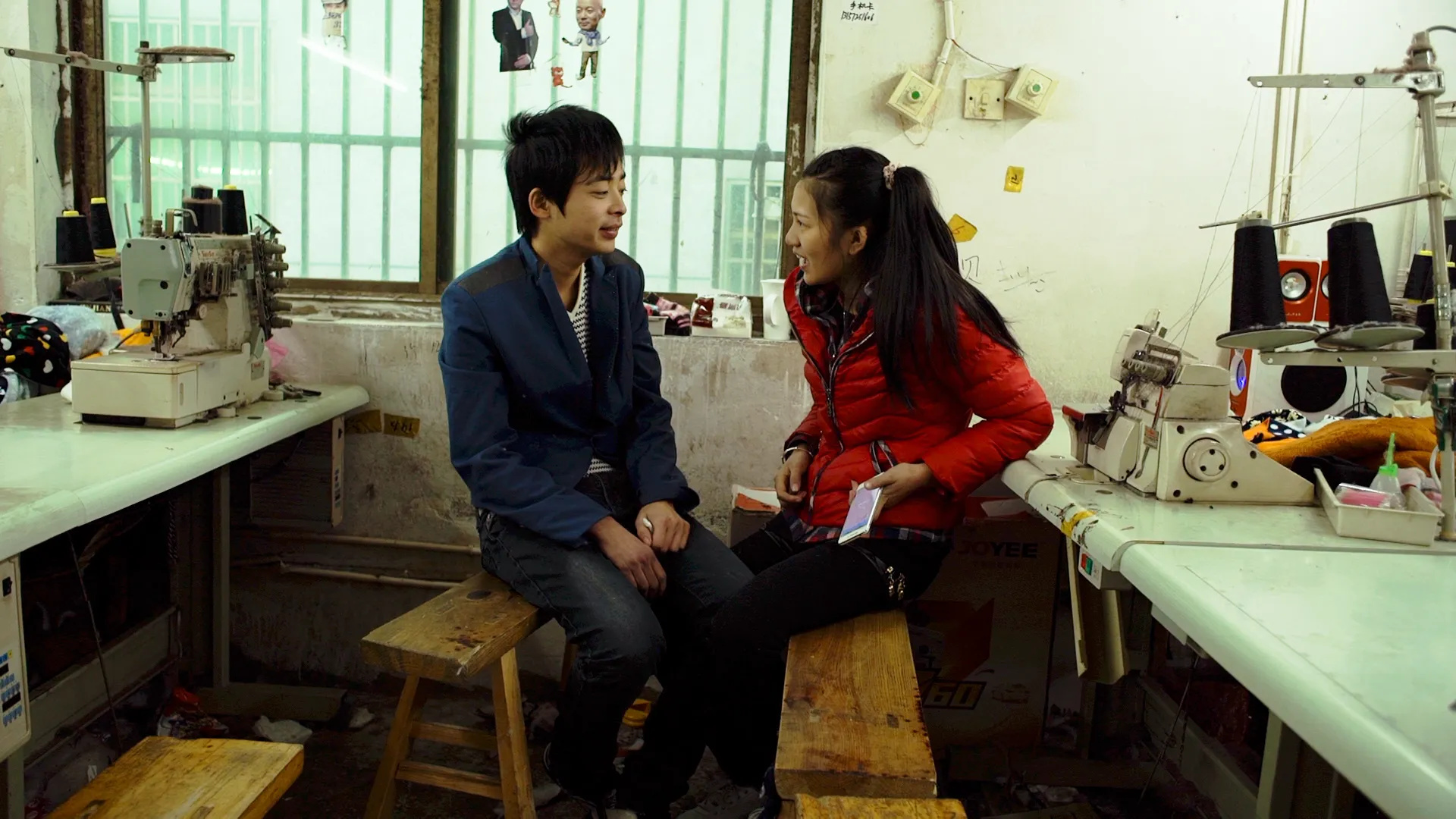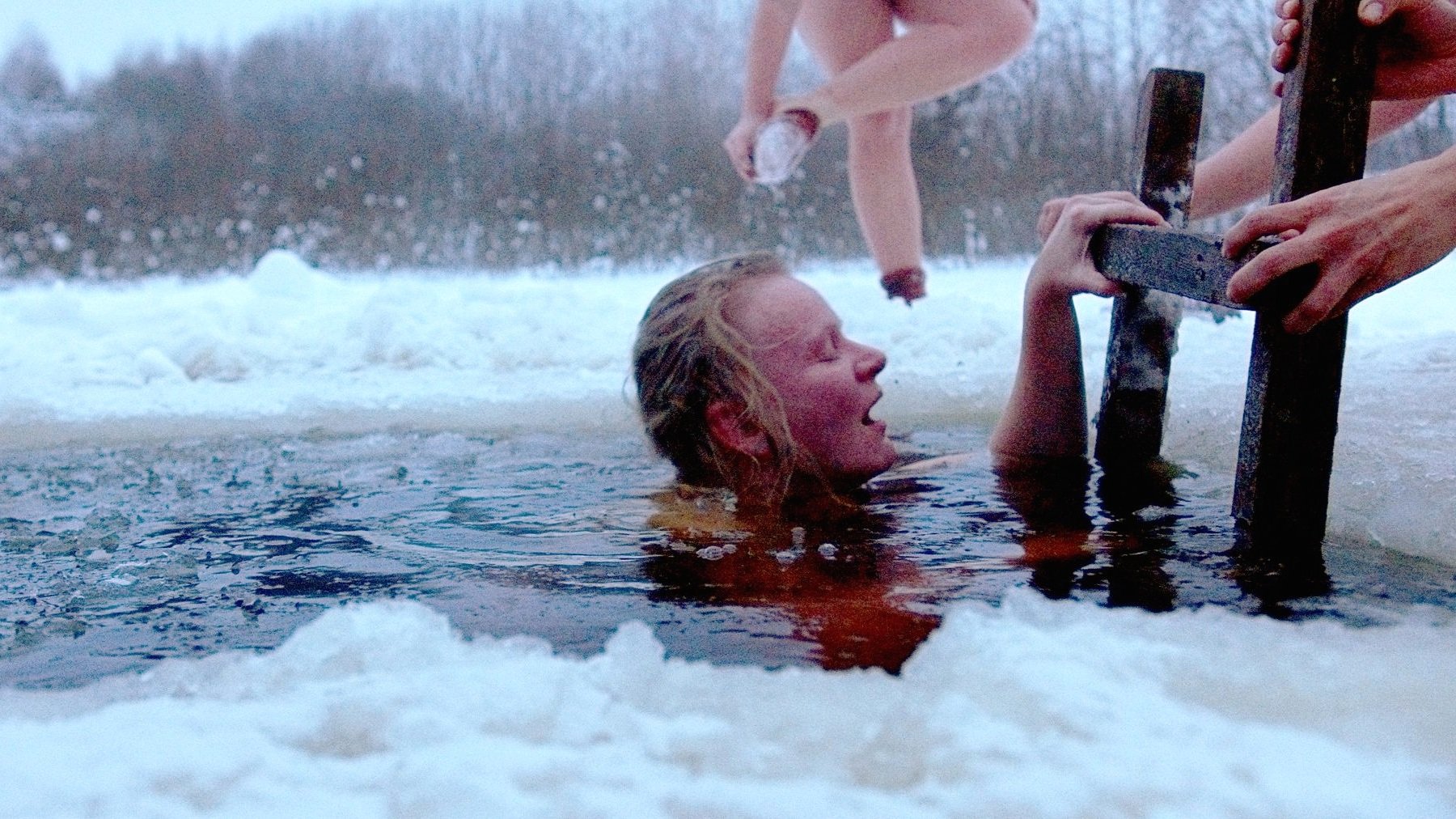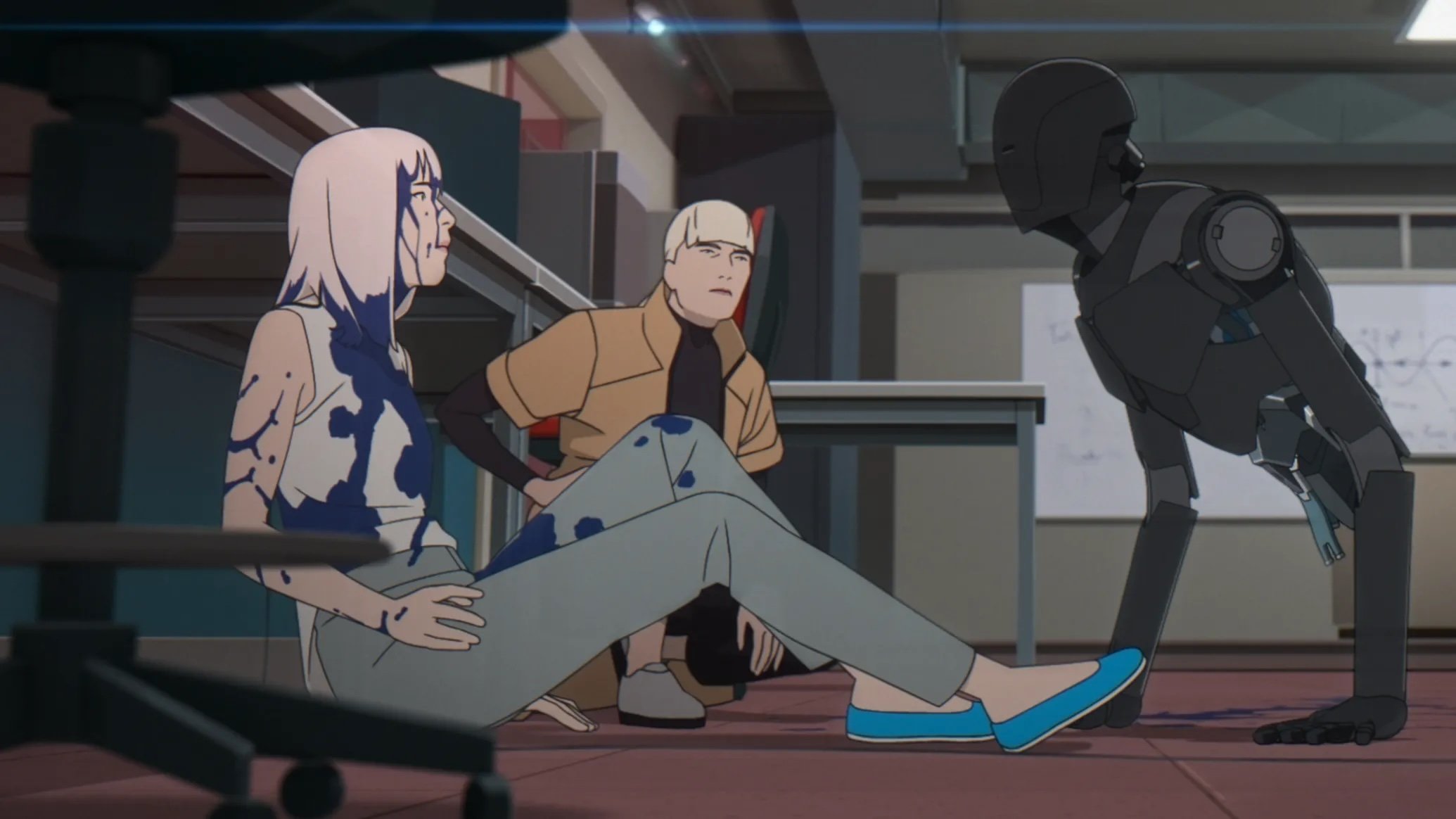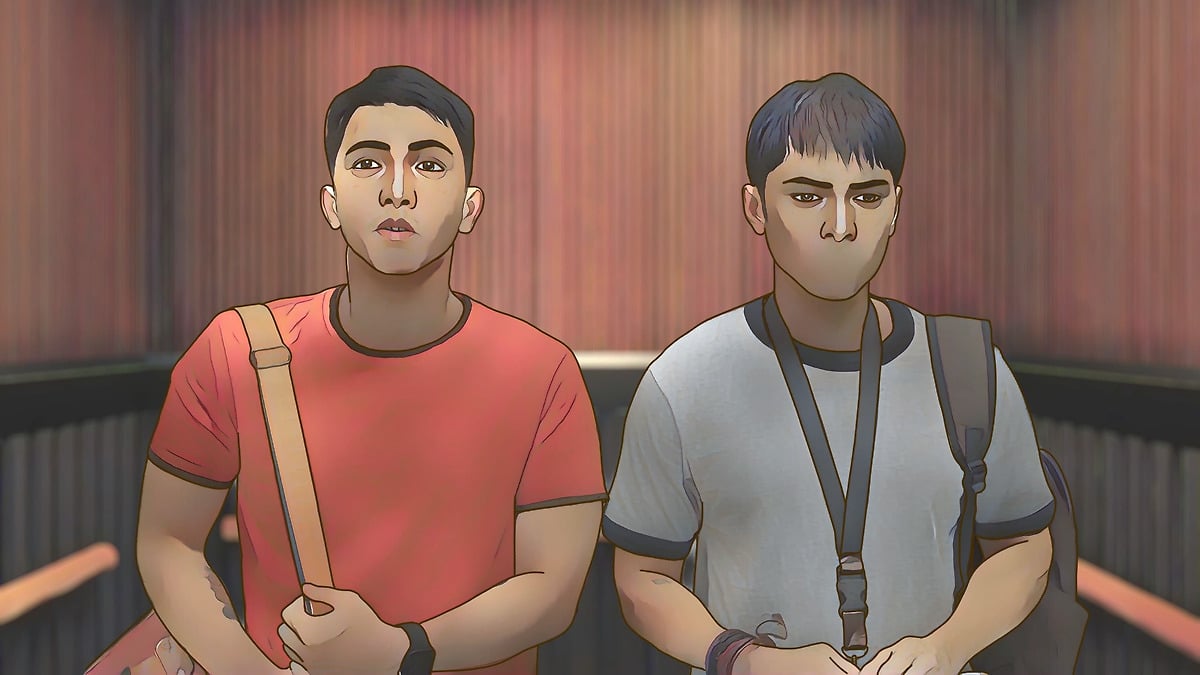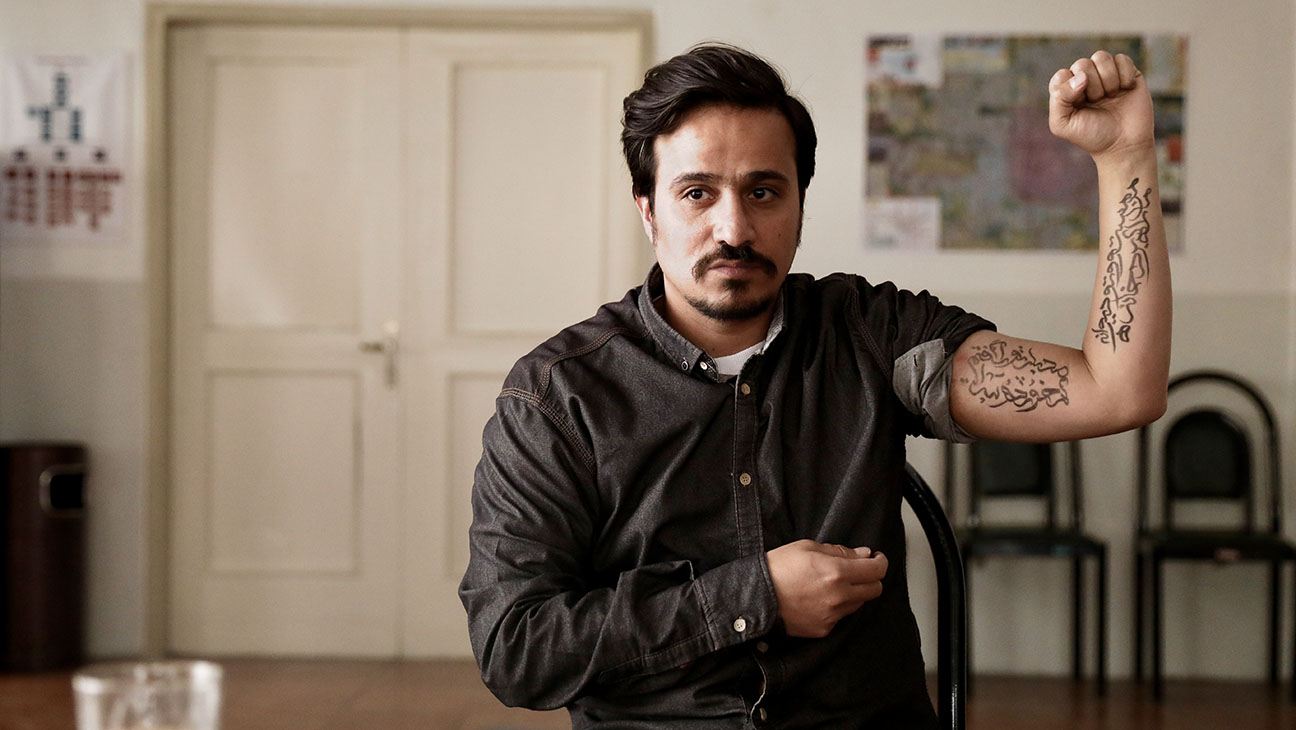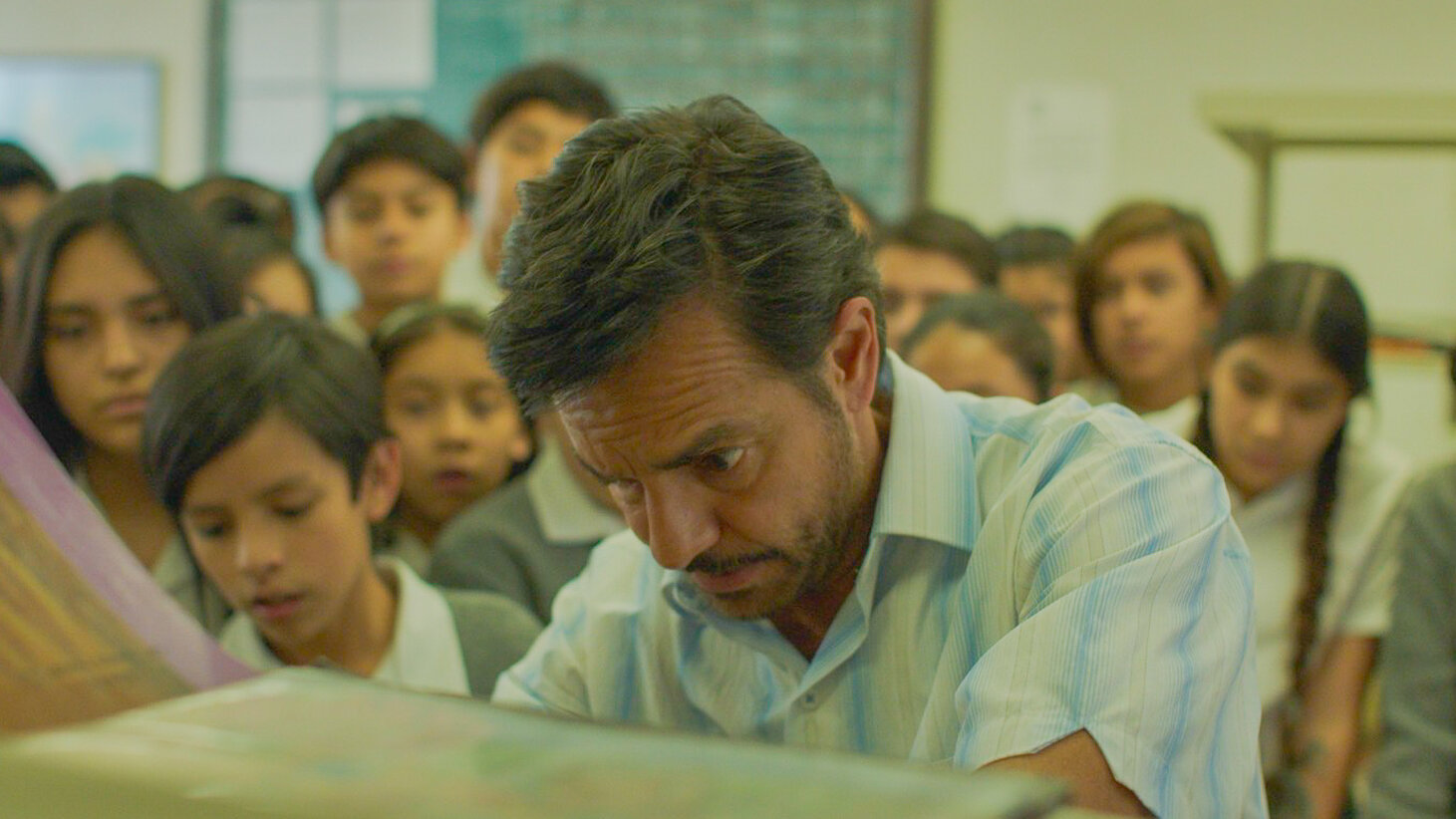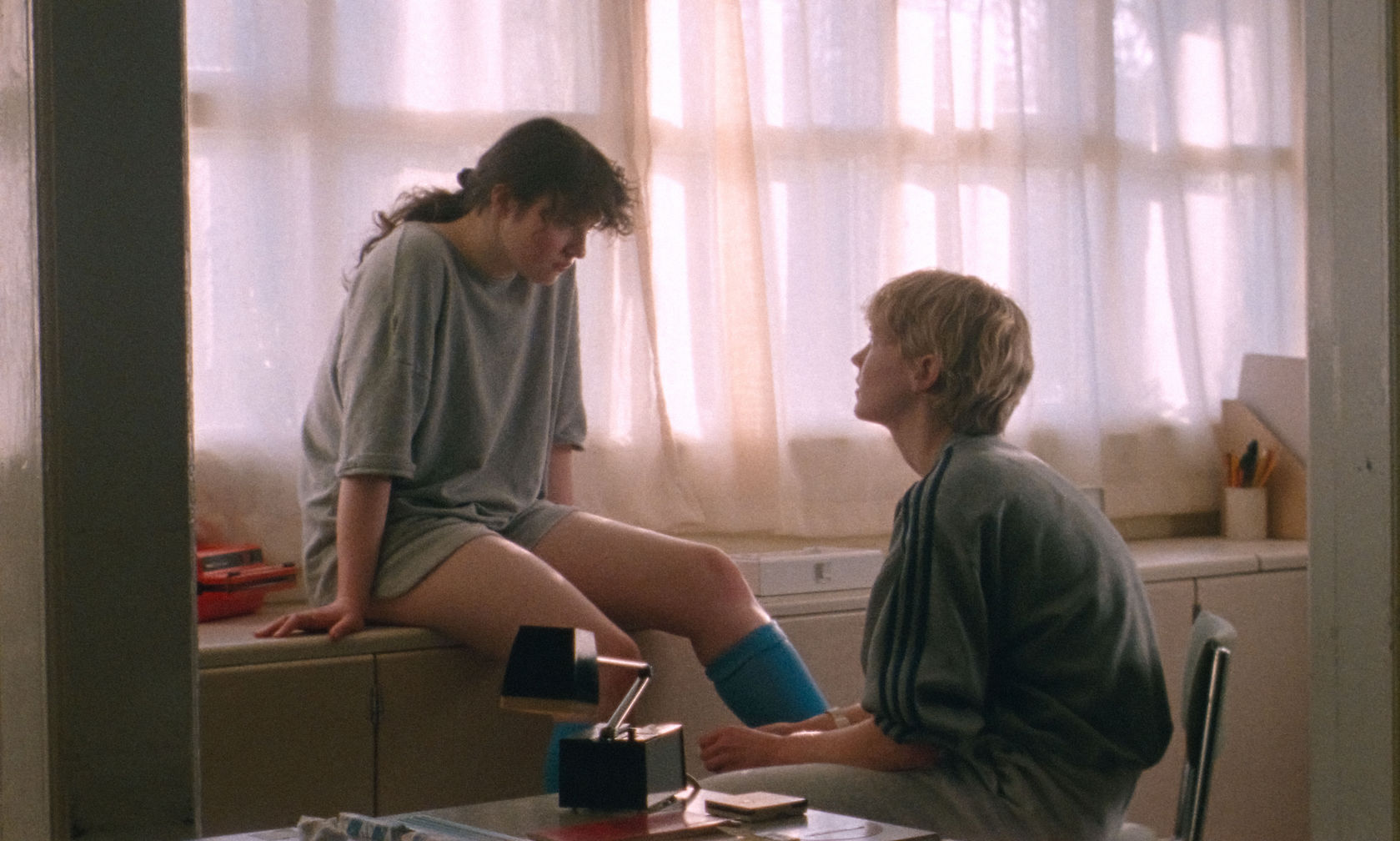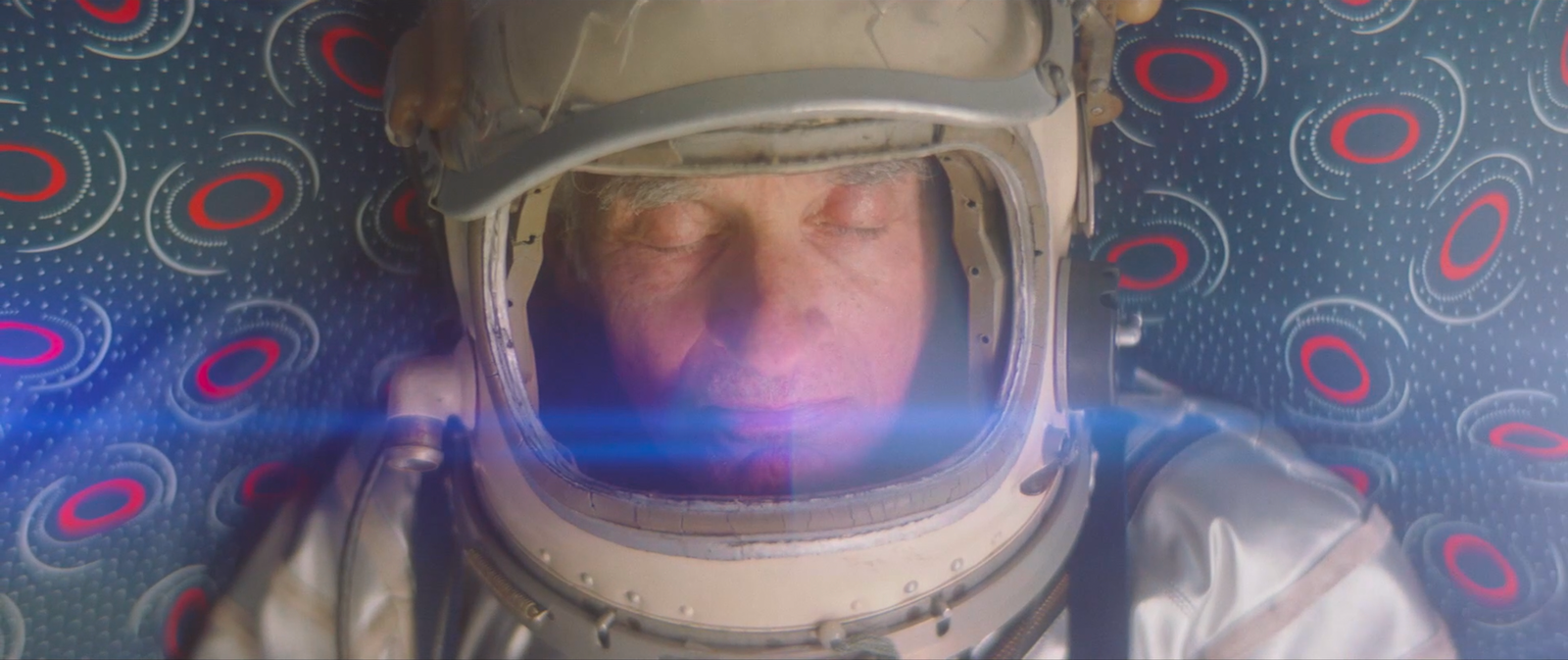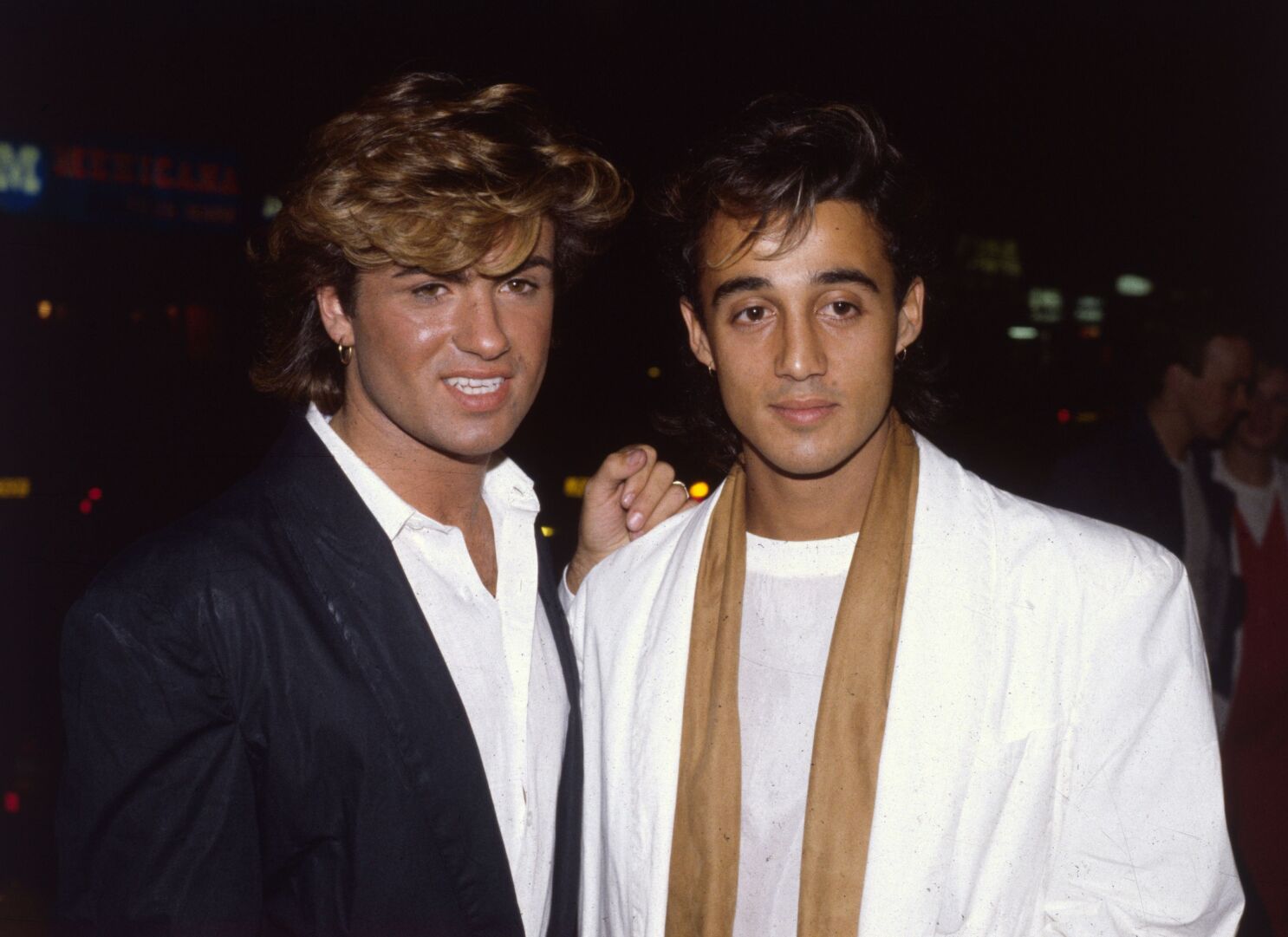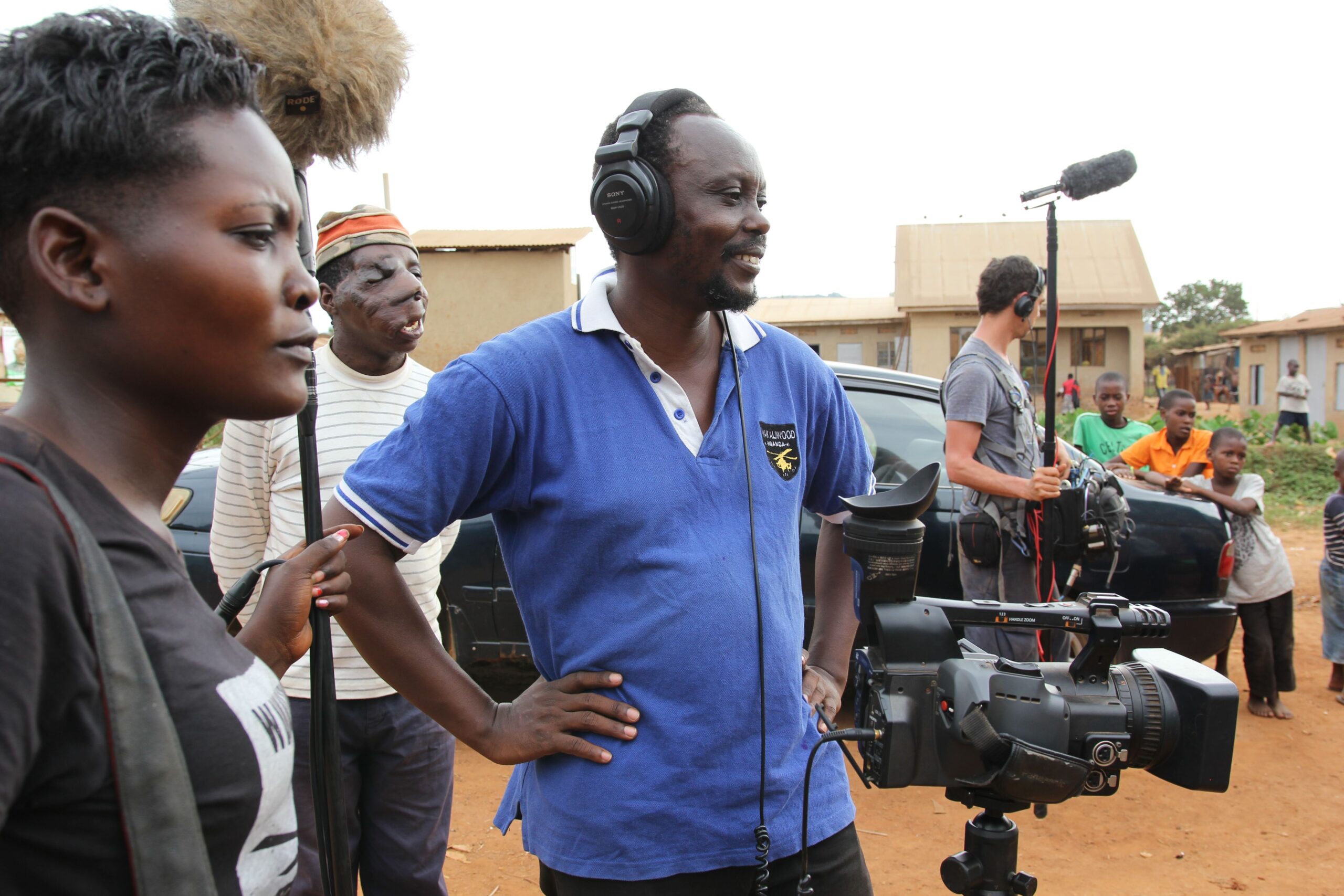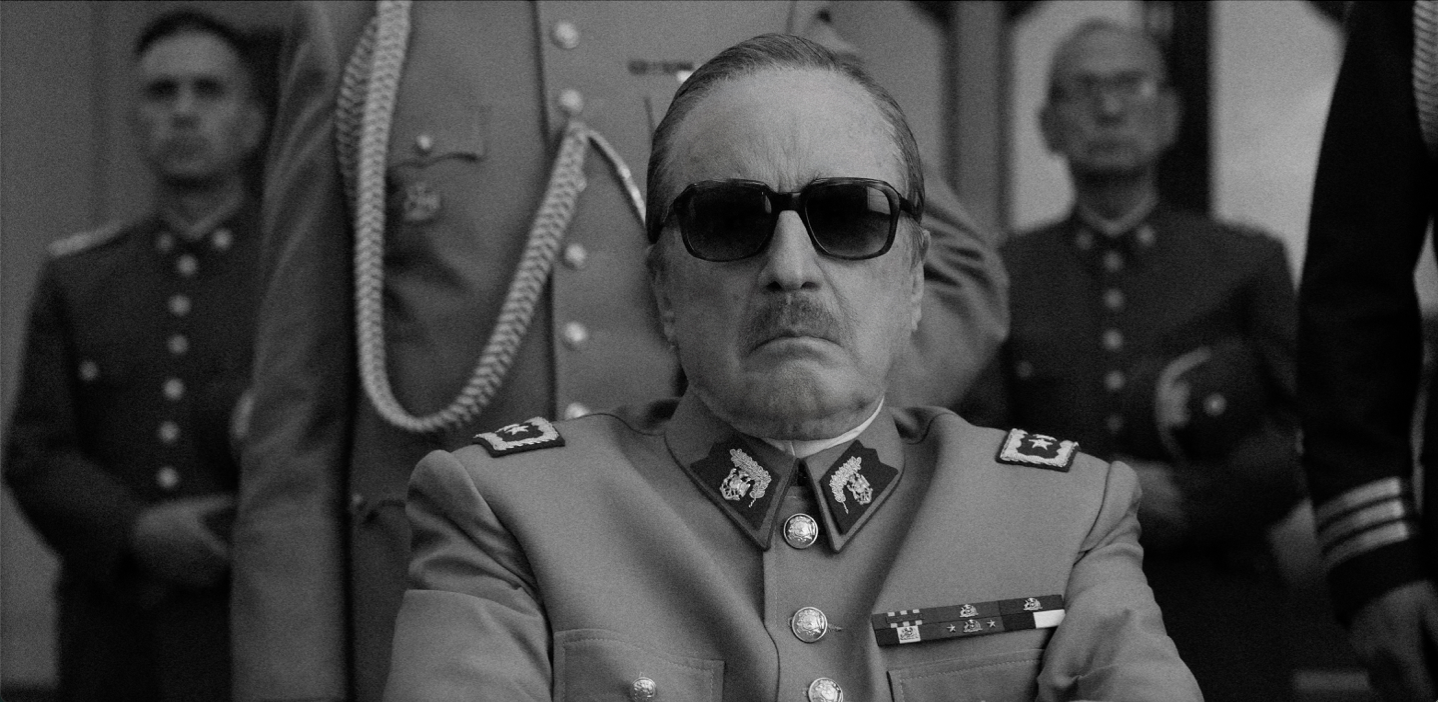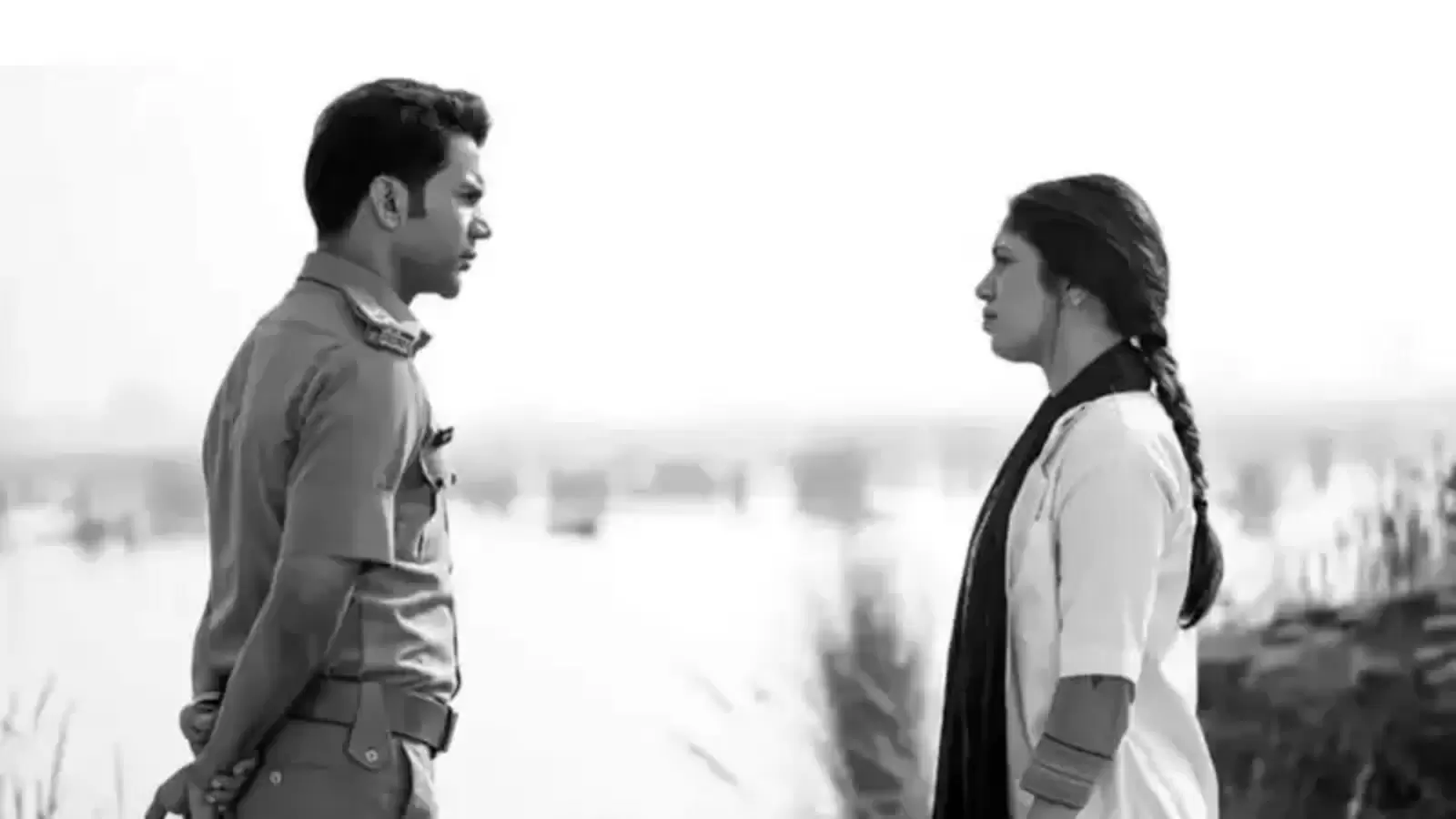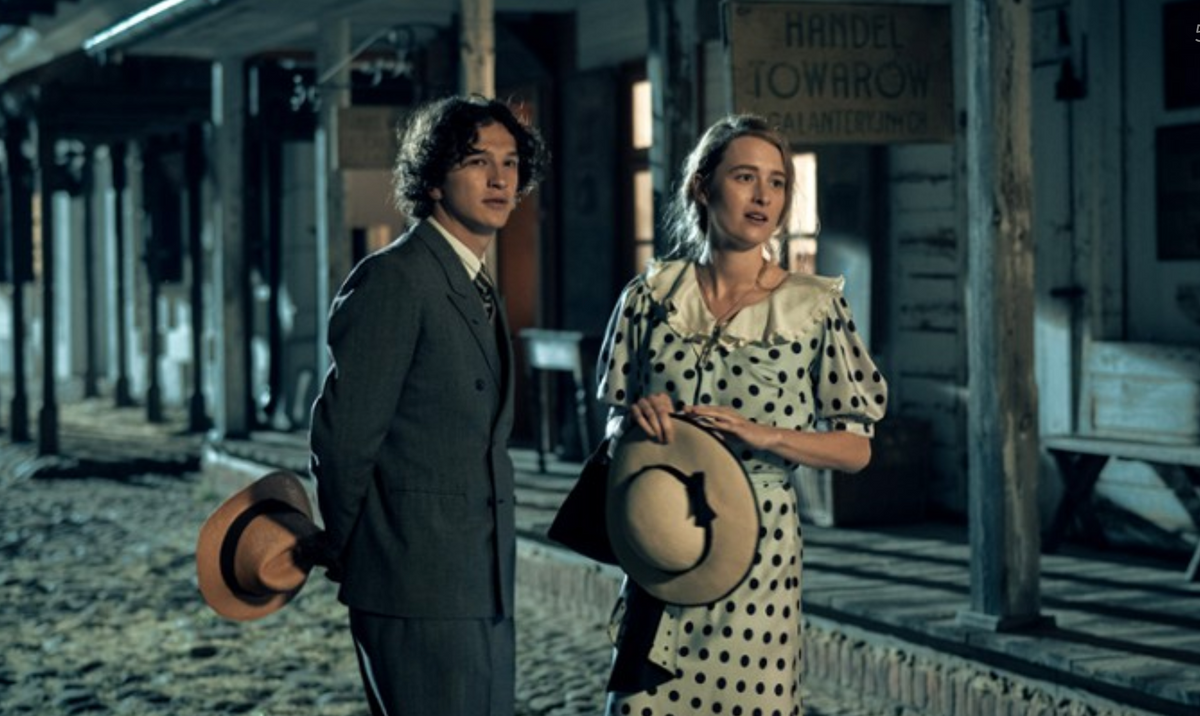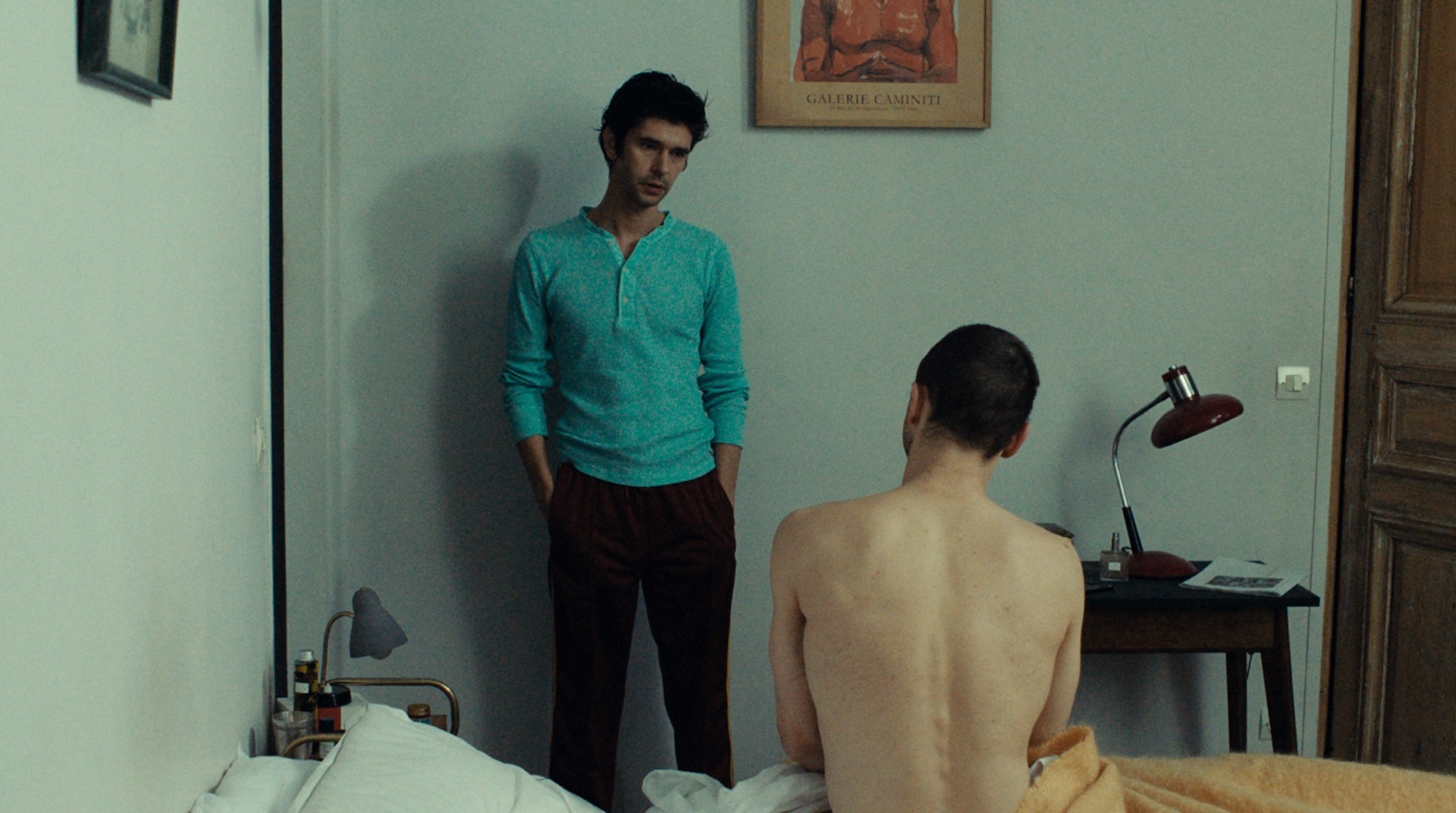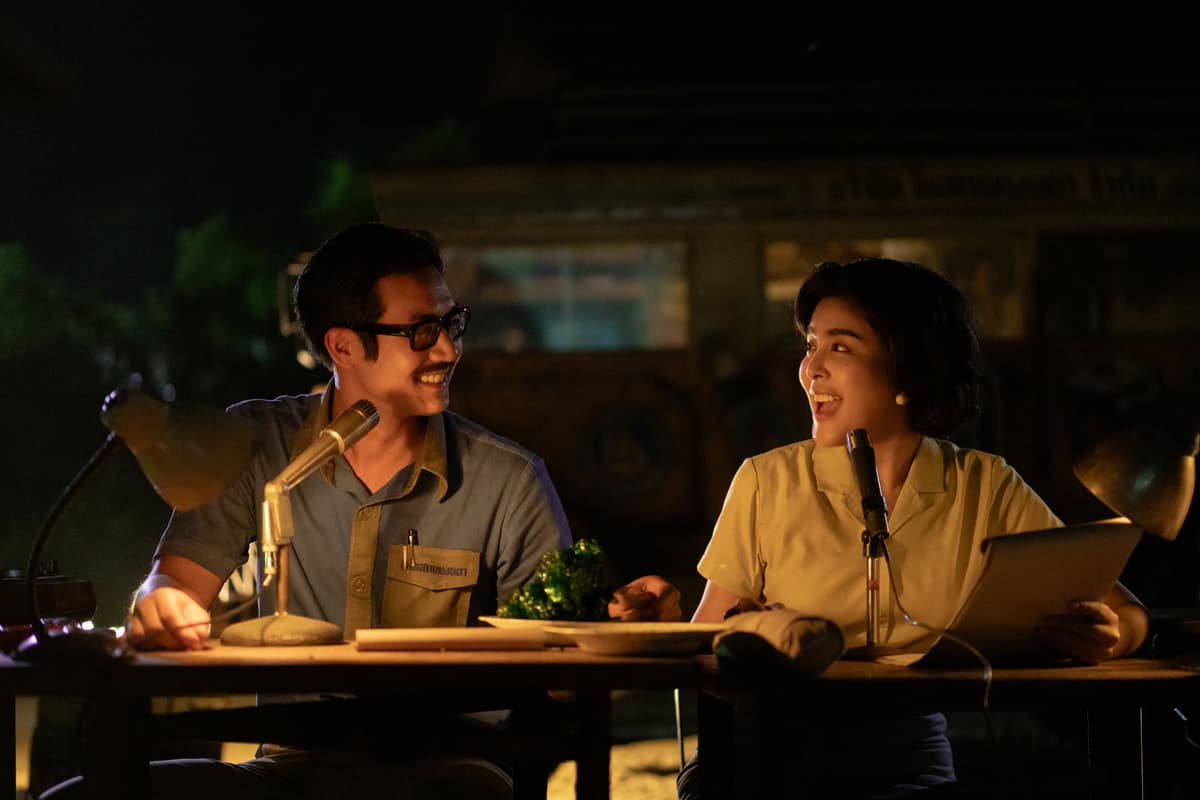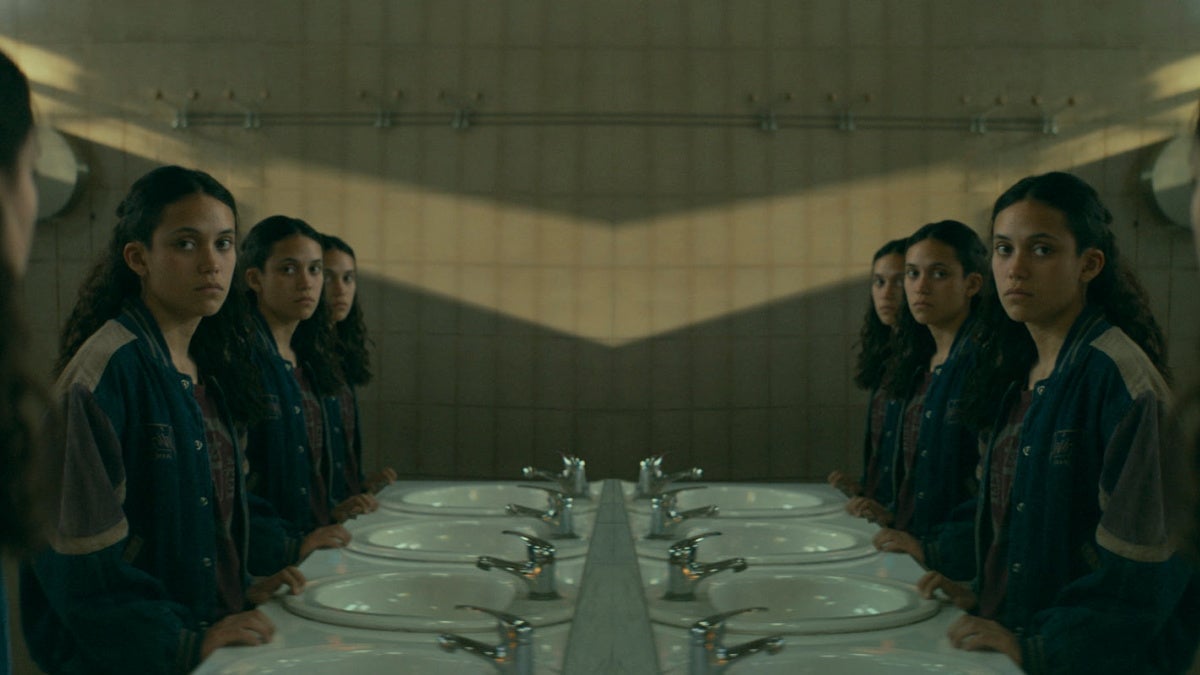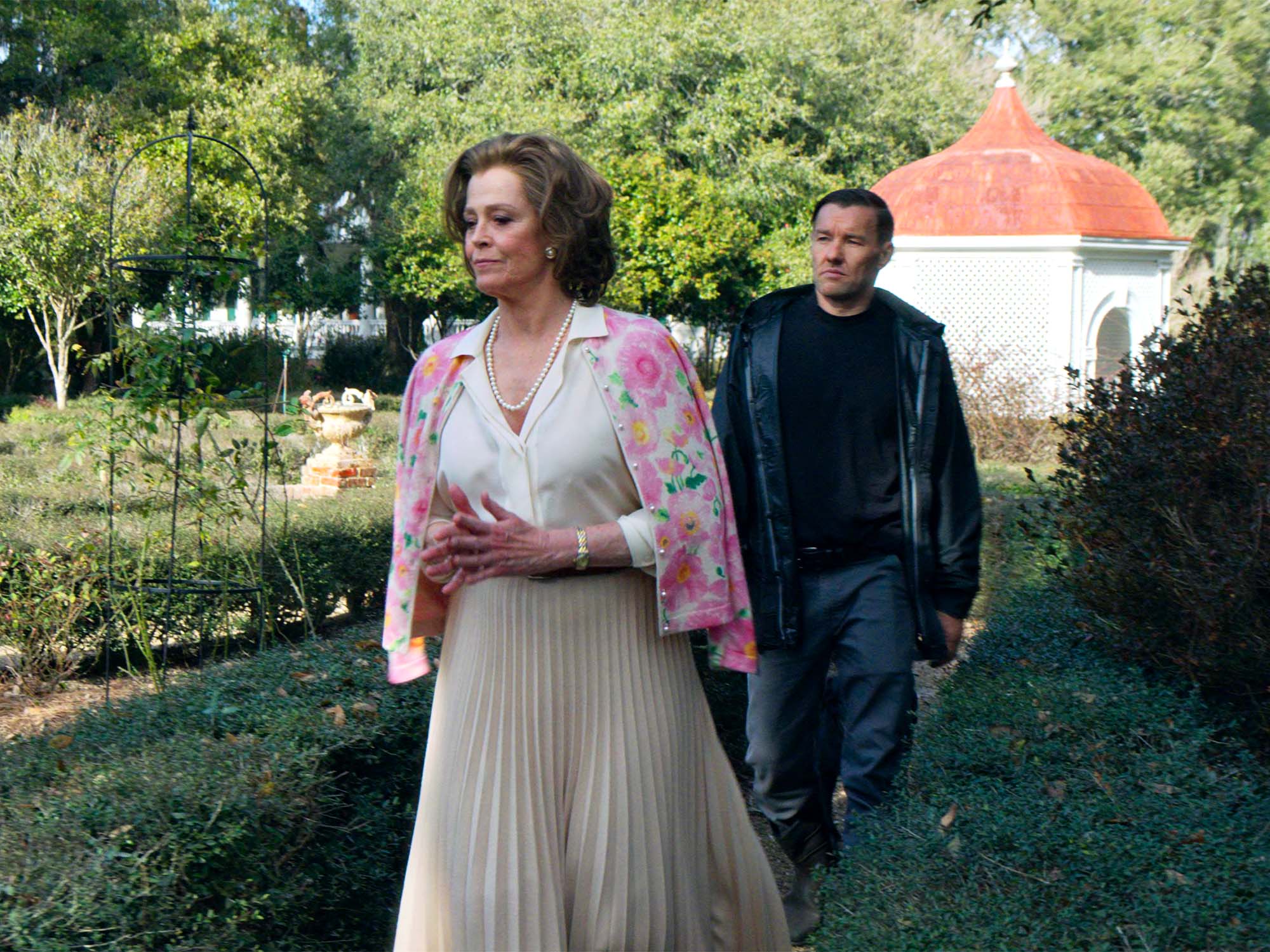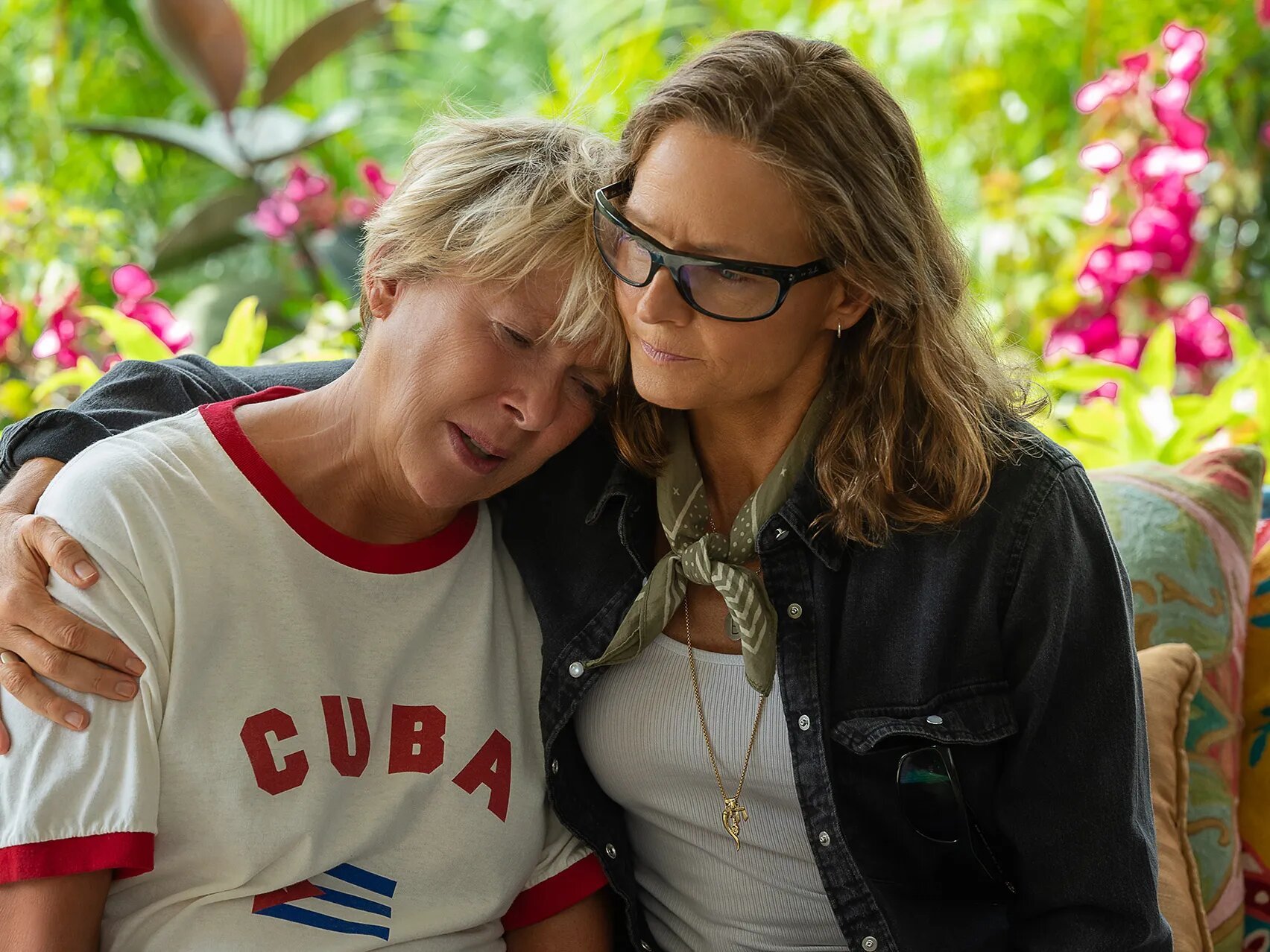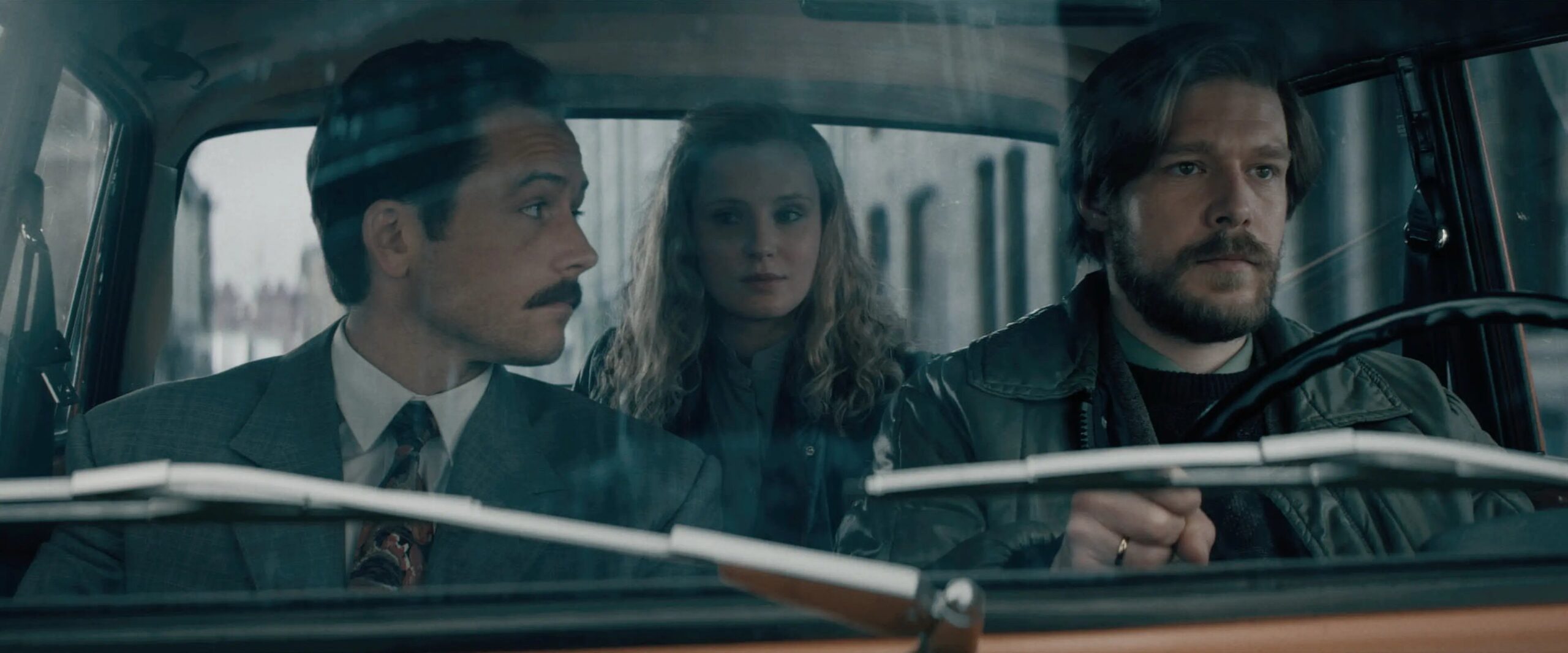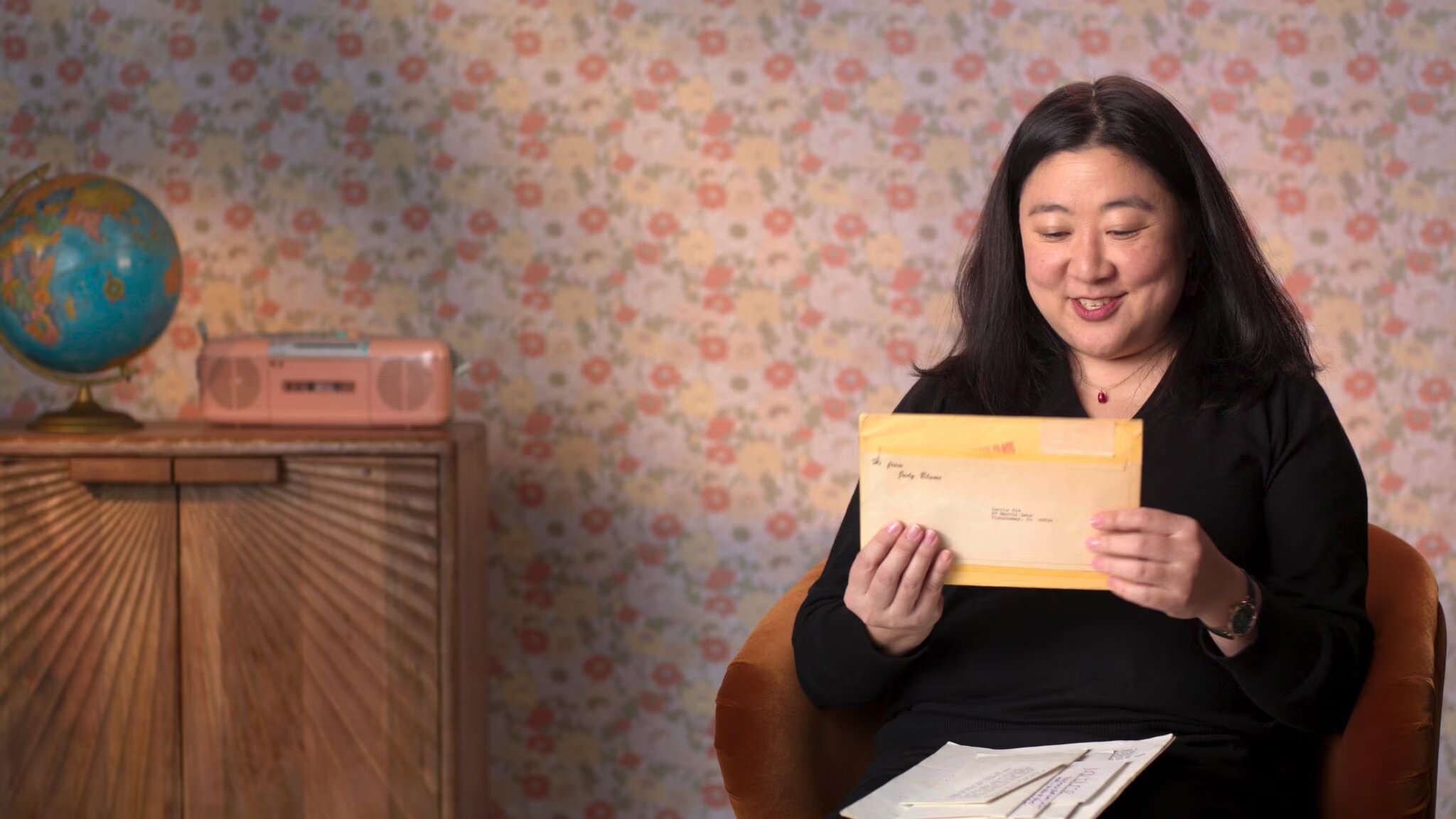100 Best Movies of 2023 (Regularly Updated)
Even if we put aside comic books and Barbie dolls, 2023 is shaping up to be a surprisingly fun year for movies. Who would have thought, for instance, that telling stories about once-novel now-defunct items like BlackBerry phones and pinball machines would make for a genuinely enjoyable watch? There are plenty of films like these, seemingly silly but unexpectedly good, that we’ve come to like this year, but along with these discoveries, we’re also excited to share our usual favorites: solid indies like Somewhere in Queens, game-changing dramas like A Thousand and One, genre revelations like Rye Lane. Whatever your inclination, we’re sure you’ll find much to like in our list of the best movies 2023 has to offer.
If you’re looking for fresher fare, you can also take a look at our regularly updated list of favorites this 2024.
Monster is a deceptively simple story about growing up and the many misunderstandings that come with it. It’s told through different points of view, a technique that could easily feel gimmicky in the hands of a lesser director. But with director Hirokazu Kore-eda at the helm, it feels natural and inevitable, as if there was no other way to tell this specific story. It’s a masterful mystery, but Monster is less about suspense and answering the whodunnit question than it is about navigating the murky waters of truth and real life. As corny as it sounds, watching Monster is an experience unto itself: you’ll find yourself believing something one moment and dismantling it the next, learning and unlearning in a span of two hours. But as with past Kore-eda films, it’s the story’s heartwarming sensitivity that trumps everything. You’ll likely come for the mystery but stay for its heart.
Genre
Drama, Mystery, Thriller
Director
Hirokazu Kore-eda
Language
Japanese
Mood
Character-driven, Dramatic, Emotional, Lovely, Touching, Well-acted
As in his previous films, Director Andrew Haigh explores the delicate nature of loneliness, grief, and love in All of Us Strangers, except this time he does so through a supernatural lens. The result is mesmerizing: amid the tenderness the film draws from its characters, there’s a swirl of mystery too: how is it possible that Adam is conversing with his dead parents? Who, exactly, is Harry? The intrigue is there, and Haigh builds to a satisfying climax that answers all these questions. The mystery also lends the film an ethereal style that makes it visually resemble a horror or thriller more than it does a romance or drama. But as superb as it looks and as compelling as the ambiguity is, they never distract from the film’s central goal, which is to bring us into the complex emotional journey Adam goes through as he simultaneously develops a relationship with Harry and parses his childhood trauma with his parents. It’s a hefty film, filled with big emotional moments that will have you crying, smiling, longing, and healing all at the same time. And like any good film, it will haunt you for days on end.
Genre
Drama, Fantasy, Romance
Director
Andrew Haigh
Language
English
Mood
Dramatic, Emotional, Lovely, Romantic, Tear-jerker, Touching, Well-acted
The Teacher’s Lounge is one of those movies where a simple misunderstanding is blown out of proportion, so much so that it causes the fabric of a community to unravel into chaos. Aided by a precise score, it ticks like a timebomb, with every second filled with so much dread and anxiety you have to remind yourself to breathe. It’s an impeccable and taut thriller, but it also works as an allegory about modern-day surveillance and authority. Director İlker Çatak gives the Gen-Z students and their much older teachers a level field where they struggle for control, and the result is both bleak and funny. It’s often said that schools are a microcosm of the real world, but nowhere is that more apparent than here.
Genre
Drama, Thriller
Director
İlker Çatak
Language
English, German, Polish, Turkish
Mood
Gripping, Suspenseful, Well-acted
How do you make a film about the Holocaust feel new? How do you make the terrors feel fresh, like it was just in the news, without sounding redundant or without giving into the sensationalized and emotionally manipulative? For Director Jonathan Glazer, the answer lies in not what you show but what you don’t show. The Zone of Interest is shot from the point of view of Nazi Officer Rudolf Höss (Christian Friedel) and his wife Hedwig (Sandra Hüller), who live a dreamy life right next to the infamous Auschwitz death camp. Glazer frames them plainly and without flourish as they ignore (or, arguably, revel in) the glow of burning bodies, the howls of pain, and the billows of smoke coming from the torture chamber a wall away. It’s a powerful, nauseating contrast that turns the question from “How can they do this?” to “Who among us is committing the same things right now?” Who among us is casting a blind eye to the atrocities and genocide being committed at this very moment to our neighbors? The film, which is also a technical feat in terms of the way it’s shot (the crew and cameras remained hidden so that the actors were free to roam, as if in a play) is chilling and thought-provoking, and it will unnerve you for days on end.
Genre
Drama, History, War
Director
Jonathan Glazer
Language
German, Polish, Yiddish
Mood
Challenging, Dark, Depressing, Discussion-sparking, Intense, Thought-provoking
You would expect a courtroom drama to be built around damning pieces of evidence, passionate speeches, or certain social issues lending weight to the investigation. But what makes Justine Triet’s Palme d’Or-winning Anatomy of a Fall so remarkable is how direct it is. Triet doesn’t treat this case like a puzzle for the audience to participate in solving; instead she fashions this trial into a portrait of a family being eroded by even just the suggestion of distrust. It ultimately has far less to do with who’s responsible for the death of a man, and more to do with the challenge of facing the reality that the people we love are capable of being cruel and callous to others.
Which isn’t to say that Anatomy of a Fall doesn’t still possess qualities that make it a great courtroom drama—doubt only continues to pile up with every new piece of information that’s revealed to the audience, until we begin to interpret characters’ expressions and actions in a contradictory ways. But the way Triet executes these reveals is just so skillful, choosing precisely how to let details slip and obscuring everything behind faulty memory, intentional dishonesty, or any other obstacles that usually come up during an investigation.
Genre
Crime, Drama, Mystery, Thriller
Director
Female director, Justine Triet
Language
English, French, German
Mood
Character-driven, Gripping, Raw, Smart, Thought-provoking, Well-acted
The first few minutes of Robot Dreams are so deceptively simple and pleasant that it’s hard to think of a conflict that could keep the film moving. But something does happen—life happens, which sounds annoyingly vague, but it’s true. Life happens, and the rest of the film is about how Dog and Robot survive the specific pain of living. It’s at once poignant and delightful, filled with surprising moments that shouldn’t work, but do. It feels incredibly human even though there are no people in sight. It says a lot about the crisis of loneliness and the importance of moving on even though it’s a silent movie. And then there’s that one scene that breaks the fourth wall most adorably, proving that Robot Dreams is anything but the straightforward film it seemed to be in the beginning. Consistently, however, it is a touching movie. Whether it ends up breaking or warming your heart is just something you have to look out for.
Genre
Animation, Comedy, Drama, Family, Science Fiction
Director
Pablo Berger
Language
No language
Mood
Lovely, Tear-jerker
Made on a clearly lower budget but with enthusiasm and love for the craft overflowing from every frame, Junta Yamaguchi’s River gets clean and wholesome comedy—that’s still plenty memorable—out of a terrific ensemble of actors, all of whom get to display a full range of expression for their increasingly exasperated characters. It’s smart, economical filmmaking that’s still dazzlingly put together, as each two-minute loop is done in a single unbroken shot that feels different with every reset. Yamaguchi is highly aware of how quickly this gimmick might overstay its welcome, so he allows the film’s emotional landscape to open up considerably with every cycle. As the hell of this situation starts to chip away at the characters, the film also becomes more urgent and more soulful, leading the story down unexpected paths and inviting us to think beyond the pattern it sets up for itself.
Genre
Comedy, Drama, Fantasy, Sci-Fi & Fantasy, Science Fiction
Director
Junta Yamaguchi
Language
Japanese
Mood
Feel-Good, Funny, Gripping, Lovely, Mind-blowing, Suspenseful, Thought-provoking
The concepts of roads not taken and domino effects have received plenty of cinematic attention in their showier forms by way of multiverse comic book movies and dimension-hopping films like Everything Everywhere All At Once. But, though there’s no hint of sci-fi in Past Lives, Celine Song’s gentle film can count itself as one of the best treatments of that universe-spawning question: “what if?”
When her family moves from Seoul to Canada, teenage Na Young bids a loaded farewell to classmate Hae Sung and changes her name to Nora. Years later, they reconnect online and discover the spark still burns between them. This is no idealistic romance, though: Past Lives is told with sober candor. Song acknowledges real obstacles standing in the way of a relationship between the two — those pragmatic (distance) and, more painfully, personal (evolving personalities, American husbands).
Those two threads — unrealized romance and the transmutation of identity that so often takes place after migrating — are expertly entwined in Past Lives to produce a sublime, aching meditation on memory and time, practical love and idealistic romance, and all the complex contradictions that exist in between. That Song communicates so much and so delicately in only her first film makes Past Lives all the more stunning.
Genre
Drama, Romance
Director
Celine Song, Female director
Language
English, Korean
Mood
Character-driven, Discussion-sparking, Emotional, Raw, Romantic, Thought-provoking, Touching, Well-acted
Martin Scorsese’s Killers of the Flower Moon isn’t a whodunnit; in fact, it’s closer to a who-didn’t-do-it. We know from the very beginning who is responsible for committing the brutal serial murders of wealthy Osage Native Americans in 1920s Oklahoma that the film chronicles: pretty much every single one of their white neighbors, spearheaded by William Hale (a skin-crawling Robert De Niro). Scorsese, most often associated with mafia stories, stealthily suggests here that the most dangerous gang of all is the one into which all these perpetrators have been born. That’s an idea he investigates through the confused loyalties of Leonardo DiCaprio’s Ernest Burkhart, the Judas-like husband of Mollie (movie-stealer Lily Gladstone), an Osage woman who owns lucrative oil headrights that William wants to fatten his own pockets with. This searing epic — based on a harrowing chapter of real American history — is an unsparing and self-implicating look at complicity and greed in the eye, a monumental movie that cements its maker as one of the greatest to ever do it.
Genre
Crime, Drama, History
Director
Martin Scorsese
Language
English, French, Latin
Mood
A-list actors, Action-packed, Challenging, Character-driven, Dark, Discussion-sparking, Dramatic, Emotional, Gripping, Intense, Mind-blowing, Raw, Smart, Suspenseful, Thought-provoking, Thrilling, True-crime, True-story-based, Well-acted
Journeying from Africa to Europe without an official permit isn’t just risky, it’s dehumanizing, if not lethal. And though we’ve heard about the many unfortunate ways migrants have suffered, never has the crisis been as intimately and intensely portrayed as in Io Captain. Here, we get to see who Seydou and Moussa were before the voyage out of Senegal, before they were reduced to anonymous bodies bound to torture, slavery, and racism. Director Matteo Garrone takes care not to exploit their lives and instead highlights the joy and hope they left behind and continue to find in small but meaningful portions. Garrone achieves a delicate balance between stark, depressing reality and heartwarming hope, and it’s beautiful to watch. All this in addition to stunning cinematography and unbelievable performances by the two young leads makes Io Capitano easily one of the best films in recent years.
Genre
Adventure, Drama
Director
Matteo Garrone
Language
English, French, Italian, wolof
Mood
Emotional, Intense, True-story-based, Well-acted
Riceboy Sleeps looks like a fairy tale. Taken in 16mm and colored to pastel-grain perfection, it’s a captivating picture that moves like a happy memory. And occasionally, the action matches the air. Mother So-young (Choi Seung-yoon) and son Dong-hyun (Ethan Hwang) share a fierce, us-against-the-world bond as they strive to make it in a Canadian suburb without a lick of help.
The film is beautiful that way, but it also importantly doesn’t spare us from the harsh-edged realities of immigrant life. There are assimilation attempts, cultural divides, and on Dong-hyun’s part, a perpetual longing to know about an unknowable past. It’s a lovely picture, to be sure, but it’s also a tear-jerker, as heartbreaking as it is heartwarming.
Coupled with writing and performances that are resonant but restrained (they never verge on melodrama), Riceboy Sleeps makes for a powerful debut and a truly unforgettable watch.
Genre
Drama
Director
Anthony Shim
Language
English, Korean
Mood
Discussion-sparking, Dramatic, Emotional, Heart-warming, Lovely, Slice-of-Life, Sweet, Tear-jerker, Warm, Well-acted
Of all the Christmas-set films to have come out over the last couple of months that were, inexplicably, about grief and regret (you’d be surprised by how many there are), The Holdovers easily outdoes its contemporaries by being confident enough to just sit with its characters. Like the best of director Alexander Payne’s other films, there are no melodramatic crescendos or overcomplicated metaphors; there are only flawed individuals going about their lives, occasionally noticing the things that bind them together. Payne’s gentle touch means the characters (and the audience) aren’t forced to “solve” their grief, but allowed to come to terms with it in their own way, with each other.
Payne evokes the film’s 1970s setting through a muted color palette and analog—almost tactile—sound design, giving warmth to this New England despite all its snow and chilly interiors. It’s understandable that these characters are similarly cold to each other on the surface at first, but they manage to thaw the ice simply by taking the chance to listen to each other’s pain. It’s the kind of film in which relationships develop so gradually, that you hardly notice until the end how much mutual respect has formed between them when they return from their dark nights of the soul back to their status quo.
Genre
Comedy, Drama
Director
Alexander Payne
Language
English
Mood
Character-driven, Funny, Heart-warming, Lovely, Sunday, Uplifting, Warm, Well-acted
Real life tragedies, especially one that’s as sensationalized as the Miracle in the Andes, can be tough to depict on screen. On one hand, the film has to keep true to the story but also maintain some form of spectacle to keep people watching. Past depictions of the 1972 crash are preoccupied with the cannibalism portrayed by big name actors, but Society of the Snow takes a different route. The actors are newcomers, the threats to their lives don’t require daring action stunts, and the cannibalism is limited to small chunks indistinguishable from animal meat. Instead, the spectacle of Society of the Snow is the human spirit– the vulnerability, the respect, and the generosity they’ve given each other in order to survive. It’s still an uncomfortable watch, especially since we get to know some of the survivors before the crash, but it’s definitely a transcendent addition to the genre dedicated to the miracle of existence.
Genre
Drama, History
Director
J.A. Bayona
Language
Spanish
Mood
Challenging, Character-driven, Dark, Depressing, Discussion-sparking, Emotional, Gripping, Intense, Tear-jerker, Thought-provoking, Touching, True-story-based
At one point in the documentary, director Kristen Lovell says, “I wanted to archive the movement that was building between transwomen and sex workers,” and that’s exactly what she achieves with The Stroll, a well-researched, creatively edited, and deeply moving account of the trans-sex-work experience that defined New York for a good chunk of the 20th century. It’s both historical and personal, touching and rousing, as it recounts a history that’s often been forgotten even among the LGBTQ+ community. To do this, Lovell digs up archival footage, brings to life long-buried data, and strikes up heartfelt conversations with survivors of The Stroll, that street in New York where Lovell and her fellow homeless escorts used to pick customers up. Thanks to Lovell’s hard work in telling this extraordinary story of struggle and success, there isn’t a moment in this film where you’re not shocked, frustrated, or exhilarated along with them.
Genre
Documentary, Drama
Director
Female director, Kristen Parker Lovell, Zackary Drucker
Language
English
Mood
Discussion-sparking, Inspiring, Thought-provoking
A 100-minute highlight reel of the audacious 24-hour performance staged by artist Taylor Mac in 2016, this concert film succeeds not only in capturing the show’s eclectic mix of songs, drag costumes, and interactive audience segments, but in capturing the emotional atmosphere conjured up in that Brooklyn warehouse. The very premise of the performance is ripe for analysis: a history of America starting from 1776, progressing one decade every hour, represented by selections of popular music of the time—which Mac questions at every turn, reinterpreting and reclaiming them for a contemporary queer audience. It begins as a creatively educational exercise, but gradually becomes more and more personal, until the audience is fully involved in the performances themselves.
Even the 24-hour format transcends its gimmick. That the show becomes an endurance test is deliberate, with bonds forming in real time and the exhaustion of this ever-changing drag performance conveying the weight of all this history on the most vulnerable and misrepresented sectors—who’ve already endured continuous losses decade after decade. And still there is cause for celebration, and genuine warmth among the people slowly becoming more vulnerable with each other over 24 hours. It’s a beautiful, intelligent, frequently funny, and ultimately moving experience in a class all its own.
Genre
Documentary, Music
Director
Jeffrey Friedman, Rob Epstein
Language
English
Mood
Instructive, Mind-blowing, Smart, Thought-provoking, Touching, Uplifting
Oscar-winner Emerald Fennell got a lot of free reign with her debut, Promising Young Woman, which was a slightly modest ordeal even with a lead of Carrey Mulligan’s calibre. But now, with her sophomore film, she go to have some fun. Assembling a devout cast of particularly skilled actors—Barry Keoghan, Jacob Elordi, Rosamund Pike, and Mulligan again—seems like an obvious decision, but the mix of them all is unlike anything we’ve seen before. A class satire, a psychological thriller, and a psychosexual drama, Saltburn is high class entertainment, with a snappy script, and many tricks up its sleeve. Brace yourselves for some bath-action, grave-action, and full-moon-menstrual-action and many other scenes you may have not ever pictured shown on the screen. Actually, it’s impossible to prepare for a film like this one, but being open certainly helps digest the shock and provocations that are there for you to behold.
Genre
Comedy, Drama, Thriller
Director
Emerald Fennell, Female director
Language
English
Mood
Character-driven, Gripping, Original, Thrilling, Well-acted
Art is a hobby for most people, but for musician Jon Batiste and writer Suleika Jaouad, art is part and parcel of this thing called life. Of course, it’s part of their work, and it’s how they make a livelihood, but it’s more than that– it’s almost a spiritual ritual they cling to, especially when Jaouad finds out that her leukemia has returned. American Symphony mainly depicts the creation of said orchestral work, but director Matthew Heineman translates the symphony into cinematic form, culminating in a performance played over the intimate moments between Batiste and Jaouad. It’s not just a documentary of a performance, but a documentary about art, about creation despite life’s pains, perhaps to survive life’s pains. It’s a powerful work that makes it easy to believe in art as imperative for life, and vice versa.
Genre
Documentary, Music
Director
Matthew Heineman
Language
English
Mood
Challenging, Discussion-sparking, Emotional, Inspiring, Intense, Original, Slice-of-Life, Thought-provoking, Uplifting
The story of the Von Erich family is excruciatingly sad, but Iron Claw doesn’t dive right into the tragedy. Instead, it takes care to paint a picture of a close-knit family that’s filled with just as much warmth, jealousy, affection, and resentment as the next bunch. Durkin masterfully draws you into their circle so that everything that happens next is sure to cut deep. The choreography, chemistry, color—everything is carefully and beautifully set up, but the casting is what stands out the most. This wouldn’t have worked as well if it weren’t for the inspired move to pair Zac Efron, Jeremy Allen White, Harris Dickinson, and Stanley Simons as brothers and partners. On the internet, people have been dubbing The Iron Claw as “Little Women and The Virgin Suicides for men” and it’s not hard to see why. Apart from the sibling bond over glory and growing pains, all these films are also powerful explorations of gender. Iron Claw is a vicious takedown of toxic masculinity, while also being a searing family drama and an incredible showcase for Efron and company.
Genre
Drama, History
Director
Sean Durkin
Language
English
Mood
Action-packed, Dark, Depressing, Dramatic, Emotional, Tear-jerker
Challenging, strange, and utterly captivating from start to finish, Sanctuary takes the relationship between a pathetic, wealthy man and a desperate, plucky young woman—a relationship built on consensual acts of sexual humiliation—and makes it so much more dynamic and entertaining than it has any right to be. The film takes place entirely in one hotel suite over the course of one night, becoming a series of increasingly absurd psychological scenarios, as the characters wrestle over ideas of power, shame, and identity by concealing and roleplaying various parts of themselves. It’s a wild take on several different genres that director Zachary Wigon is able to effortlessly weave together with excellent pacing, stunning visuals, and two truly committed performances from Christopher Abbott and a wonderfully unhinged Margaret Qualley.
Genre
Comedy, Drama, Romance, Thriller
Director
Zachary Wigon
Language
English
Mood
Challenging, Character-driven, Gripping, Grown-up Comedy, Intense, Mind-blowing, Thought-provoking, Weird, Well-acted
In what is only his second feature, Greek director Christos Nikou crafts a singular universe that is orderly and enticing. The dystopian premise that you can now scientifically test for love may be bizarre, but it answers to one of the biggest anxieties humans share. That said, this particular world feels so close to ours today, that you want to dive right in it, weirdness and all. Even the topos of the love clinic, where couples get evaluated and take on exercises before they take the test is framed as a space for hope. There’s no underlying cynicism in Nikou’s film, which is perhaps the most surprising fact about it; on the contrary, longing—however painful it may be—abounds and seeps through the carefully composed images of shared doubt and suspect intimacy. Last, but not least, the chemistry shared by Buckley-Ahmed-White is nothing short of explosive.
Genre
Comedy, Drama, Romance, Science Fiction
Director
Christos Nikou
Language
English, French
Mood
Emotional, Gripping, Original, Thought-provoking, Touching, Well-acted
Be prepared to have the expectations you form after reading Scrapper’s synopsis shattered: though it is about a 12-year-old dealing with grief following her mother’s death, it’s remarkably upbeat. It gets that quality by positioning itself in the buoyant headspace of young Georgie, a resilient, cheeky youngster who retains much of her whimsical childlike spirit in spite of her profound bereavement. Director Charlotte Regan’s debut feature is bursting with imagination: there are surreal stylized touches all over the movie, from talking video-game-style spiders to magical realist metaphors of Georgie’s grief.
That’s not to say that Scrapper is flippant about the inherent tragedy of its story, though. As in The Florida Project, you can feel the escapist motivations of Georgie’s colorful imagination, which only deepens the poignancy of her situation and the precarious relationship she forms with her father, a barely-old-enough manchild who only makes an effort to meet Georgie after her mother’s death. Amidst all the intentional artificiality of the filmmaking, their largely improvised interactions never ring false — a dynamic that’s also crucial to making the movie feel genuinely touching and real rather than saccharine and shallow. A very impressive debut, and a much-deserved recipient of Sundance’s World Cinema Grand Jury prize and a whopping 14 nominations at the BIFAs.
Genre
Comedy, Drama
Director
Charlotte Regan, Female director
Language
English
Mood
Character-driven, Emotional, Feel-Good, Funny, Heart-warming, Lovely, Quirky, Sunday, Sweet, Tear-jerker, Touching, Warm, Well-acted
Just based off its title, Mutt is already a film that tackles a state of in-between, and perhaps what makes it already precious is how honest and personal it can get, while remaining a good fictional story. This striking debut took Chilean-Serbian filmmaker Vuk Lungulov-Klotz more than six years to make, at least from the initial stages of the script as he was working through his own transition, how that felt and how he dealt with it in life and art. That said, Mutt is a film that stands on its own feet, without the need for any such context: the script, the performances, the frantic pacing of it, they are all top-level stuff. A generous, open film that has its trans protagonist be who they are, whatever that may be, and gives as much insight as it allows for curiosity and empathy. If Mutt is educational in any way, it is through it’s apt storytelling and truthfulness that bleeds through the screen; its significance for trans cinema cannot be overstated, but it is also once of the most accomplished debuts of 2023.
Genre
Drama
Director
Vuk Lungulov-Klotz
Language
English, Spanish
Mood
Character-driven, Discussion-sparking, Emotional, Funny, Heart-warming, Raw, Touching, True-story-based, Well-acted
Simple but lovely movies like Fallen Leaves are hard to come by these days. While others rely on complicated dialogue or overly ambitious premises to be deemed deep or important, Director Aki Kaurismäki trusts that his material is strong enough. After all, its silence speaks volumes; the characters don’t say much but when they do, you can be sure it’s something hard-hitting or funny. The plot doesn’t contain a lot of surprises, but when it makes a turn, it moves you instantly. And the leads, Ansa (Alma Pöysti) and Holappa (Jussi Vatanen) barely move their features, but their eyes convey more emotion, more longing and ache and joy, than one can hope for. Some movies can be challenging, exhilarating, or exhausting to watch. This one is simply delightful.
Genre
Comedy, Drama, Romance
Director
Aki Kaurismäki
Language
Arabic, Finnish
Mood
Easy, Feel-Good, Lovely, Romantic, Sunday, Sweet, Uplifting
For public toilet cleaner Hirayama, “enjoy the little things in life” is more than just an adage: it’s a philosophy. Every day, he follows a strict routine of watering his plants, going to work, taking a break at a nearby shrine, and having dinner at his favorite stalls. It seems unexceptional, and yet Hirayama manages to find small, meaningful joys in between (and at) those very moments. A tree branch dancing in the breeze and shadows making funny shapes are enough to make him chuckle, while it seems like a good book and a trusty cassette are all he needs to be at peace. Hirayama’s mundane miracles are life-affirming, but make no mistake: this isn’t one of those cheesy films that push you to be happy no matter what. Director Wim Wenders (Paris, Texas, Wings of Desire) infuses the film with a certain gloom so that the overall tone is one of deep, poignant melancholy. Through vague clues about Hirayama’s past, we learn that his attempts at capturing joy might also be bids to escape a traumatic life. All this builds to a powerful ending that speaks to the complexity of human emotion. We can be happy and sad, peaceful and troubled, lonely and content all at the same time, and it’s okay. At the end of the day, we’ll still have our favorite book passage, our favorite singer, a great artwork, or a beautiful park to return to, and sometimes that’s all the reminder you need that life can be worth living.
Genre
Drama
Director
Wim Wenders
Language
English, Japanese
Mood
Easy, Feel-Good, Lovely, Slice-of-Life, Slow, Sunday, Sweet, Warm
To Kill a Tiger should not be an easy watch. It’s about the gang rape of 13-year-old Kiran, a girl whose small village has shunned and blamed her for “not knowing better,” and who is being forced by community leaders to marry her abuser to “erase the stain” on herself. But instead of leaning on sensationalism, Director Nisha Pahuja tells Kiran’s story with so much care and sensitivity that it feels refreshing and ultimately inspiring to watch. Pahuja hones in on Kiran’s relationship with her father, Ranjit, who stands by her daughter despite the pressure imposed by his community to do otherwise. The filmmakers note that he’s the rare man to pursue justice for his wronged daughter, and we can see through intimate conversations among the villagers, lawmakers, and social workers how brave and novel Kiran and Ranjit’s journey is. To Kill a Tiger is not an easy watch, but under Pahuja’s deft direction, the discomfort feels necessary, and the relationships heart-aching but uplifting.
Genre
Documentary
Director
Female director, Nisha Pahuja
Language
Hindi
Mood
Dark, Inspiring, Touching
La Chimera is often meandering. Scenes flitter about and move at different paces, resembling dreams more than they do reality, but they’re hardly trivial. Just the opposite, they enchant you with their beauty and confront you with deep, existential questions that haunt you long after the film’s run. You won’t find obvious answers here though, and you might even leave more perplexed than when you began. But that is the beauty of a film like La Chimera, it cracks you open to different realms and possibilities.
Genre
Adventure, Comedy, Drama, Fantasy
Director
Alice Rohrwacher, Female director
Language
English, French, Italian, Portuguese
Mood
Lovely, Slow, Well-acted
Kill Bill meets Bend It Like Beckham in this wild ride about a martial arts-obsessed British-Pakistani teenager who views her older sister’s impending marriage as a catastrophe to be averted at all costs. Aspiring stuntwoman Ria (Priya Kansara) can’t stomach the idea of free-spirited Lena (Ritu Arya) giving up on her creative dreams to marry a nauseatingly perfect man — not least because art school dropout Lena is her hero for refusing to conform to their community’s traditional ideas about respectability and success.
Polite Society makes room to sensitively explore Ria’s disappointment and the loneliness of rebellion, but writer-director Nida Manzoor doesn’t stop there, throwing in a sharp allegory disguised as a zany twist. Rather than upending our expectations for upending’s sake, the surprise metaphor refigures the movie as perceptive cultural commentary on the age-old devaluation of women as mere vessels for the next generation. What’s more, Manzoor takes the analogy full circle to thoughtfully imagine how this kind of dehumanizing misogyny might have affected previous generations, suggesting that the real villains lie offscreen. Movies as inventive and intelligent as this don’t come around often, but one that’s this funny, visually bold, unabashedly feminist, and full of stars-in-the-making is rarer still.
Genre
Action, Adventure, Comedy, Drama
Director
Female director, Nida Manzoor
Language
English, Portuguese
Mood
Action-packed, Funny, Heart-warming, Original, Quirky, Well-acted
The key to what makes this apocalyptic thriller from Mr Robot and Homecoming showrunner Sam Esmail so unnerving is how resolute it is about not taking place in an alternate timeline. Making references to memorable events in recent history and namechecking real brands and cultural touchstones (like Tesla and Friends), Leave the World Behind is uncannily familiar — which, when combined with the film’s meticulous crafting of tension, makes it all the more unsettling.
Though taking place amidst an ambiguous national emergency, the film is largely set in one house — a claustrophobic setting that puts the characters’ self-conceits and prejudices under a microscope and forces them to confront their own impotence in an analog world. If it all sounds a bit “we live in a society,” be assured that Leave the World Behind cleverly manages to avoid the pitfalls of seeming like a bad Black Mirror ripoff by sidestepping expectations and deploying all the atmospheric tools in its arsenal. Withholding key plot and character information to increase our own paranoia means the movie always runs the risk of disappointment when explanations are finally given, but its focus on the human drama and its well-set-up ending ultimately eclipse any niggling frustrations.
Genre
Drama, Mystery, Science Fiction, Thriller
Director
Sam Esmail
Language
English, Spanish
Mood
A-list actors, Challenging, Character-driven, Dark, Discussion-sparking, Dramatic, Gripping, Intense, Mind-blowing, Original, Smart, Suspenseful, Thought-provoking, Thrilling, Weird
The tragic death of 5-year-old Isabella Nardino shocked the people of Brazil, sparking a national outcry for justice whilst turning the case into a frenzied, televised spectacle. Directors Micael Langer and Cláudio Manoel illuminate how the media and public quickly formed their opinions, regardless of the incomplete evidence. And although there are a few alternative theories to contest with Alexandre Alves Nardoni (father) and Anna Carolina Jatobá (stepmother) being guilty, the lack of hard evidence or a thorough investigation doesn’t derail the public’s demand for their sentence. The final result? A shocking yet uneasy experience watching a partially-fabricated, 3D demonstration of the crime scene, a verdict announced over speakers for outside spectators, and enough shortcuts by professionals to sow doubt about the sentencing (even if you believe they’re guilty).
Genre
Crime, Documentary
Language
Portuguese
Mood
Depressing, Intense, True-crime
You don’t have to be a theater kid to enjoy this feel-good mockumentary set in a summer camp for junior thespians. While there are plenty of in-jokes here for those who might have spent a summer or two somewhere like AdirondACTS, Theater Camp also good-naturedly lampoons every instantly recognizable stereotype of theater kids and the classic failed-performer-turned-teacher.
Amongst the note-perfect ensemble, particularly hilarious standouts include co-writer Ben Platt and co-director Molly Gordon as camp instructors and best friends Amos and Rebecca-Diane. Both are Juilliard rejects with codependency issues and a classic case of actorly self-indulgence — as encapsulated in the moment they accuse a young attendee of “doping” for using artificial tears during a performance (“Do you want to be the Lance Armstrong of theater?”). But even seasoned performers like Platt and Gordon can’t pull the spotlight away from the film’s absurdly talented young ensemble, who are just as game for poking fun at their passion: standouts include Luke Islam, Alexander Bello, and Minari’s Alan Kim as a pint-sized “aspiring agent” who skips dance class to make business calls. All this self-satirising never obscures the movie’s heart, though; what begins as a self-deprecating ribbing of theater-heads ultimately becomes a rousing love letter to those very same misfits.
Genre
Comedy, Music
Director
Female director, Molly Gordon, Nick Lieberman
Language
English
Mood
Character-driven, Easy, Emotional, Feel-Good, Funny, Heart-warming, Lighthearted, Lovely, Sweet, Touching, Uplifting, Warm
There’s a degree of removal in Perpetrator which some viewers may find jarring: most visibly, in the performances, whose heightened sensitivity can seem unlikely for a horror film. That said, director Jennifer Reeder’s main conceit here is to entertain and make you think, and she doesn’t want you to get too comfortable. In the central concept of “Forevering,” a family curse spell that Jonny goes through, Reeder vests her character with metamorphic potential, and with that, ignites hope for a future that is better for women and for horror cinema as a whole. But the film is not overly intellectual. It’s rather intuitive in its world-building and celebrates horror’s final girl trope in a well-deserved way. A little gore, some slasher tropes, LGBTQ+ themes, and strong central characters make it a perfect pre-Halloween treat.
Genre
Horror
Director
Female director, Jennifer Reeder
Language
English
Mood
Dark, Intense, Suspenseful, Thrilling, Weird
The Royal Hotel sees Hanna (Julia Garner) and Liv (Jessica Henwick) resorting to take up a dire live-in job behind the bar in a remote desert part of Western Australia. Although they’re warned that they’d “have to be okay with a little male attention” in the outcast mining town, their financial precarity overrides the potential fear. Curiously enough, the fiction film is based on a real story, already told in the 2016 documentary Hotel Coolgardie by Pete Gleeson, but The Assistant director Kitty Green pulls no punches when representing how suffocating it must feel to be encircled by such unmediated male aggression. The brawls, the spilled beer, the c-word as a greeting all form the unnerving paraphernalia of life then and there. For Australian independent film devotees, there is actor Toby Wallace, who reprises his bad boy role from Babyteeth, and he’s joined by the ranks of Herbert Nordrum (The Worst Person in the World) and an utterly terrifying Hugo Weaving (The Matrix).
Genre
Drama, Mystery, Thriller
Director
Female director, Kitty Green
Language
English, Spanish, Swedish
Mood
Character-driven, Discussion-sparking, Gripping, Intense, Thought-provoking, True-story-based, Well-acted
It’s hard not to watch The Unknown Country and think of Nomadland: along with similarities in their Terrence Malick-inspired visuals, both films follow lone women seeking catharsis on the road as they grieve profound losses. But Morrisa Maltz’s debut feature is a decidedly lower-key, more spiritual affair — and is all the better for it.
The film is light on plot exposition, but it’s clear from her soft melancholy that Tana (Lily Gladstone) has set off on this road trip following a personal loss, a meandering journey that takes her from freezing Minnesota to Oglala Lakota reservations in South Dakota and down through Texas. Along the way, she reunites with loved ones and crosses paths with total strangers, all of whom are played by charismatic non-professional actors whose real life stories earn as much of the spotlight as Tana’s impressionistically shot journey. These moments of documentary, Gladstone’s naturalistic performance, Andrew Hajek’s contemplative images of lush American landscapes, and the film’s aversion to outright drama enrich the fictional elements by grounding them in earthy reality. There aren’t many more emotionally rewarding ways to spend 80-ish minutes than watching this poignant meditation on the tangled richness of human lives and the land we live on.
Genre
Drama
Director
Female director, Morrisa Maltz
Language
English
Mood
Emotional, Heart-warming, Slow, Warm, Well-acted
It’s difficult not to compare Of an Age to other beautifully shot and tenderly told queer love stories like Call Me By Your Name and Weekend. Like them, Of an Age gives its young lovers ample time and space for their relationship to blossom over a short while. And like them still, it’s made of intimate moments that will haunt the lovers long after their first meet, crystallized as they are with affection, longing, and the knowledge that they might not feel as deeply about anyone ever again.
But if Call Me By Your Name is awash with Italy’s grandeur and Weekend is snugged in Britain’s cold embrace, then Of an Age is distinctly Australian, all humid suburbia and sunbaked roads. The film hones in on emotional and cultural specifics alike, and by doing so, it successfully captures the immaculate and unforgettable heartache of first love.
Genre
Drama, Romance
Director
Goran Stolevski
Language
English, Portuguese, Serbian, Spanish
Mood
Character-driven, Dramatic, Emotional, Lovely, Romantic, Sweet, Touching, Well-acted
At once intimate and sweeping, A Thousand and One seamlessly weaves Inez’s personal turmoil and familial troubles with the systemic inequality that was rampant in ’90s New York. The hideous faces of gentrification, poverty, and police brutality are constantly appearing in the film, not merely because they lend weight to the story, but because they are inevitable for people like Inez. People who, despite their best efforts at achieving upward mobility are continually pushed down by self-serving institutions.
It’s easy for social issue dramas like this to buckle under the weight of their lofty goals, but nothing about A Thousand and One feels forced. Just the opposite, the film has an authentic quality to it—almost documentary-like in its precise depiction of Harlem throughout the years. It’s deeply personal and achingly tender, and everything else—the social commentary and the political beats—stems from that specificity.
Genre
Crime, Drama
Director
A.V. Rockwell, Female director
Language
English, Portuguese, Spanish
Mood
Character-driven, Dramatic, Emotional, Sweet, Touching
On the one hand, How to Blow Up a Pipeline is a tense thriller—an excellently set-up heist that makes you wonder, until the end, whether the low-budget operation succeeds or not. On the other hand, it’s a thoughtful rumination on the evil and influence of Big Oil, which despite its relentless destruction of environments and communities, continues to run scot-free.
Together, these parts make for a powerful, nerve-racking film about both the danger and necessity of eco-terrorism—a radical act that is impressively humanized and spared from caricature here. How to Blow Up a Pipeline’s themes may be big and its means explosive, but its rich characterizations of the young activists ground it into a relatable reality. One is dying due to toxins released by the nearby plant, another is forced to give up his property to make way for the construction of a pipeline. All are tired of the fruitlessness of government promises and peaceful protests. Rousing and relevant, there’s never been a more timelier film than this.
Genre
Crime, Drama, Thriller
Director
Daniel Goldhaber
Language
English
Mood
Discussion-sparking, Gripping, Intense
Set in one of Morocco’s oldest medinas, Blue Caftan is a tender portrayal of pure love and the different forms it takes. It follows traditional tailor Halim (Saleh Bakri) and his wife Mina (Lubna Azabal) who, despite their imperfect marriage, prove their affection in small but moving ways. He peels tangerines for her and washes her hair, she preps his meals and defends his craft from demanding customers. When a third person, Youssef (Ayoub Missioui), enters the picture, even more manifestations of passion (and the lack and longing and excess of it) emerge.
It’s a dramatic film, but never overly so. Like the silky fabric Halim handles with expert care, it’s rich but soft, detailed but delicate. In the face of poverty, sickness, and discrimination, the film mines moments of joy, friendship, and pleasure, subverting the expectation that tragic circumstances must mean tragic outcomes.
Blue Caftan, even in its saddest moments—and there are plenty—is a film full of love, made even more memorable by the deft performances and palpable chemistry of its three leads.
Genre
Drama, Romance
Director
Female director, Maryam Touzani
Language
Arabic, French
Mood
Dramatic, Romantic, Touching
The agonizing tug of war between dogma and desire is sharply illustrated in writer-director Laurel Parmet’s feature debut, set inside the claustrophobic confines of a conservative Christian community in Kentucky. Seventeen-year-old Jem (Eliza Scanlen) is at the age her elders believe is the right time to start thinking about a lifelong partner — a choice they’ve pretty much already made for her by setting her up with the pastor’s youngest son. But it’s his brooding older brother, married youth leader Owen (Lewis Pullman), who catches Jem’s eye.
The attraction is returned — but, while The Starling Girl does subtly indicate the toxicity of their relationship, it never lets this point eclipse either the more interesting coming-of-age story at its heart or its keen exploration of the wholesale damage that the cult-like church has done to all of its congregants (including Owen). While some of those threads threaten to distract the film’s focus away from its greatest strengths at times, the anguish of that central tussle between Jem’s burgeoning sexuality and her otherwise rigidly controlled existence is brought to aching life by sensitive writing and direction and a brilliantly complex lead performance — qualities that ultimately win out to let The Starling Girl fly.
Genre
Drama
Director
Female director, Laurel Parmet
Language
English
Mood
Character-driven, Well-acted
Shot and edited in an immersive, unembellished style that makes it seem more like a work of narrative fiction than a documentary, Against the Tide begins from a personal place—the friendship between two Indigenous fishermen—before branching off into an exploration of a myriad of issues that these men and their families are involved with. Major credit goes to director Sarvnik Kaur not only for capturing life in Mumbai with loving (but never whitewashed) detail, but also for being a truly silent, invisible observer who never uses her camera to frame any of her characters as right or wrong. There’s a dizzying amount of material that Kaur manages to tackle even in the simplest, candid conversations: class, caste, gender, the environment, technology outpacing the communities most affected. And to see the film’s central relationships slowly be chipped away by all this change is as heartbreaking as any fictional tragedy.
Genre
Documentary
Director
Sarvnik Kaur
Language
English, Hindi, Marathi
Mood
Discussion-sparking, Instructive, Slice-of-Life
Aptly for a film partly set in a fortune cookie factory, Fremont deals with luck — specifically, the other side of good luck: survivor’s guilt. Donya (played by real-life Afghan refugee Anaita Wali Zada) is a former translator for the US Army who fled her home city of Kabul on an emergency evacuation flight when the Taliban took over in 2021. Now living a safe, if drab, existence in the titular Californian town, insomniac Donya struggles to embrace her freedom, tormented by the knowledge that she lost some of her old colleagues to reprisal attacks and that her loved ones are still living under repressive rule in Afghanistan.
As Donya shuttles between her little apartment in Fremont, her job writing cryptic one-liners for a fortune cookie factory in San Francisco, and appointments with her eccentric psychiatrist (Gregg Turkington), Fremont balances a moving study of her melancholy with deadpan humor. Despite its black-and-white cinematography and tight Academy ratio, this is no austere drama, but an endlessly warm and understated portrait of someone rediscovering themselves and all of life’s unexpected moments of connection, like chance romantic encounters and sudden tears at karaoke.
Genre
Comedy, Drama
Director
Babak Jalali
Language
Cantonese, English, Faroese, Mandarin, Persian
Mood
Character-driven, Funny, Heart-warming, Lovely, Quirky, Slice-of-Life, Touching, Warm, Well-acted
Frybread Face and Me is a little indie gem: though rough around the edges, it’s full of charm and heart. Drawn from its director’s own childhood experiences, the movie charts a formative moment in the life of Benny, a city boy of Navajo, Hopi, and Laguna Pueblo heritage who’s carted off to his grandmother’s ranch on a Navajo reservation for a summer. It’s suffused with all the specificity of real memories in a way that never distances us from it, only enfolding us closer into its nostalgic embrace. That effect largely comes from the tender bonds between Benny and his cousin Dawn (unsympathetically nicknamed Frybread Face and played by newcomer Charley Hogan), who acts as translator between him and their non-English-speaking grandmother (Sarah H. Natani, also a non-professional actor). Though he’s constantly berated by male family members for not being “masculine” enough, Benny finds unconditional acceptance from his grandmother and misfit camaraderie with Frybread, who also gives the film a dry comedic edge — a welcome touch in a usually saccharine genre. Ultimately, though, it’s the movie’s soft sweetness and intimate depths that are most distinctive: it’s so gently told, and with such genuine feeling behind it, that it’s impossible not to be swept away by its charms.
Genre
Comedy, Drama
Director
Billy Luther
Language
English, Navajo
Mood
Easy, Emotional, Funny, Original, Sweet, Warm
Biographical documentaries tend to depict exceptional people– people who are so great that everyone wants to know about them, and people who are so terrible that they serve as a warning. Great Photo, Lovely Life depicts a serial sexual abuser in photojournalist Amanda Mustard’s family, able to get away with nearly all his crimes each time he skips over state lines. It’s not an easy film. It’s deeply uncomfortable. There are certain interviews that will trigger anger, despair, and bewilderment over how someone so evil can remain out of bars all his life. Great Photo, Lovely Life doesn’t provide any easy, comforting sequence as a balm to sexual abuse survivors around the world, but it’s an urgent reminder of the consequences of maintaining silence.
Genre
Documentary
Director
Amanda Mustard, Rachel Beth Anderson
Language
English
Mood
Discussion-sparking, Emotional, Intense, Original, Raw, Tear-jerker, Thought-provoking, True-story-based
Though there are ways to go when it comes to ace representation, Slow is a massive step in the right direction. It follows Elena, a carefree and non-committal lover, and Dovydas, a monogamous asexual. Can they make their relationship work? Slow is a careful exploration of that question. It’s surprisingly intimate, even more so than explicitly sensual films, and sensitive to Elena and Dovydas’ wildly different but equally valid needs. It’s never judgemental and always gentle about their sexual desires, habits, and questions. Perhaps most importantly, it addresses the inherent complexity of being asexual head-on. Asexuality here is not a joke or a coincidence, but the main thing everything else hinges on. Still, Elena and Dovydas remain universally relatable. Slow tackles issues of affection and trust that come with every relationship, regardless of sexual orientation. Their conversations will gut you, and their love will inspire you to be with someone deserving of your worth.
Genre
Drama, Romance
Director
Female director, Marija Kavtaradzė
Language
English, Lithuanian
Mood
Dramatic, Romantic, Slow
I love when a misunderstood woman reclaims her narrative with her own words, and that’s exactly what Pamela: A Love Story is too, a tell-all documentary told by Pamela Anderson herself.
The documentary bares it all—the scandalous sex tape, Anderson’s troubled past, the disgusting misogyny that continues to tarnish her career. She even touches on the Hulu miniseries made about her demise (which Netflix must feel so smug about). But this isn’t a pity party. Just the opposite, the documentary is a testament to resilience. “My life is not a woe-is-me story,” Anderson says at one point, and truly, this is an inspiring and humanizing story about a woman taking charge of her own life. An absolute must-see.
Genre
Documentary
Director
Ryan White
Language
English
Mood
Discussion-sparking, Inspiring, Touching, Uplifting
Comedy special John Early: Now More Than Ever is shot like a monumental concert documentary: it’s all nostalgic ‘70s cinematography, with intercutting backstage scenes that detail pretentious pre-show prayers and spikes of tension melodramatically flaring up between the performers. All this self-aggrandizement is the special’s overarching joke, though — it literalizes what Early does with his ultra-narcissist onscreen persona, last explored in sketch special Would It Kill You To Laugh? with Kate Berlant.
Early’s decision to blend comedy and musical performance here means you can count the actual stand-up bits on one hand. It’s also true that his observations on subjects like the Access Hollywood tape and app permissions would struggle to carry a conventional special (sharp and heightened by physical comedy though they may be). But the interplay between music, outright jokes, and the tongue-in-cheek framing of the special is what makes Now More Than Ever such a rich and layered show. Early is a master at character-building, and the way he manages to unearth sincerity even amidst all this self-satirization speaks to both his comedic and dramatic genius, making this hourlong show a testament to just how deserving he is of the spotlight.
Genre
Comedy, Documentary, Music
Director
Emily Allan, Leah Hennessey
Language
English
Mood
Funny, Original, Quirky
Who among us hasn’t committed a white lie to save a relationship? And who among us hasn’t yearned for the full and brutal truth? In You Hurt My Feelings, Nicole Holofcener digs into that paradox and delivers a film that is honest and funny in equal measure. Here, the writer-director doesn’t just use a hilarious situation to make relatable observations and clever witticisms; she also extracts the nuances of it. She is aware, for instance, that her well-to-do characters exist in a world where it’s possible to only care about this, and not much else. And she likewise knows that Beth’s (Julia Louis-Dreyfuss) and Don’s (Tobias Menzies) trust issues are complicated by their age and respective mid-life career troubles. But rather than stay stuck in the specificity of those details, Holofcener uses her perceptive script to highlight the relatable and the universal. These characters hurt just the same—they’re plagued with the same insecurities and seek the same validation—and they express that hurt in the petty and unvarnished language everyone else does. Watching all this come to play is a comforting delight.
Genre
Comedy, Drama, Romance
Director
Female director, Nicole Holofcener
Language
English, Spanish
Mood
Character-driven, Easy, Emotional, Funny, Lighthearted, Lovely, Slice-of-Life, Sunday, Well-acted
It’s impossible not to be moved by this passionate love letter to the medium of film and its singular abilities to witness, commemorate, connect, educate, and, yes, entertain. The Living Record is more than that, though: it’s also an urgent clarion call for better support of the infrastructure and people who preserve and restore the celluloid reels that contain so much of our history.
In two hours, it packs in a lot — perhaps even too much, because there is so much fascinating material here that it’s almost overwhelming to take it in all at once. The doc draws on a sweeping line-up of contributors who collectively illuminate every facet of the need for preservation and restoration, from archivists to filmmakers like Jonas Mekas, Ken Loach, and Costa-Gavras. Its scope is just as commendably exhaustive, featuring nuanced discussions of the dangers politics poses to preservation efforts, as well as the particular need for archives in formerly colonized countries to prevent “cultural amnesia.” Despite all the challenges it highlights, its tone isn’t hopeless, as the film draws strength from the tireless efforts of archivists and cinematic saviors like Martin Scorsese. It’s impossible to watch this and not come away affirmed or converted into similarly passionate champions of preservation.
Genre
Documentary, Drama, History
Director
Inés Toharia Terán
Language
English
Mood
Inspiring, Instructive
This charming documentary about one of the most brilliant, groundbreaking comedians alive strikes a delicate balance between accessible and deeply appreciative, making it both a great gateway for those yet to be uninitiated into the Albert Brooks fan club and a satisfying retrospective for us confirmed devotees. It’s directed and fronted by Rob Reiner, celebrated director himself and one of Albert Brooks’ oldest friends, and the choice is perfect: his rapport with Brooks is warm and easy, extracting real sincerity from the famously deadpan comedian-writer-actor-director.
Defending My Life features plenty of talking heads gushing about Brooks’ dazzling multi-hyphenate talents (among them Steven Spielberg and Sharon Stone), a standard convention for documentaries of this kind. But what elevates this into a portrait worthy of its subject are the scenes from a dinner shared by Brooks and Reiner, during which the former opens up about his childhood, reflects on his career, and divulges the autobiographical elements that informed his work. Their tete-a-tete flows with all the unforced rhythm of conversation between good friends; Reiner’s presence coaxes illuminating insight from Brooks, which makes watching the documentary feel as close to pulling up a seat at their table as you’d hope for. The 90 minutes just fly by.
Genre
Documentary
Director
Rob Reiner
Language
English
Mood
Easy, Feel-Good, Funny, Heart-warming, Inspiring, Lighthearted, Lovely, Sunday, Sweet, Touching, Warm
With the nostalgia and the twin love triangle, at first glance, You & Me & Me seems like nothing new. However, this Thai coming-of-age drama is done so well that it feels entirely unique. Taking inspiration from the childhood of twin writer-directors, You & Me & Me brings us to a summer vacation in Isan, north Thailand, where the twins, distinguishable only by a mole and by dual-sided acting of Thitiya Jirapornsilp, encounter a boy named Mark. Amidst test taking, phin lute playing, and rowing in lotus filled lakes, their summer evokes some nostalgia, but also some drama, as their first forays into love threaten their bond. While the pacing is slow, and it does focus on the love triangle, You & Me & Me cares about each twin as they start to delve into new experiences outside of their duo. The film is a sweet and nuanced tale of twin sisterhood, but also a love letter to the Hongvivatanas’ childhood summer home.
Genre
Drama, Romance
Director
Female director, Wanweaw Hongvivatana, Weawwan Hongvivatana
Language
Thai
Mood
Character-driven, Feel-Good, Heart-warming, Lighthearted, Lovely, Original, Romantic, Slice-of-Life, Sweet, Thought-provoking, Warm, Well-acted
Documentaries about people suffering from dementia, Alzheimer’s, or other neurodegenerative diseases will always occupy a bit of an uneasy space—how much consent can they really provide in their condition? At what point does presenting their struggles become exploitative? Maite Alberdi’s The Eternal Memory doesn’t entirely assuage these concerns, but it certainly knows better than to define its characters by the things that they lack. In fact, much of this film’s romance comes from the image of Pauli and Augusto (who sadly passed away earlier this year) simply sharing space together, present in one another’s routines even as the gap between their shared understanding grows. Their life is one populated by art and literature, which seems to act as both a cage and a liberating escape throughout their relationship.
In the times when Augusto’s struggle with basic cognition is too severe, Alberdi doesn’t look away, and the resulting footage is truly painful to watch. But it should be emphasized that Alberdi displays the same attentiveness to the couple’s ordinary moments of quiet contemplation or married-life silliness without allowing them to be reduced into tragedy in retrospect. The film never tries to define their bond as either purely doomed or hopeful. For them, the mere possibility of love continuing to persist even in brief flashes is enough.
Genre
Documentary
Director
Female director, Maite Alberdi
Language
Spanish
Mood
Depressing, Emotional, Lovely, Raw, Romantic, Sweet, Tear-jerker, Uplifting
On the one hand, American Fiction is a razor-sharp satire that pokes fun at the hypocrisy of the literary and entertainment industry. It’s only when Monk (Wright), a genius but esoteric writer, decides to pander and give in to what publishers have come to expect from Black authors (that is: trauma porn) that he is finally celebrated for his work. But on the other hand, the film is also a tender family drama. Monk sells out, as it were, partly because he’s fascinated by the stupidity of decision-makers and supposed intellectuals, but mostly because he needs to pay for his ailing mother’s care. His relationship with his siblings and deceased father likewise informs much of his character, and they complicate what could’ve been just an intellectual approach to a social issue. This is an educational and entertaining film, yes, one that looks at the complex intersection between identity, craft, and profit. But it’s also an empathetic film, told with a big heart and a surprisingly light touch.
Genre
Comedy, Drama
Director
Cord Jefferson
Language
English
Mood
Discussion-sparking, Easy, Lighthearted, Slice-of-Life, Smart, Sunday, Thought-provoking
There’s a lot to think about in Dream Scenario, which posits the possibility of collectively seeing the same real man in your dreams. Norwegian filmmaker Kristoffer Borgli drops the painfully ordinary Paul (Cage) in an extraordinary reality to show us how easily one can spiral into insanity, how dangerous groupthink can be, how fickle cancel culture is, and how anything can happen to anyone, even to someone as unsuspecting as Paul. But Borgli doesn’t just experiment with ideas here, he also expertly plays with sounds and transitions, sometimes even cutting a scene before someone is done talking, to capture the skittish and unreliable language of dreams. More impressively, he takes into account how this phenomenon would play in our real, profit-oriented world. The capitalistic urge to make Paul an advertising tool, for instance, or to create tech that makes it possible for others to appear in dreams too, is both uncanny and depressingly realistic. Some might feel that Borgli is biting off more than he can chew but there’s a balance and ease to Dream Scenario that makes it feel inevitable. That’s thanks to Borgli’s brilliant direction but also, in no small part, to Cage’s inspired performance as a pathetic but harmless loser.
Genre
Comedy, Fantasy, Horror, Science Fiction
Director
Kristoffer Borgli
Language
English, French
Mood
Thought-provoking, Weird
With a title like this, it was expected that Do Not Expect Too Much from the End of the World would be critical of today’s current circumstances, but the film takes a more startling approach. Radu Jude’s longest narrative feature is a day in the life of a disgruntled, underpaid production assistant, and as she drives between interviewees injured from work accidents, the film alternates between the black-and-white, terribly mundane reality, her Tiktok-filtered satirical rants as Bobiță, and an old colored film of a Romania decades past. It’s a cynical depiction of how vulgar it is to be alive today, but it’s also more honest as Jude refuses to cling to the past.
Genre
Comedy, Drama
Director
Radu Jude
Language
English, German, Hungarian, Italian, Romanian
Mood
Challenging, Dark, Depressing, Discussion-sparking, Funny, Grown-up Comedy, Raw, Slice-of-Life, Weird
Renowned British director Ken Loach’s signature traits are present in The Old Oak: simple, humanistic, and unapologetically hopeful. But this time, we see things unfold through the eyes of Turner’s TJ and Ebla Mari’s Yara, whose endearing friendship anchors the film. They prove that seemingly conflicting things can coexist, like workers’ and immigrants’ rights, local and newcomer needs, old and new ideals. Loach hones in on his characters’ rich and specific lives so that his message doesn’t come across like an advocacy poster, but a richly woven tapestry filled with beautiful and complex meanings. Because it tackles heavy themes, The Old Oak might sound like it’d be heavy to watch, but as in most of the director’s work, you’ll no sooner be uplifted by an outpouring of hope and love.
Genre
Drama
Director
Ken Loach
Language
Arabic, Dutch, English
Mood
Heart-warming, Slice-of-Life, Tear-jerker, Touching
The Boy and the Heron isn’t Hayao Miyazaki’s best film, nor is it his most accessible, seeing as the director himself has admitted to getting lost in the world he’s built here. But it is his most personal film to date (apparently he’s out of retirement!) and consequently, it’s one of the most complex Ghibli films to exist. It eschews structure for pure, raw emotion so instead of dialogue and plots, you get wonderfully abstract fantasy worlds and protagonists with near-imperceptible depths. You don’t have to get the story to understand the heaviness, grief, joy, and hope that Mahito, and in turn Miyazaki, feel. You only have to see the delicate turns in the characters’ expressions and their wildly imaginative adventures.
Genre
Adventure, Animation, Drama, Family, Fantasy
Director
Hayao Miyazaki
Language
Japanese
Mood
Dramatic, Original, Thought-provoking
Somewhere near the border between Russia and Ukraine lies a shelter for kids coming from unstable homes. Their parents, either alcoholics or abusers, have nine months to prove that they’re fit to look after their children; otherwise, the kids are sent straight to the orphanage, with no chance of a goodbye. A House Made of Splinters is a documentary that quietly and closely follows the shelter’s occupants amid growing joys and pains, not to mention the ever-present danger of war.
Perhaps one of the most striking things about A House Made of Splinters is how attuned it is to the kids. It serves as a reminder of their immense sensitivity and observational skills (more than once, you’ll hear a child assess their home situation in the calmest of manners), as well as their clever ingenuity (there’s a lot of playing going on despite everything, which is heartwarming to watch.
Genre
Documentary, Drama
Director
Simon Lereng Wilmont
Language
Russian, Ukrainian
Mood
Discussion-sparking, Touching
On one level, Alcarràs is a story about land, about how inextricable it is to livelihood, about how ownership of it has bred conflict since time immemorial. Director Carla Simón emphasizes this even more by hiring actual Catalan farmers as the leads. We’re not just watching the Solés sing and fight for their land, but Alcarràs natives who are also very much at risk of losing what’s theirs in real life. The acting comes off as natural because it is.
But on another level, Alcarràs is also a story about family, in particular about how family ties run so deep, they’re bound to coil around each other under the ground they’re rooted in. Like a family portrait come to life, Alcarràs shows us the beauty and the peril of loving your family and the legacy they leave behind as much as the Solés do.
Genre
Drama
Director
Carla Simón, Female director
Language
Catalan
Mood
Discussion-sparking, Dramatic, Easy, Slice-of-Life, Slow, Sweet, Touching
There’s a scene early in the documentary when present-day Michael J. Fox, who famously suffers from Parkinson’s Disease, swaggers along a street and greets a fan, only to stumble at that very moment and have people surround him with concern. Instead of giving into their pity or pretending nothing happened, he cooly tells the fan, “It was so nice meeting you, you knocked me off of my feet!”
This brief moment tells you all you need to know about the ‘80s icon—Fox refuses to be a victim. Still is his brilliant and admirable attempt at telling his well-known story on his own terms. It covers everything from his childhood and early work in Hollywood to his life-changing roles in Family Ties, Teen Wolf, and most memorably, Back to the Future. It also sheds light on Fox’s life as a husband, father, and Parkinson’s sufferer. Director Davis Guggenheim (An Inconvenient Truth) does a genius job of using faceless reenactments and cuts from films and TV shows to accompany Fox’s narration, which pumps the film with a dynamism that matches Fox’s resilient spirit.
Urgent, clever, and exciting, Still is one of the rare celebrity biographies that serves a higher purpose than just recounting a famous person’s life. Anyone who understands the importance of constantly moving and evolving will appreciate this film’s existence.
Genre
Documentary
Director
Davis Guggenheim
Language
English
Mood
Discussion-sparking, Heart-warming, Inspiring, Sweet
There is so much simmering under the surface of Monica. When her mother Eugenia (Patricia Clarkson) falls gravely ill, the titular character (played by Trace Lysette) returns home for the first time since being turned out as a youngster for her transgender identity. But whatever illness Eugenia has has addled her brain, and she seemingly doesn’t suspect that the woman who has come to help care for her is the daughter she rejected all those years ago.
Co-writer and director Andrea Pallaoro puts an understated spin on what could be an explosive scenario by letting much go unspoken, frequently framing Lysette’s face in long and wordless static shots. If the filmmaking edges towards being a little too patient at times, the naturally engaging Lysette keeps a firm hold of our attention with a vulnerable performance that expresses much without words. These infrequent wobbles aside, Monica’s restraint is to its credit: by not laying the drama on thick, all sorts of poignant nuances are allowed to bubble up, like the paradoxical difficulties and extraordinary intimacy that come with physically caring for a loved one. In choosing not to give Eugenia and Monica a direct confrontation or moment of revelation, too, the movie opens up to another beautiful possibility: acceptance, finally.
Genre
Drama
Director
Andrea Pallaoro
Language
English
Mood
Character-driven, Emotional, Raw, Slow, Touching
While not its only cause, the increase of conflict and civil wars has spurred a global refugee crisis. Millions of refugees have been displaced from their homes, taking dangerous journeys to a hopefully safer place. Nowhere, now on Netflix, showcases one possible journey. Escaping a future totalitarian Spain, the film is centered on leading lady Anna Castillo, whose excellent performance pulls most of the tears here. With her character Mia’s ingenuity, she maximizes her shipping container’s resources and takes steps to ensure her survival. While some of the backstory can feel thin, after all, for most of the runtime Mia has only herself to talk to, this new one-location survival film is a thrilling addition to the genre. It’s a chilling reminder of what could be happening to the millions of refugees seeking safe haven around the globe.
Genre
Drama, Thriller
Director
Albert Pintó
Language
English, Irish, Spanish
Mood
Challenging, Dark, Discussion-sparking, Gripping, Intense, Original, Thought-provoking, Thrilling, Well-acted
Abel Ferrara’s protagonists have always searched for higher meaning in a flawed, messed-up world of pain and violence. If 1992’s Bad Lieutenant took Harvey Keitel to church for one of American indie cinema’s most spectacular endings, Padre Pio doesn’t offer such solace. Ferrara (who’s been living and working in Rome for years now) teamed up with Italian screenwriter Maurizio Braucci to direct a period piece that brings together the real life of a Catholic Church saint (the titular Padre Pio) and the rise of socialism after WWI. What seems like a straightforward historical approach turns first gruesome and then profound to capture the contradictions at the heart of Italy as a nation. A character study that breaks free of its biographical chains, Padre Pio shows that Ferrara has still got it, 50 films in.
Genre
Drama
Director
Abel Ferrara
Language
English, Italian, Spanish
Mood
A-list actors, Character-driven, Dramatic, Thought-provoking, True-story-based
Stoic, unflinching, and almost near silent, Ballerina takes a fitting approach to enact its protagonist’s revenge. Within its lean 90 minute runtime, ex-bodyguard Ok-ju single-mindedly searches for answers, through following the lead from her friend’s suicide note. The film shares nothing personal, no doubts, worries, or fears from Ok-ju – except for her affection for best friend Min-hee. Instead of capitalizing on Ok-ju’s tears, or on the violence inflicted on Min-hee, writer-director Lee Chung-hyun relies on action, on stunning cinematography, and on Jeon Jong-seo’s performance to create a spectacle that doesn’t hold back from the gruesomeness, but somehow still incredibly restrained. Jeon Jong-seo delivers Ok-ju’s bloody revenge, a fitting retribution to all perpetrators of sexual violence.
Genre
Action, Adventure, Crime, Thriller
Director
Lee Chung-hyun
Language
Korean
Mood
Challenging, Dark, Discussion-sparking, Intense, Thought-provoking, Well-acted
The late, great William Friedkin’s final film is staged with all the military precision of its naval court setting. We never leave the courtroom from the moment we’re plunged into it — the first minute — meaning the contentious action around which the film revolves happens only in our imagination, spurred on by the competing accounts of Lieutenant Maryk (Jake Lacy) and Commander Queeg (Kiefer Sutherland). Maryk is accused of mutiny, but, as he tells it, he only seized command from Queeg during a typhoon because he feared that the Commander was experiencing an episode of mental instability that would endanger the lives of everyone onboard.
The lack of flashbacks to this crucial moment places the burden of bearing out the truth on the cast, which includes Jason Clarke as Maryk’s lawyer, Monica Raymund as Queeg’s counsel, and Lance Reddick — the naturally authoritative late actor to whom the film is dedicated — as the judge. The film’s lack of visual pizzazz is to its advantage, then, because it allows this excellent cast (and Friedkin’s searing script) to flex under the full, burning gaze of the spotlight. Clarke, in particular, emerges as the standout as the reluctant navy lawyer — a man caught between the impulse to expose one truth and conceal another.
Genre
Drama, TV Movie, War
Director
William Friedkin
Language
English
Mood
A-list actors, Discussion-sparking, Dramatic, Gripping, Intense, Well-acted
The idea of representation in movies is often limited to superficial gestures of putting on screen people who look a certain way. Kokomo City is a reminder of cinema’s possibilities when one really tries to queer filmmaking itself, with genuine queer voices driving a production. This documentary is messy and incredibly playful in its style—in ways that might read to some as lacking cohesiveness, or as tonally inconsistent. But the way director D. Smith is able to capture the dynamic energy of a series of conversations makes these powerful, funny, tragic anecdotes and dialogues feel truly grounded in people’s everyday experiences, and makes the plea for protection of trans lives all the more urgent.
Throughout Kokomo City, this collection of individuals goes off on various tangents that never become difficult to follow. They speak about the nature of sex work, hidden desires felt by traditionally masculine male clients, and various degrees of acceptance within the Black community. And between these statements alternating from impassioned to emotional to humorously candid, Smith injects cheeky cutaway footage, layers text on screen, and plays an eclectic rotation of music throughout. It’s about as real and as three-dimensional as these trans lives have ever been shown on screen.
Genre
Documentary
Director
D. Smith, Female director
Language
English
Mood
Discussion-sparking, Instructive, Quirky, Raw, Smart, Uplifting
Being an awkward comic is a very difficult trick to pull off; even self-deprecating humor and long, quiet beats in between jokes can’t just be used over and over. But while Ralph Barbosa’s incredibly chilled-out personality might not be for people who like their comedians loud and animated, his matter-of-fact punchlines and willingness to make himself sound like a bit of a wimp work like a charm. Cowabunga doesn’t touch on any hot-button topics, but it doesn’t have to. Throughout this hour-long special, Barbosa gives us a strong, frequently very funny view from the point of view of a guy who doesn’t want any trouble, but feels no pressure just being himself—a relatable dude if ever there was one.
Genre
Comedy
Director
Eric Adams
Language
English
Mood
Easy, Funny, Grown-up Comedy, Lighthearted
South African director John Trengove follows-up his debut The Wound with another take on masculinity, this time set in the States. Manodrome stars Jesse Eisenberg and Adrien Brody as a newbie and a veteran in a support group for men who have been emasculated by women and feminism. That’s right, this is a film about incel culture, but one you haven’t seen before. In tandem with Taxi Driver, Fight Club, or Joker, Manodrome represents a new era for the incel movie, as it confronts all the terror and aggression feeding into the community head on. Ralphie (Eisenberg) insists that his girlfriend Sal (Odessa Young) keeps their unplanned baby and deep down the rabbit hole he goes. Mental health struggles that have no outlet, worries, disappointment, alienation: all these facets of Ralphie’s character come to the fore and bring him to the Manodrome clan, where Dad Dan (Brody) promises two miracles—absolution and acceptance—in exchange for celibacy. Trengove’s sophomore feature is a blood-curdling psychological thriller that is not afraid to go to extremes (content warning!) to show that incels are not, in fact, a dorky online minority of youngsters, but a real wound in the body of our patriarchal world.
Genre
Drama, Mystery, Thriller
Director
John Trengove
Language
English
Mood
Character-driven, Dark, Depressing, Intense, Well-acted
The Harry Potter movies undoubtedly changed the lives of its young stars forever — but a stuntman whose future the films had more tragic consequences for is the deserved focus of this moving documentary. David Holmes was just 17 when he was hired as Daniel Radcliffe’s stunt double, a role he held throughout the series. The two formed a close brotherly bond on set, growing up alongside one another for 10 years until a terrible accident during the final movie’s filming left him paralyzed from the chest down, a condition that has deteriorated over the years following post-surgery complications.
This doc is an inspiring portrait of David, from his fearless childhood and dream-fulfilling work to the incredible resilience he’s shown since the accident. It’s also, though, a poignant testament to the loving, supportive community that Holmes inspired at work — friendships that only reached greater depths following the accident and the end of the movies. The doc’s focus empathetically expands from Holmes’ story to include its impact on his bond with Radcliffe (who features prominently here) and Holmes’ fellow stunt doubles — and, while the sheer force of Holmes’ personality would make for a compelling documentary on its own, it’s the tenderness and honesty that all of these participants show that makes this so poignant.
Genre
Documentary
Director
Dan Hartley
Language
English
Mood
A-list actors, Emotional, Heart-warming, Inspiring, Raw, Tear-jerker, Touching, Uplifting, Warm
After years of documentaries covering Thailand’s controversial issues, some of which have been temporarily banned by the Ministry of Culture, Nontawat Numbenchapol takes a step into feature film in Doi Boy. The plot covers plenty of the topics he’s previously depicted– immigration, prostitution, and corruption– but it unfolds naturally into a slow-paced, but moving drama where an undocumented sex worker tries to find home. Awat Ratanapintha as Sorn excellently leads this journey, but Arak Amornsupasiri as reluctant cop Ji, and Bhumibhat Thavornsiri as passionate activist Wuth also make their mark. While the film doesn’t delve into the intricate intersectionality, it feels like that’s part of the point. The notion of a nation doesn’t care about people’s dreams, even if that dream is for the nation to be better.
Genre
Drama, Romance, Thriller
Director
Nontawat Numbenchapol
Language
Khmer, Thai
Mood
Challenging, Character-driven, Discussion-sparking, Emotional, Gripping, Intense, Original, Slow, Thought-provoking, Well-acted
In this documentary about John Allen Chau — the American Christian missionary reportedly killed when he tried to preach the Gospel to one of the last uncontacted groups in the world — a participant muses about the “fine line between faith and madness.” The hazy border where one ends and the other begins is the focus of this doc, and it makes for a fascinating challenge of audience’s open-mindedness.
The film presents Chau’s perspective through scattered interviews with friends and readings of the diary he left behind, but it also features interviews with surviving, persistent adherents of the same radical evangelicalism that inspired Chau to preach the Gospel to the North Sentinelese people (something he believed was a prerequisite for the Second Coming of Jesus). The filmmakers treat these highly controversial perspectives with a light touch, never explicitly challenging Chau’s peers, but strong balance is provided via the voices of vehement opponents of this ideology. Providing equal weighting to both sides is an unusually hands-off approach, one that might easily be misread as tacit approval from the filmmakers. Ultimately, though, anyone watching this with an open mind will still come to the same moral conclusion — you’ll just be better informed about it.
Genre
Documentary
Director
Amanda McBaine, Female director, Jesse Moss
Language
English, Hindi, Latin
Mood
Challenging, Discussion-sparking, Dramatic, Instructive, Intense, Thought-provoking, True-story-based
Jules’ wacky premise — an extra-terrestrial crash-lands in eccentric widower Milton’s (Ben Kingsley) flowerbeds — is a bit of a misdirection. While the movie is technically a sci-fi (featuring, as it does, some very out-there alien engineering), it’s really a charming, mostly-human drama about the isolation and surreality of aging.
Though the mute presence of the alien (nicknamed Jules and played brilliantly by a totally silent Jade Quon) is a constant reminder of the expansiveness of the universe and strange wonders yet to be discovered, the movie keeps its feet firmly on the ground with a sensitive exploration of just how small the worlds of lonely, dementia-struck Milton and two other isolated elderly townspeople (Jane Curtin and Harriet Sansom Harris) are. Rather than expand outwards into a story about the extra-terrestrial itself, Jules focuses on the painful disorientation felt by its lonely trio of protagonists, who all find therapeutic relief and connection by way of the alien and its “understanding eyes.” Though the movie’s zany forays into sci-fi territory do sometimes boggle the mind, they never undermine the genuine emotion in Jules’ raw grappling with the experience of aging, as well as give the movie a quirky charm that ensures you won’t see anything like this again soon — an increasingly rare experience in itself.
Genre
Comedy, Drama, Science Fiction
Director
Marc Turtletaub
Language
English
Mood
Easy, Emotional, Feel-Good, Lighthearted, Lovely, Original, Quirky, Sweet, Tear-jerker, Touching, Warm, Weird, Well-acted
There’s a remarkable harshness to every moment of I Have Electric Dreams, even if it doesn’t seem like much is happening. Beautiful textures in its cinematography and the dreamlike movement of its editing can’t mask the pain that protagonist Eva feels, as she drifts through the ruin of her own family in search of any shred of comfort or anything she can still call her own. There’s tension in every interaction she has, as this messy divorce has torn down any divide between parent and child—revealing Eva to be both more mature and more naive than she realizes, and revealing her parents as still stuck in their own insecurities. It’s frequently difficult viewing that gets surprisingly graphic, but the film’s ear for character is undeniable.
Genre
Drama
Director
Female director, Valentina Maurel
Language
Spanish
Mood
Character-driven, Dark, Depressing, Emotional, Intense, Raw, Well-acted
Teenagers forced to grow up quickly and spend their prime years wiling away at garment factories sounds like a grim reality, and it is, but in Youth (Spring), Chinese documentarist Wang Bing captures more than just the inherent tragedy of young labor. Here, they build friendships, find love, discover an affinity for their craft, stand up for themselves against exploitative bosses, and look for ways to have fun. Even if it’s just as simple as eating street food, spending the night at an internet cafe, or finding nice clothes, we’re with them in every way. Though it’s never explicitly political, the documentary makes you think about the conditions that put the kids there in the first place, such as our insatiable need for cheap and trendy clothes, governments turning a blind eye to child labor, and a skewed system that favors these above people’s—especially young people’s—well-being and welfare.
Genre
Documentary
Director
Wang Bing
Language
Mandarin
Mood
Depressing, Discussion-sparking, Slow
Given the title, it isn’t surprising that Falling in Love Like in Movies would be a metanarrative with the main romance mirroring the filmmaking and the filmmaking reflecting the main romance. It’s a familiar approach, and at first, Falling seems to follow the inevitable ending where the couple falls in love, but right on time, in around Sequence Four, writer-director Yandy Laurens chooses a more honest, less chosen path– a path that plenty of previous romance films hasn’t examined– that still falls within the eight sequence screenplay structure Bagus talks about. While Bagus is pitching his film to Hana, and to his producer, Jatuh Cinta Seperti di Film-Film pitches a new way of thinking about love, grief, and of course, filmmaking.
Genre
Comedy, Drama, Romance
Director
Yandy Laurens
Language
Indonesian
Mood
Discussion-sparking, Funny, Lovely, Romantic, Slice-of-Life, Smart, Thought-provoking, Uplifting, Warm
Nakedness has been demonized or at least, has been considered inappropriate outside of certain situations. One such situation is the sauna, as the steam and high heat is considered therapeutic, especially in colder regions. In her directorial debut, Anna Hints documents the Estonian smoke sauna, not just as a cultural tradition, but as a sanctuary for women to bare their bodies and their troubles. The women are, of course, naked, but the sauna’s smoke and darkness obscures and keeps identities hidden, focusing on their stories and allowing a glimpse of women’s bodies at their most natural, without the sexualization often placed with the male gaze. Smoke Sauna Sisterhood is a refreshing take, one where plenty of women can finally see themselves in.
Genre
Documentary
Director
Anna Hints
Language
Estonian
Mood
Discussion-sparking, Easy, Heart-warming, Original, Raw, Slice-of-Life, Slow, Thought-provoking, Warm
The premise of Mars Express may not be novel, especially when films like Blade Runner have already gracefully explored the philosophical ramifications of the human-tech conflict. But the French animated movie’s richly built world, (digitally) hand-drawn characters, genuinely gripping action, and far-reaching ideas about space make it a refreshing watch. The plot is taut and tight, too, peppered with twists and grounded by character depth. It may look simple at first glance, predictable even, but by the end, you’ll be over the moon by the film’s imagination and ambition.
Genre
Action, Animation, Mystery, Science Fiction
Director
Jérémie Périn
Language
French, German
Mood
Action-packed, Gripping, Thrilling
As one of the few animated Filipino films ever made, there’s a question as to why The Missing should use the animation in the first place. The animation here is much more rough than the ones from other countries, and while it’s a bit more pricey, the filmmakers could have filmed this in live action with practical SFX and CGI. But there’s a big reason why it was animated anyway– It’s because of the story. It’s not just because the protagonist Eric is an animator– it’s because animation, to that specific lead, was the way through which he was able to form a life after trauma, becoming the livelihood that allowed him to move out of his childhood home, and far far away from the trauma he faced. Writer-director Carl Joseph Papa also takes advantage of the medium by creating designs that match Eric’s current state of mind– regular, day-to-day life is rotoscoped, while the blank portions of his memory are traditionally drawn in the style Eric would have had during that age. It’s an unusual approach, but whether or not the story was adjusted to the budget, Iti Mapukpukaw is undeniably a touching and inventive drama that depicts the complexities of grief.
Genre
Animation, Drama, Science Fiction
Director
Carl Joseph E. Papa
Language
English, Tagalog
Mood
Character-driven, Emotional, Quirky, Raw, Thought-provoking, Touching
Since we live in a society, interacting with authority is inescapable. Terrestrial Verses depict fairly mundane day-to-day interactions– getting a birth certificate, settling a traffic violation, or attending a job interview– but through nine vignettes framed with a static camera, aimed at a person trying to negotiate with someone more powerful just outside the frame, these mundane interactions become satirically absurd. For those unfamiliar with the ideology behind the regime, these interactions are just so annoying. But for those in the know, the doublespeak in the dialogue reflects how finicky and arbitrary the rules set by the authoritarian regime are, and celebrates the wit and ingenuity of the ordinary people that have to navigate them. Terrestrial Verses seems utterly mundane at first, but it proves to be smart, incisive, and deeply insightful.
Genre
Comedy, Drama
Director
Ali Asgari, Alireza Khatami
Language
Persian
Mood
Challenging, Discussion-sparking, Funny, Grown-up Comedy, Raw, Slice-of-Life, Thought-provoking
Going to school can be tough, moreso in a neglected, corrupt and violent town with not much opportunities to improve. But sometimes, once in a while, going to school can be great because of a good teacher. It’s a real teacher that inspired Radical (2023), a Mexican entry to Sundance that year, and while it does follow a familiar template, the crowd pleaser teacher drama is enjoyable to watch, especially with Eugenio Derbez’s charismatic performance as the star teacher. Being based on a true story, the third act might take on a surprising tone shift, but Radical nonetheless is inspiring stuff and understandably won Sundance’s Festival Favorite Award.
Genre
Drama
Director
Christopher Zalla
Language
Spanish
Mood
Dramatic, Easy, Inspiring, Thought-provoking
Led by Rosy McEwen’s commanding performance brimming with fear and self-loathing, Blue Jean pours all of the anguish and defiance felt by the LGBTQ+ community under Margaret Thatcher’s administration into a single character. Writer-director Georgia Oakley keeps her plot light, but through conversations with other beautifully portrayed queer women (especially those played by Kerrie Hayes and Lucy Halliday), she piles on one conflicted emotion after another about what this lesbian woman’s responsibility is toward herself and her community when they find themselves threatened. But even as the film takes a definite stance, it validates every response as authentic—borne out of a need to protect the people whom one loves.
Genre
Drama
Director
Female director, Georgia Oakley
Language
English
Mood
Raw, Uplifting, Well-acted
Strange things are happening in the sleepy cul-de-sac where Cameron Edwin (comic Jim Gaffigan) lives: cars are falling from the sky, space rockets are crash-landing in his backyard, and his doppelgänger has just moved in next door and stolen his job. Unnerved by all these weird occurrences and feeling like a failure in light of his looming divorce, Cameron goes full midlife crisis and decides to rebuild the damaged rocket as a last-ditch attempt to fulfill his lifelong dream of being an astronaut. It’d be giving too much away to say anything more about the plot, but suffice it to say that the uncanniness lurking under Linoleum’s surface comes to mind-bending fruition as the rational and the fantastic meld into one. Though it’s already deeply affecting on first watch, this is the kind of movie you’ll immediately want to rewind to absorb the full weight of.
Genre
Comedy, Drama, Science Fiction
Director
Colin West
Language
English
Mood
Emotional, Mind-blowing, Original, Quirky, Touching, Weird
For a short while in the ‘80s, the pop scene benefited from the sheer musical joy created by George Michael and Andrew Ridgeley, known together as Wham! With confectionary hits like “Wake Me Up Before You Go-Go” and “Last Christmas,” the British duo sang about the escapism that a generation desperately sought out. Their songs were dismissed by pundits as shallow (“How can the country be in love with these two idiots?”), but as young people flocked to their concerts in droves, it was clear that Wham! struck a chord with the worn-out youth.
They were no Beatles or Bowie, not heavyweight enough to make a lasting impression in our collective pop culture memory, but theirs is a story rich with meaningful lessons. Wham!, the film, is as much about the personal lives of the duo as it is about the difficulty of making it as independent artists; about the saving grace of music; and about the importance of authenticity.
Genre
Documentary, Music
Director
Chris Smith
Language
English
Mood
Discussion-sparking, Easy, Feel-Good, Sweet
After experimenting with multiple storylines in The French Dispatch, the inimitable Wes Anderson goes one step further with the mind-bendingly meta Asteroid City. Framed as a TV documentary about the making of a play, Asteroid City’s Russian doll setup reflects the neurosis of its period (the Cold War-struck ‘50s), art-making, and the intimidating vastness of outer space.
The play takes place in a tiny desert town where atom bomb tests routinely rattle the doorframes and where a convention for young geniuses is being held, attended by a host of typically idiosyncratic characters (played by Jeffrey Wright, Tilda Swinton, Tom Hanks, and many, many more). Still, it retains a central focus: the grief of new widower Augie (Jason Schwartzman) and his kids, and the connections he and his son (Jake Ryan) forge with a visiting actress (Scarlett Johansson) and her daughter (Dinah Campbell). Asteroid City draws much of its poignancy from this story (and its behind-the-scenes goings-on), as these people stare into the cosmic wilderness and a future without their loved one. Shot in gorgeous bleached postcard tones and full of the imaginative flourishes we’ve come to expect from Anderson, this is a profound rumination on existential angst that miraculously finds hope amidst all its characters’ nihilism.
Genre
Comedy, Drama
Director
Wes Anderson
Language
English
Mood
A-list actors, Emotional, Quirky, Sweet, Uplifting
If you were on the Internet around 2015, you might be familiar with the viral phenomenon that is Wakaliwood, a “slum” neighborhood of Kampala, Uganda from where self-taught director Isaac Nabwana churns out bombastic DIY action comedies. Though they rack up online views in the millions, Isaac’s low-budget films weren’t money-makers due to a lack of proper distribution — something Alan Hofmanis, a Wakaliwood superfan and well-meaning New York-based publicist, wanted to help change.
Once Upon a Time chronicles the ups and somewhat perplexing downs of Isaac and Alan’s partnership, but their murky beef doesn’t detract too much from the documentary’s greatest strength, which is its showcasing of the scrappy spirit shared by Isaac and his volunteer collaborators: the actors who gleefully throw themselves in the mud for him, the “voice jokers” who provide riotous live narration at his screenings, and the props man who can jerry-rig just about anything his scripts call for. As Isaac points out, filmmaking is a business in the rest of the world — in Wakaliwood, it’s a passion. If Once Upon a Time does one thing, it’s faithfully transmit Isaac’s pure love for the craft — and, in doing so, reinvigorate us with the infectious joy that animates all of his movies.
Genre
Documentary, Drama
Director
Cathryne Czubek, Female director
Language
English
Mood
Action-packed, Heart-warming, Touching, Uplifting
After Jackie and Spencer, the dark satire El Conde is a surprise new entry in Pablo Larraín’s stacked filmography. Already, the film has prominent differences– it’s shot in black and white, starting with narration from an unseen and posh Englishwoman that makes the film’s events feel like entries in Bridgerton’s scandalous newsletter. The subject is far from the beloved wives of presidents and princes– it’s centered around a notorious Chilean dictator who remains unpunished for his crimes. However, as his fictional vampire version deals with his rightfully ruined legacy, El Conde proves to be a witty satiric twist to Larraín’s usual themes. Through familial squabbles over ill-gotten wealth, confessions and exorcism conducted by a nun, and certain foreign interventions, El Conde paints an everlasting greed that continues to haunt Larraín’s homeland.
Genre
Comedy, Drama, Fantasy, Horror
Director
Pablo Larraín
Language
English, French, Spanish
Mood
Dark, Discussion-sparking, Grown-up Comedy, Original, Quirky
COVID-19 raised concerns about sanitation and cleanliness, but in a society that just banned discrimination against “impure” castes seventy years ago, these concerns feel reminiscent of previous caste prejudice. Writer-director Anubhav Sinha presents this social inequity through Bheed, a black-and-white drama set in a fictional checkpoint as the lockdown restricted travel between different Indian states. As the people in the checkpoint wait for the updated government regulations, tensions rise between the officers and the travelers, as the stuck migrants worry about hunger, thirst, and infection. While it’s definitely a heavy film to watch, this film doesn’t exploit the pandemic as fodder for drama. Instead, Bheed realistically portrays how a crisis like COVID-19 exacerbates existing social inequity.
Genre
Drama
Director
Anubhav Sinha
Language
Hindi
Mood
Challenging, Dark, Depressing, Discussion-sparking, Emotional, Gripping, Intense, Raw, Slow, Thought-provoking, True-story-based, Well-acted
After two adaptations, with the 1982 version considered a Christmastime classic for Polish families, Forgotten Love can seem like a redundant take on the iconic Polish novel. With twenty more minutes, it seems like the new Netflix adaptation could only improve its take through better production design, and sure, it certainly delivers that pre-war aesthetic through period-accurate costumes, props, and sets. However, Forgotten Love takes a more streamlined approach to the novel’s plot, through changing certain character choices. Without spoiling too much, some choices paint certain characters in a better light, while other changes prove to add an entertaining twist, such as the humorous way the villagers defend Kosiba. Znachor takes the 1937 story into the present, bringing a new generation through the emotional journey of the cherished Polish tale.
Genre
Drama, Romance
Director
Michał Gazda
Language
Polish
Mood
Character-driven, Emotional, Heart-warming, Lovely, Touching
A great example of frank, emotionally honest filmmaking with three totally vulnerable lead performances, Passages takes a subject that can so easily be reduced into clichés—infidelity—and approaches it with a genuine sense of melancholy. It can still be frustrating to watch fully developed adults refuse to communicate more clearly about their feelings, but director and co-writer Ira Sachs also understands the nuanced gender dynamic that informs some of these bad decisions. Tomas understands that his commitment to Martin may not give him the “easy” satisfaction of a traditional romance, but there is also a sense that his attraction to Agathe (supposedly the first time he’s truly fallen for a woman) might be more of an impulsive attempt to settle for something safer, something that he has more control over.
Ben Whishaw is reliably sympathetic as Martin, and Adèle Exarchopoulos carries herself with the unembellished authenticity that many of the best French actors do. And Franz Rogowski makes Tomas both entirely pathetic and still so very heartbreaking in the predicament he’s put himself into. There are no cheap histrionics or outbursts of emotion here—just performers living fully within each moment and selling us on the situation they’re in.
Genre
Drama, Romance
Director
Ira Sachs
Language
English, French
Mood
Character-driven, Raw, Well-acted
When reminiscing about the film industry, most period films focus on the big names – the stars, the directors, and the producers that back them – as they’re more likely to have plenty of source material. Once Upon a Star is interested in the little people, the small town distributors that bring the movie magic to the locals. Centered on a cinema projection troupe, the film celebrates the old way of distribution, who, unlike today’s streaming, travel from place to place to set up outdoor cinemas with live dubbing. And through each projection of classic Thai masterpieces, the connection they have with each other, between both the troupe and the audience, recalls the intimate nostalgia of watching a movie together. It’s a unique take from director Nonzee Nimibutr, one that’s a stunning love letter to the film industry he hails from.
Genre
Drama
Director
Nonzee Nimibutr
Language
Thai
Mood
Easy, Emotional, Feel-Good, Heart-warming, Lovely, Original, Quirky, Sweet, Touching, Warm
Inspired by the Spiniak case, Blanquita reimagines the infamous scandal through mirrored interrogations and disorienting viewpoints. Blanquita rewrites the original witness, whose fictional variant, in turn, rewrites the abuse faced by victims as her own. She is transformed from a clueless liar, into someone still a liar, but one that did so when every other possible witness has been discarded for being unreliable, for being too traumatized to go through the judicial process unflinchingly. The film takes on a provocative subject matter, at a time when real life sexual abuse allegations are treated with the same scrutiny Blanca faces. However, Blanquita does so in a way that gives its complexities the weight it deserves. It’s a fascinating thriller, a quandary that tests the idea of ends justifying the means… But it’s one that’s disturbing, given the consequences to each crime.
Genre
Drama
Director
Fernando Guzzoni
Language
Spanish
Mood
Challenging, Discussion-sparking, Intense, Raw, Slow, Smart, Suspenseful, Thought-provoking, True-story-based, Well-acted
As the third instalment in Paul Schrader’s “man in a room” trilogy after First Reformed (2017) and The Card Counter (2021), Master Gardner rounds up the issues at stake in a most profound way. For anyone who’s seen a film either scripted by Schrader (such as Taxi Driver) or directed by him, there will be no surprises here: lost men, despairing men, men who are desperate to believe in something. But the salvation of love lurks around the corner and the new film makes no exception. An unconventional couple, Joel Edgerton and Quintessa Swindell (as Maya) make up the beating heart of this suspenseful drama with an emotional push and pull delivered in small doses. What could have been a kitschy, insensitive work blossoms into a treatise on how gentle the harshness of life can be.
Genre
Crime, Drama, Romance, Thriller
Director
Paul Schrader
Language
English
Mood
Character-driven, Dark, Discussion-sparking, Emotional, Gripping, Original, Thrilling, Well-acted
Given a budget from Netflix to make a documentary on Korean film, some would have chosen instead to make one for big Korean filmmaking personalities like Academy Award winner Bong Joon-ho, who is featured here. However, director Lee Hyuk-rae instead creates Yellow Door, a love letter to the ‘90s film club that inspired a generation. The warm way each member tries to remember the club made decades ago, and the handy, almost cheeky, animations makes it feel like we’re there in the club with them, just listening to friends reminisce about the way they obsessed about film, even if it wasn’t the major they were studying in. It’s so nostalgic and sentimental, and in shifting its focus, it celebrates the lovely experience of finding a community of like-minded people that’s just obsessed with film as you are.
Genre
Documentary
Director
Lee Hyuk-rae
Language
Korean
Mood
Easy, Feel-Good, Heart-warming, Lighthearted, Lovely, Original, Quirky, Slice-of-Life, True-story-based
Documentaries about musicians — or anyone famous, for that matter — are often mythologizing puff pieces, essentially feature-length airings of PR material. But Against All Odds has more to it than flattery. It chronicles the rise of Australia’s first drill rappers, five young men of Samoan origin who soared to fame from their disadvantaged Sydney neighborhood after going viral and catching the eye of artists like the UK’s Skepta and Australia’s own The Kid Laroi.
ONEFOUR’s rise from “the trenches” is compelling in itself — far more so than some of the dull origin stories that often pad out this kind of movie — but the documentary is given even more weight by its examination of the forces that sought to put out their fire: New South Wales police. ONEFOUR’s lyrics, which often reference violence, put them in the crossfires of a police tactical unit determined to, in one officer’s words, “make [ONEFOUR’s] life miserable until [they] stop what [they’re] doing.” Amazingly, the on-camera police interviews feature even more brazen admissions of the ways they “lawfully harass” ONEFOUR, a fact that makes this documentary an eye-opening portrait of both aggressive (and allegedly racist) policing and the resilience of the group in the face of it.
Genre
Documentary, Music
Director
Gabriel Gasparinatos
Language
English
Mood
Intense, Thought-provoking
After winning Oscars for their documentary work, filmmakers Elizabeth Chai Vasarhelyi and Jimmy Chin make their narrative feature debut with Nyad. The move to narrative fiction isn’t a monumental jump for the director duo, whose cinematic documentaries (among them Free Solo and The Rescue) play like nerve-shredding action thrillers and intense human dramas. Nor does Nyad’s subject — another extreme feat of human daring and endurance — make this feel a million miles away from their most famous works.
The most obvious departures from the directors’ documentary strengths — Nyad’s flashbacks and hallucination scenes, for example — do sometimes highlight their newness to narrative filmmaking, however. These scenes feel shallow and therefore disconnected from the movie’s otherwise deeper treatment of its subject, just as the performances dip into outsized cliches at times. Mostly, though, Nyad manages to float above the trap of trying too hard to be an inspirational sports drama thanks to its confrontation of Diana’s prickly personality. This flips the film’s perspective onto that of Diana’s team (including her coach and former girlfriend, played by Jodie Foster), who ultimately suffer the consequences of her stubbornness. That refusal to submit to hagiographic impulses gives the film a documentary-like edge of truth, making the rousing moments here feel genuinely earned.
Genre
Drama, History
Director
Elizabeth Chai Vasarhelyi, Female director, Jimmy Chin
Language
English, Spanish
Mood
A-list actors, Character-driven, Dramatic, Feel-Good, Inspiring, Intense, Thrilling, True-story-based, Uplifting
Many comedians use humor as a way to ease into more serious subject matter, though there always exists a risk that a comedy special can skew too far down the silly or the self-reflective route. Mike Birbiglia has come about as close to the perfect balance as possible, in this recording of his one-man Broadway show at the Vivian Beaumont Theater. Key to this is the fact that Birbiglia tells one very cohesive story throughout these 77 minutes, frequently branching off to other humorous anecdotes but always returning with a pensive self-consciousness to the real possibility of him dying sooner than he’d want.
This filmed version of Birbiglia’s show doesn’t give a full idea of its multimedia qualities (Birbiglia occasionally has words and images projected onto the curved screen behind him, which he also physically interacts with), but the comedian’s sincere style of storytelling more than makes up for the lack of audiovisual tricks we’re permitted to see. And don’t get it confused: this is a very funny stand-up special, whose jokes always come from the most unexpected places—it also just happens to contain some truly moving moments that come out of nowhere, but make total sense alongside all the laughter.
Genre
Comedy
Director
Seth Barrish
Language
English
Mood
Emotional, Funny, Sunday, Thought-provoking, Touching
Generation-centric comedy is often of the “kids these days” variety — in which comedians make uninspired jibes about the youth of today while spectacularly lacking self-awareness of their own — but twenty-something stand-up Leo Reich thankfully upends that trend with his self-lampooning debut show. Reich takes a risk by unabashedly casting himself as a self-absorbed nepo baby in the opening — narcissism as a bit can become grating pretty quickly — but his perceptive abilities and readiness to both embody and commentate on Gen Z stereotypes are the saviors of this hour-long comedy special.
Stand-up isn’t the only medium he makes use of: the show is also part-musical, as Reich belts out wry musings on the contradictions of his generation — at once self-loathing but tending towards narcissism, cripplingly self-aware but no more enlightened for it — at intervals throughout. If there’s anything to lament here, it’s that Reich’s main character syndrome is so effectively paired with the doom-and-gloom context he paints (as he puts it, he’s spent way too much of his youth Googling “death toll”) that the show’s aftertaste is a little too bitter — but then again, nihilism is another characteristic typically associated with zoomers, so you could argue this is simply supreme commitment to the bit.
Genre
Comedy
Director
Thomas Hardiman
Language
English
Mood
Easy, Funny, Grown-up Comedy, Original
With cardboard houses, sugar winters, and broccoli trees, No Dogs or Italians Allowed at first seems lighthearted, playful, and not too serious. Alain Ughetto casts himself asking his grandmother Cesira about his family, but we only see his hands moving and interacting with the characters as if he was crafting clay model miniatures. However, the whimsical approach sugarcoats the very tragedies that struck his family– from the multiple wars to the discrimination they’ve faced as immigrants– with excellent animation and puppetry that feels much more lifelike than 3D CGI. In telling his family’s story, Ughetto also retells 20th century European history, reframing the worldwide events and movements through a personal perspective.
Genre
Animation, Drama, Family, History
Director
Alain Ughetto
Language
French, German, Italian
Mood
Character-driven, Discussion-sparking, Emotional, Funny, Original, Quirky, Smart, Sweet, Thought-provoking, Touching, True-story-based
While named as a “how-to”, How to Have Sex is less of an instruction manual, and more of a collection of summer break moments presented as is. At the start, when Tara, Em, and Skye run to the freezing ocean water, the film seemed like it would have all the nostalgic coming-of-age moments that they would remember forever. But as the film progresses, and the girls meet other teenagers at the resort, there’s an eerie, foreboding feel that starts to build up, with every beer bottle, with every whisper, and with every insinuation Tara receives. And rather than preach about consent, writer-director Molly Manning Walker makes them fumble around without the concept of it, the same way teens tend to do, making it much more potent than a cautionary tale.
Genre
Drama
Director
Female director, Molly Manning Walker
Language
English, Spanish
Mood
Discussion-sparking, Raw, Slice-of-Life, True-story-based
Evil Does Not Exist begins a simple enough parable about the dangers of disrupting the delicate balance of nature, particularly through capitalistic greed. It’s easy to follow and root for the right characters, while the majestic views of rural Japan and the curious ways the film is edited (all abrupt musical cuts and shaky cameras) add to the movie’s charm. But fans of director Ryusuke Hamaguchi (Drive My Car, Wheel of Fortune and Fantasy) know better than to trust a seemingly straightforward path, which is of course not what you get in Evil Does Not Exist. The film takes a turn for the supernatural, maybe too late in its run, but it’s beguiling and thought-provoking nonetheless. It’s worth watching for many reasons, but the jarring realization that you might not know what this film—and indeed life—is really about is the true highlight.
Genre
Drama
Director
Ryusuke Hamaguchi
Language
Japanese
Mood
Dramatic, Smart, Thought-provoking
Who knew that behind the puzzle Tetris lies a political thriller of a backstory that is just as fun and challenging as the game itself? Tetris, the film, is a playful telling of the game behind the game, a surprising account of the otherwise unbelievable events that had to happen in making Tetris available to the masses.
Between the 8-bit editing, the immensely likable lead, and the cat-and-mouse chase between heroes and villains, there is much to like about the movie. You put it on out of curiosity (how the hell does a brick game have this much back story?) but you stay for the intrigue, the playfulness, and the irresistible urge to see who wins the race.
Genre
Drama, History, Thriller
Director
Jon S. Baird
Language
English, Hungarian, Japanese, Russian
Mood
Easy, Inspiring, True-story-based
Judy Blume, the author behind enduring classics like Are You There God? It’s Me, Margaret, Superfudge, and Forever, gifts us with her comforting presence and precise insight in Judy Blume Forever, a delightful documentary about a delightful woman.
Here, Blume looks back and lets us in on the eventful private life that inspired her prolific work life. Each book has a behind-the-scenes story, which the documentary pairs with commentary from well-known fans like Molly Ringwald, Lena Dunham, and Samantha Bee. Additionally (and most memorably), the documentary also features the years-old correspondence Blume has kept with the children who wrote and confided in her. Whether or not you’ve read her work, watching this film is a heartwarming experience that will soon have you grabbing the nearest Blume classic.
Genre
Documentary, Drama
Director
Davina Pardo, Leah Wolchok
Language
English
Mood
Easy, Emotional, Heart-warming, Inspiring, Lovely, Sweet, Touching, Uplifting


